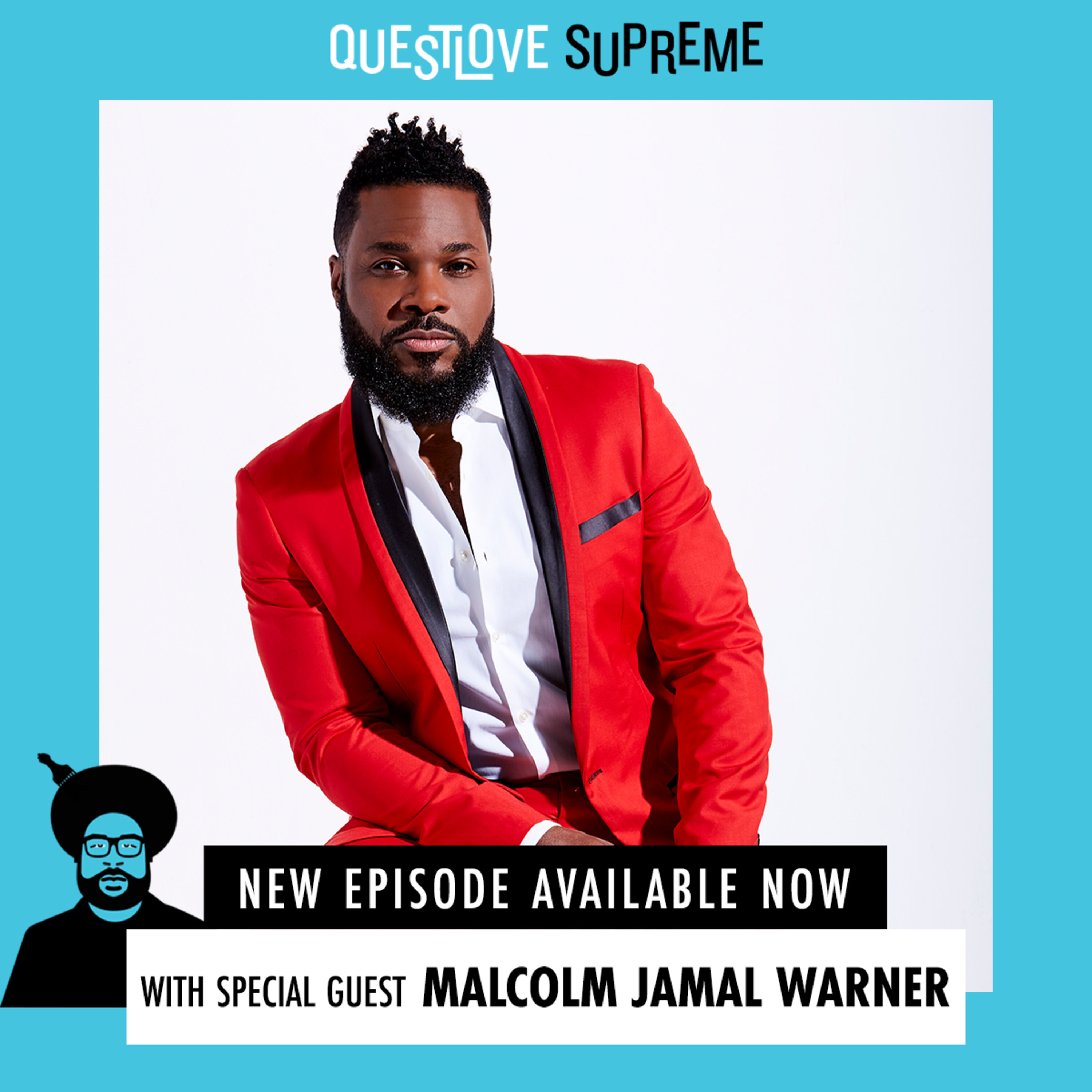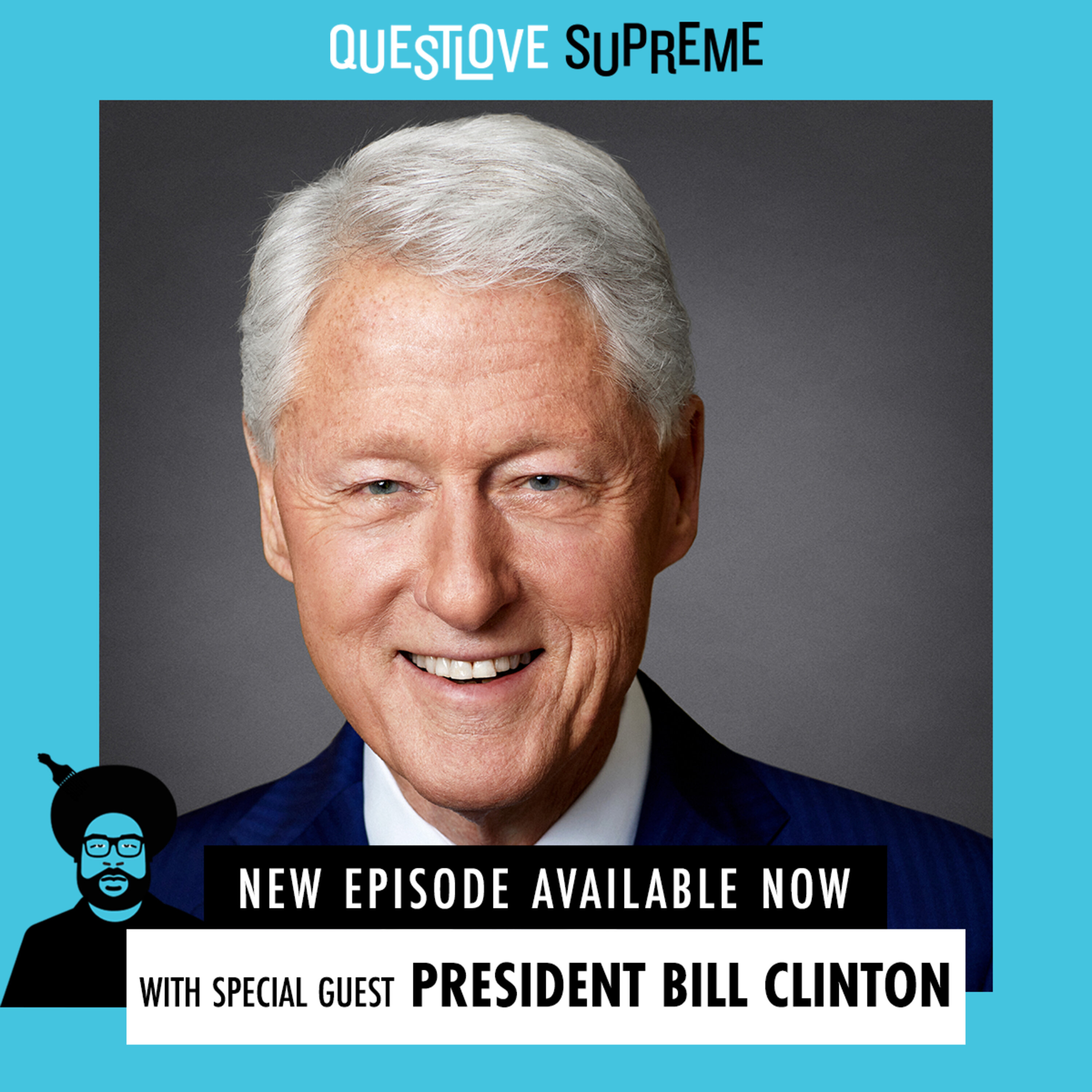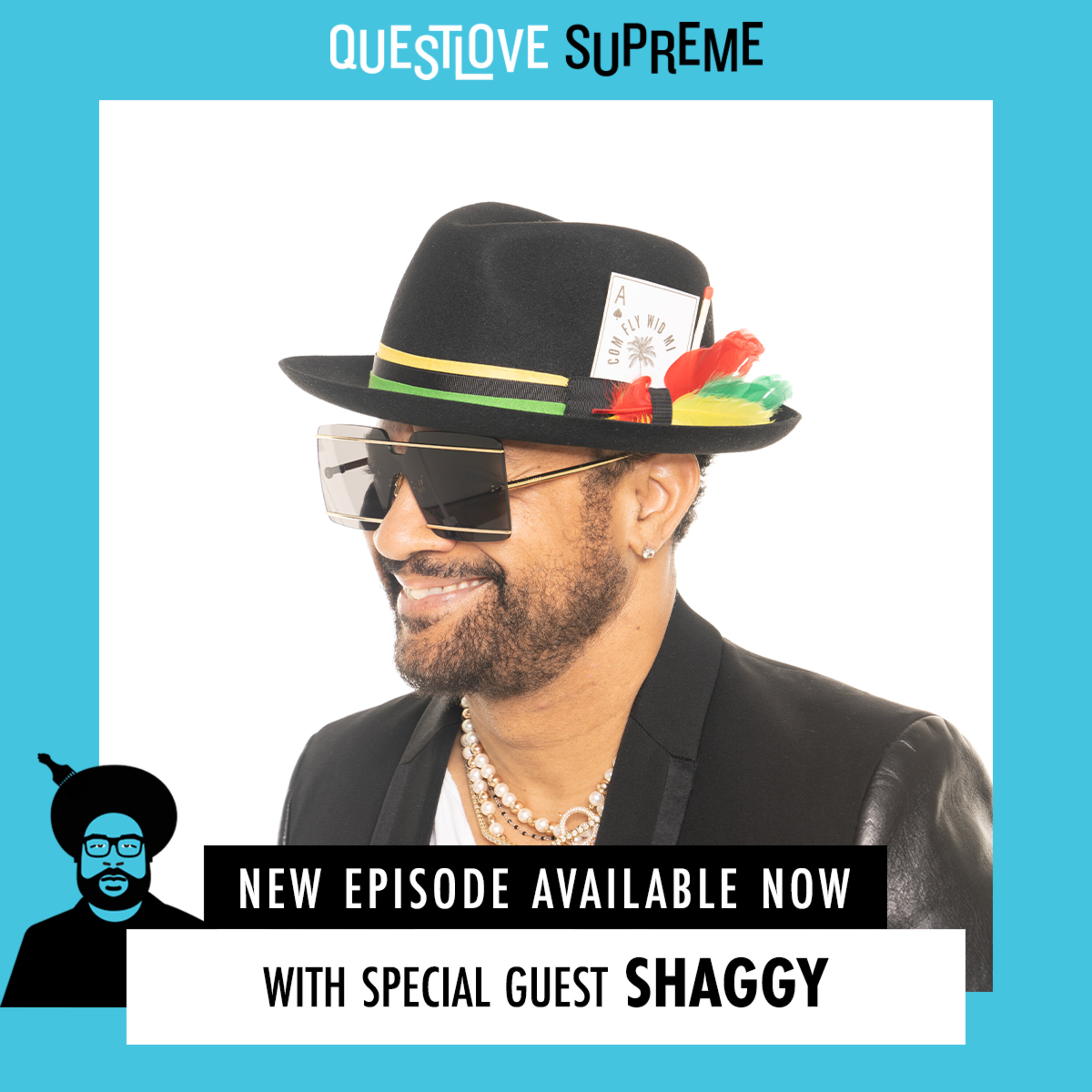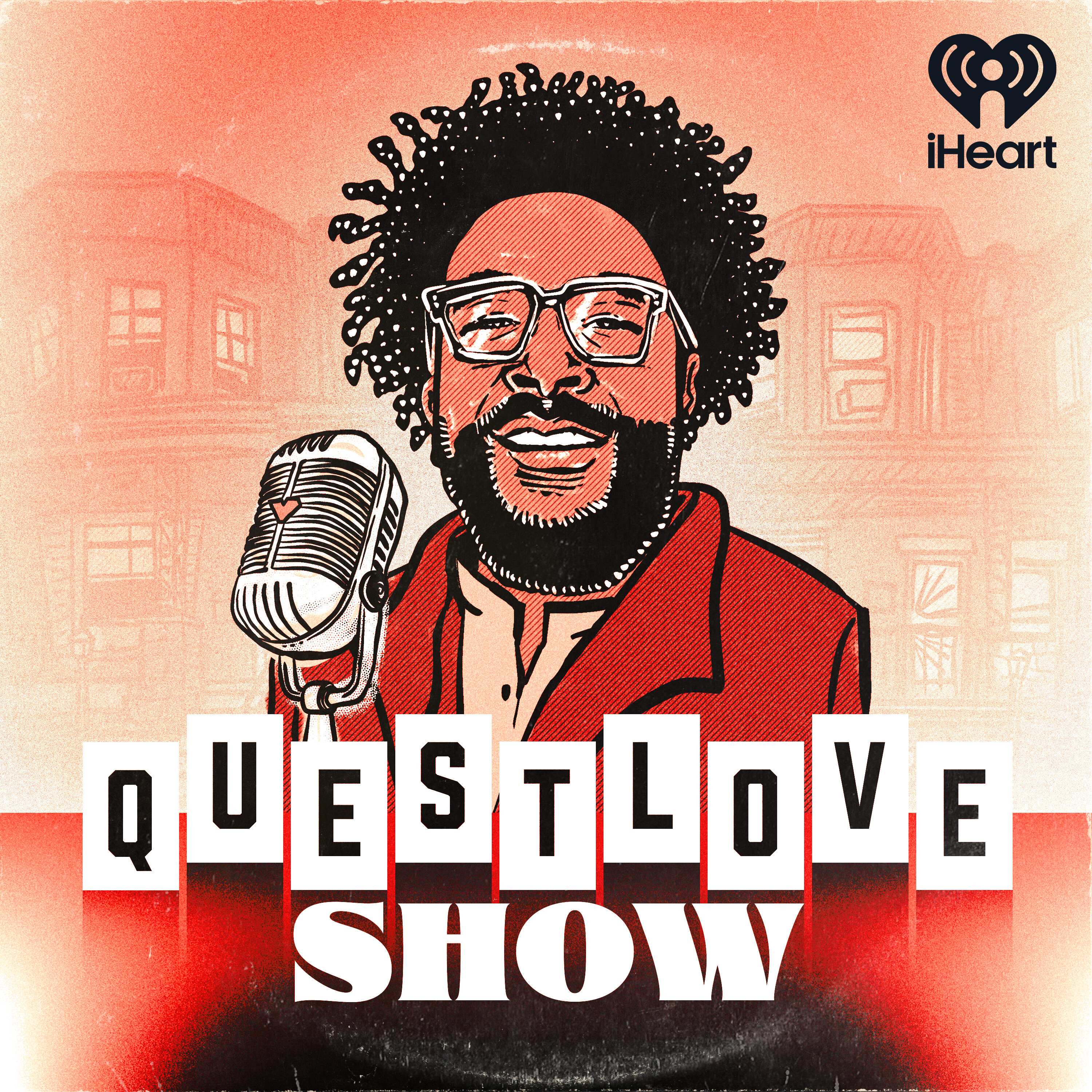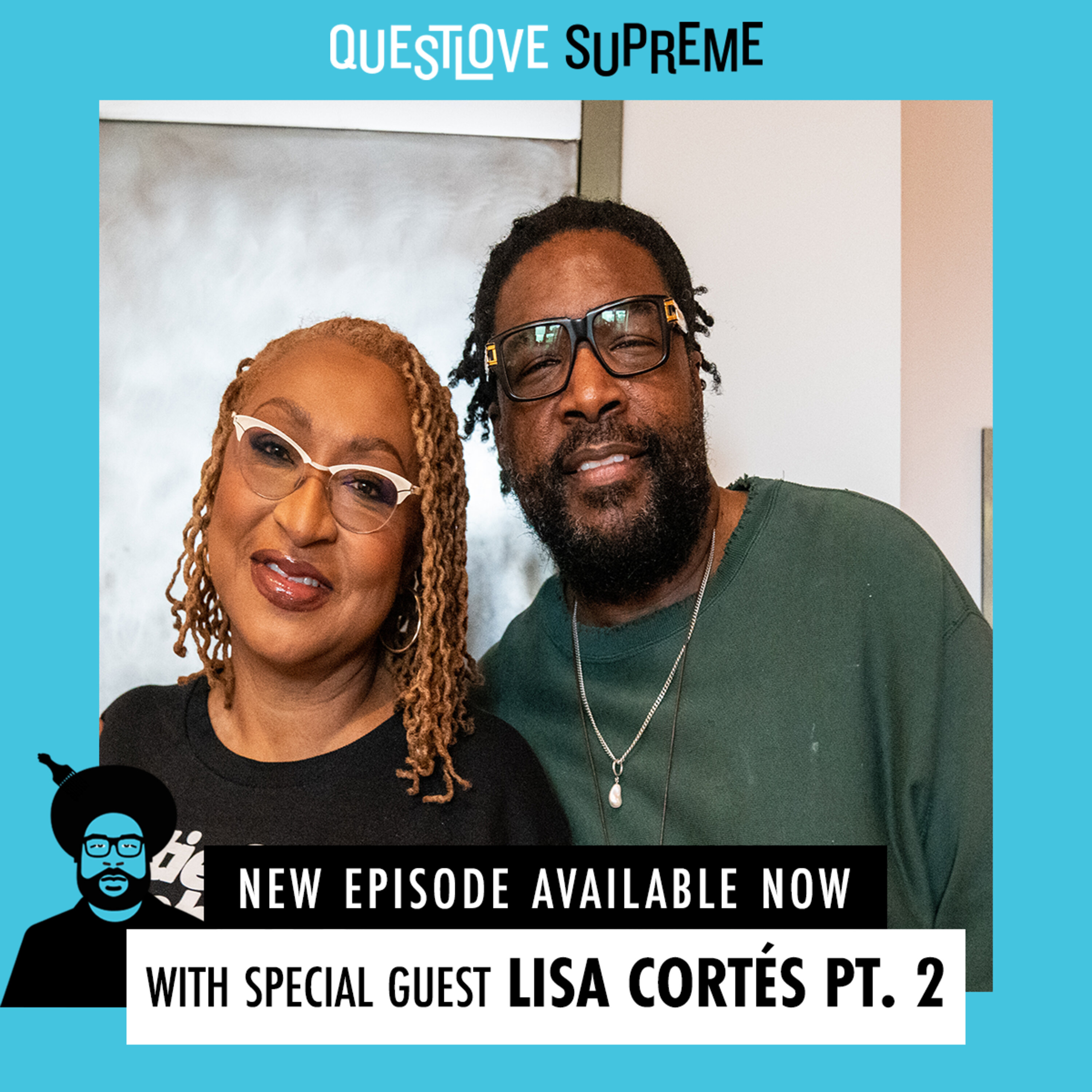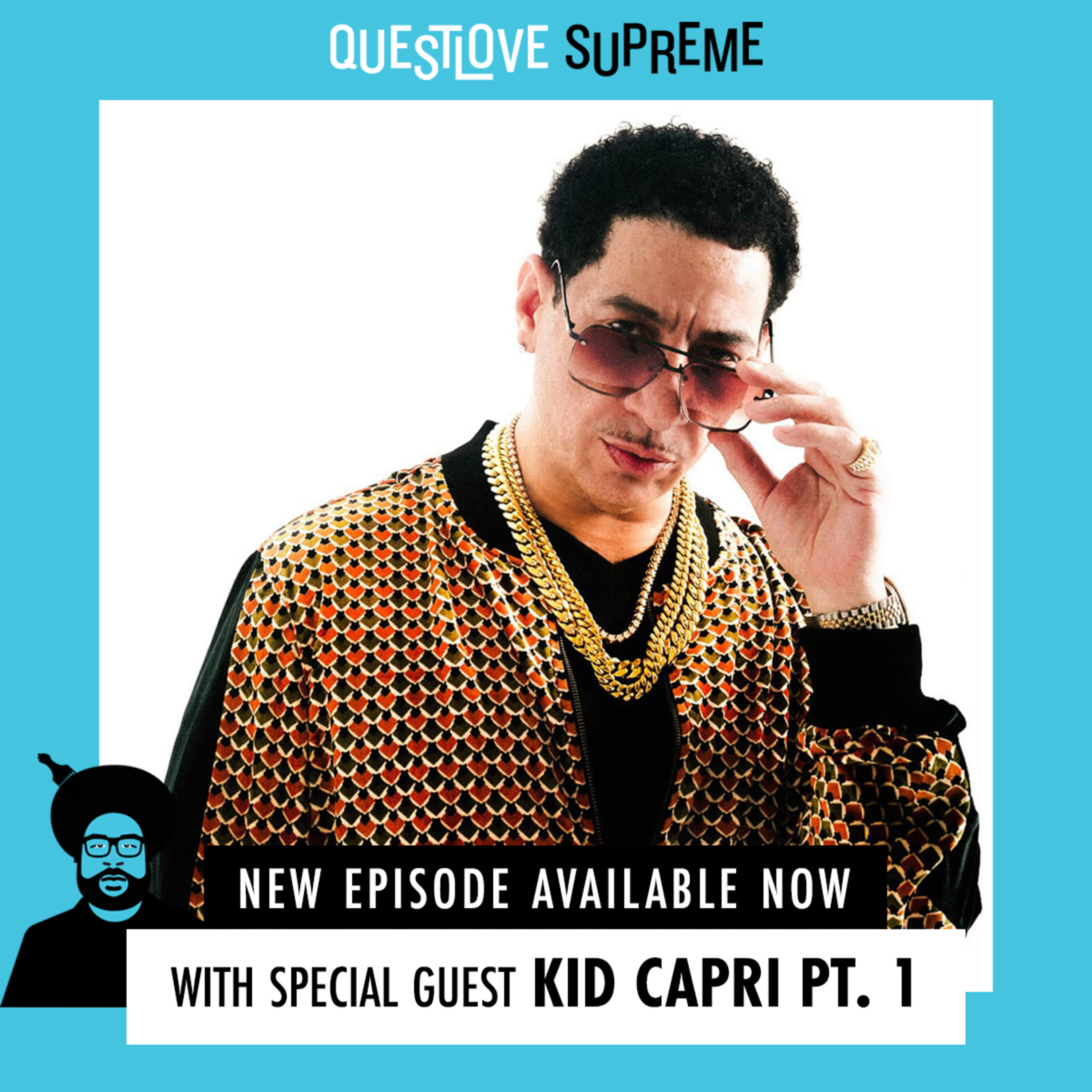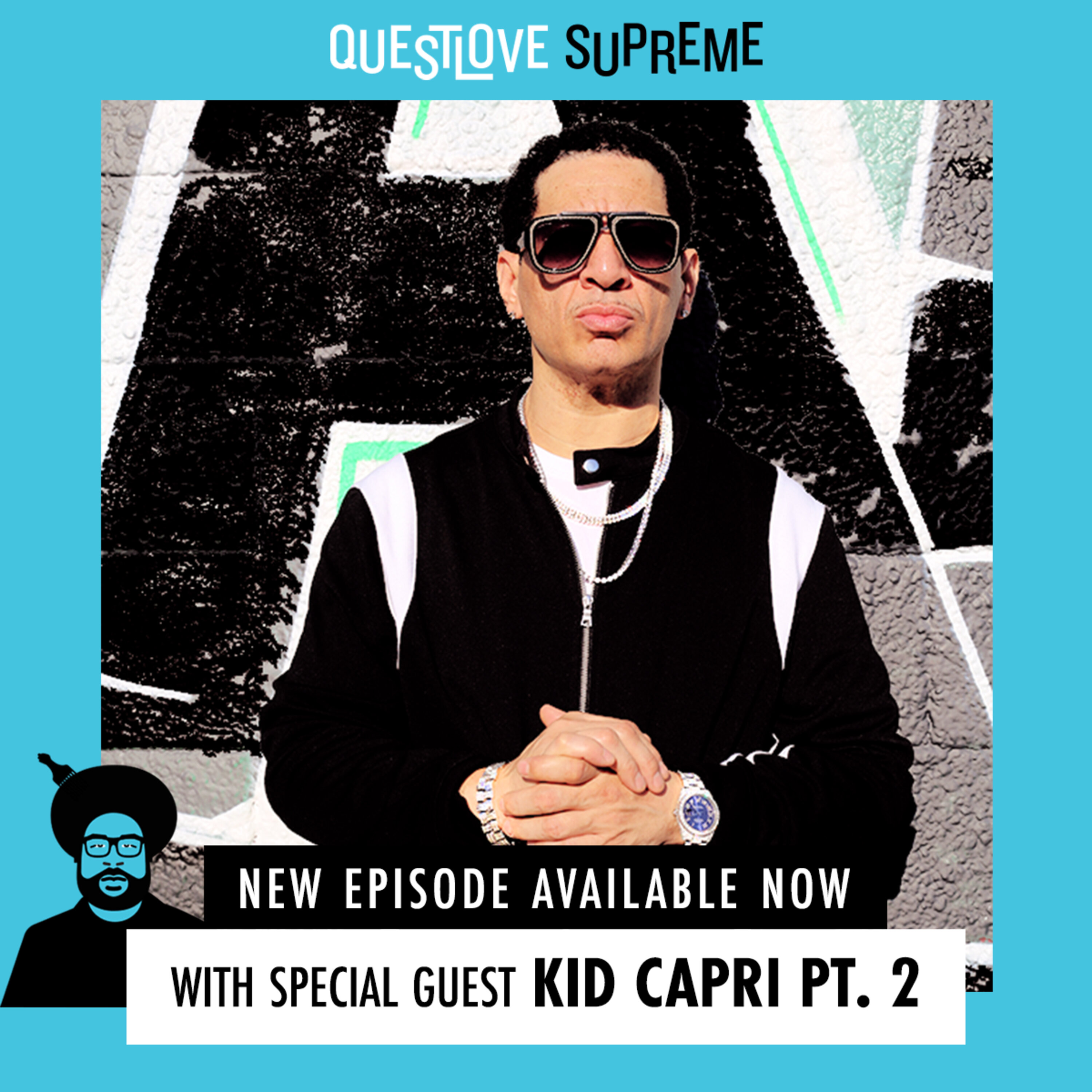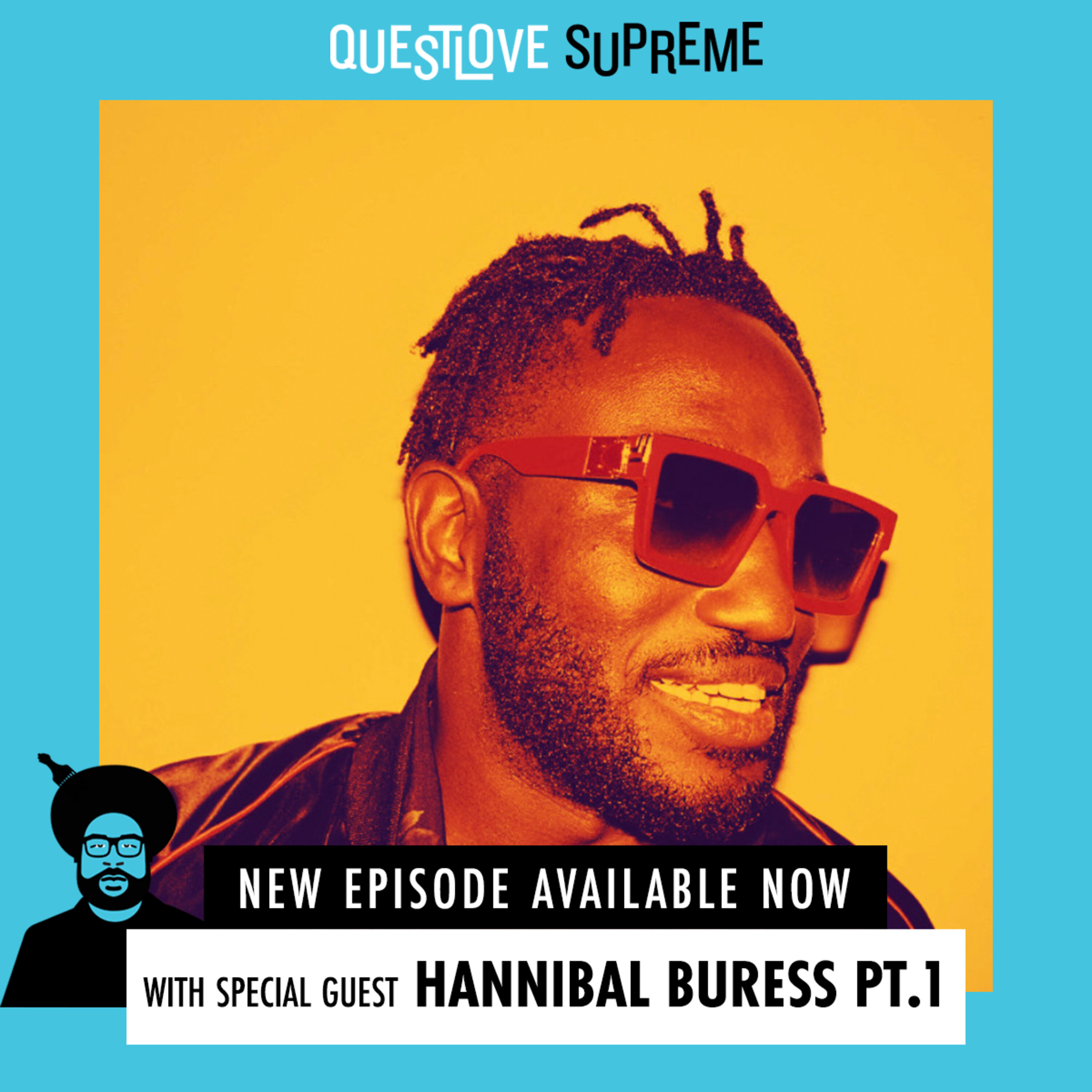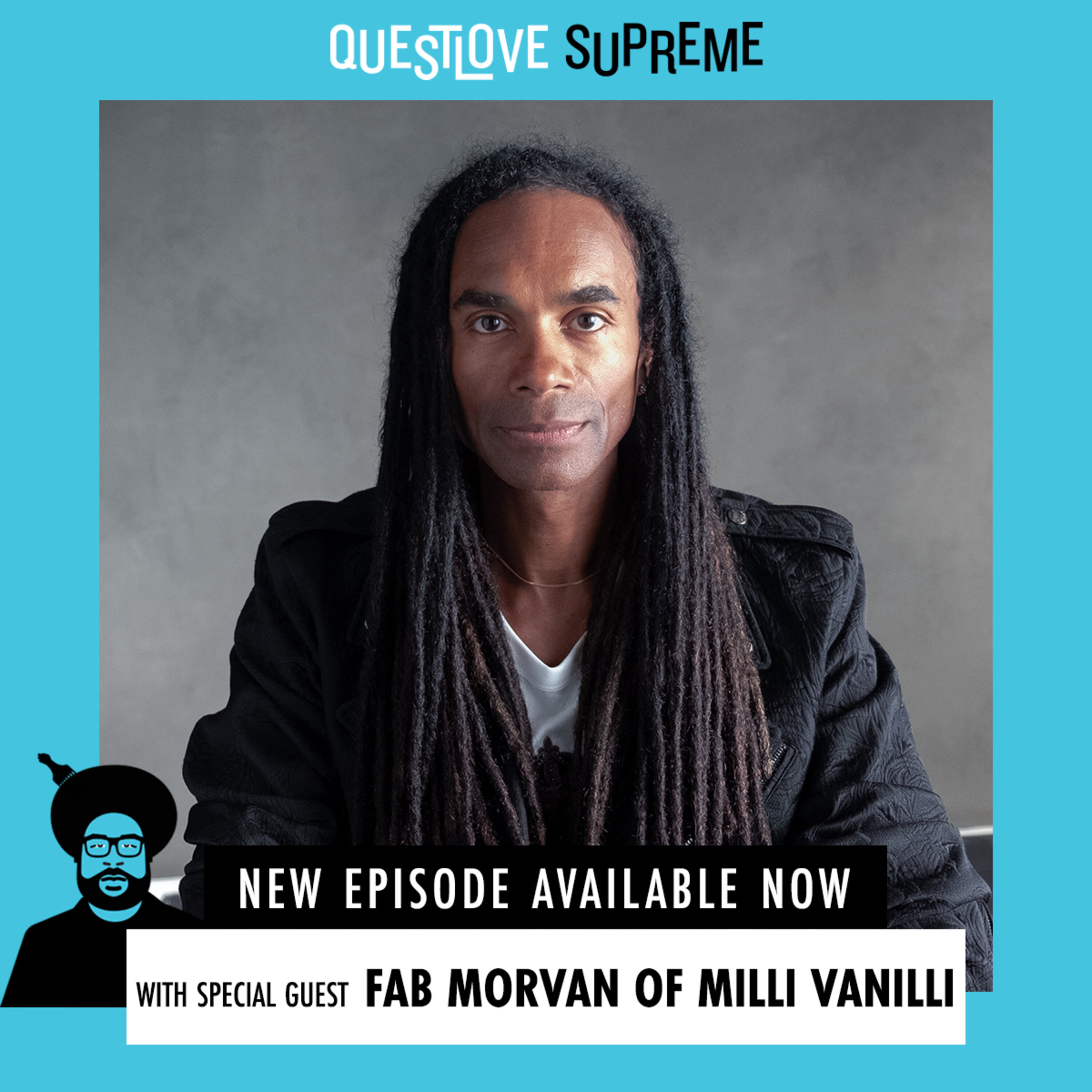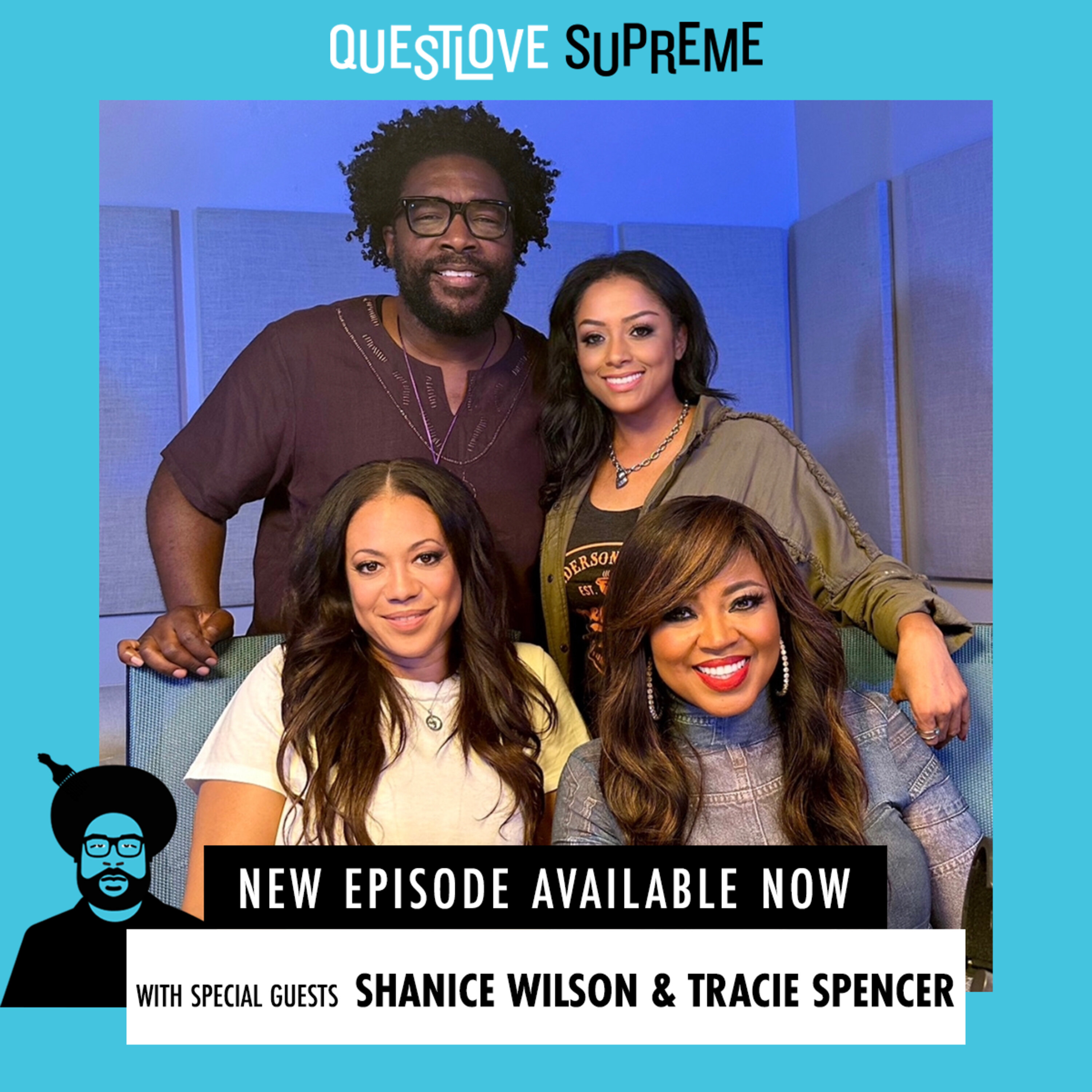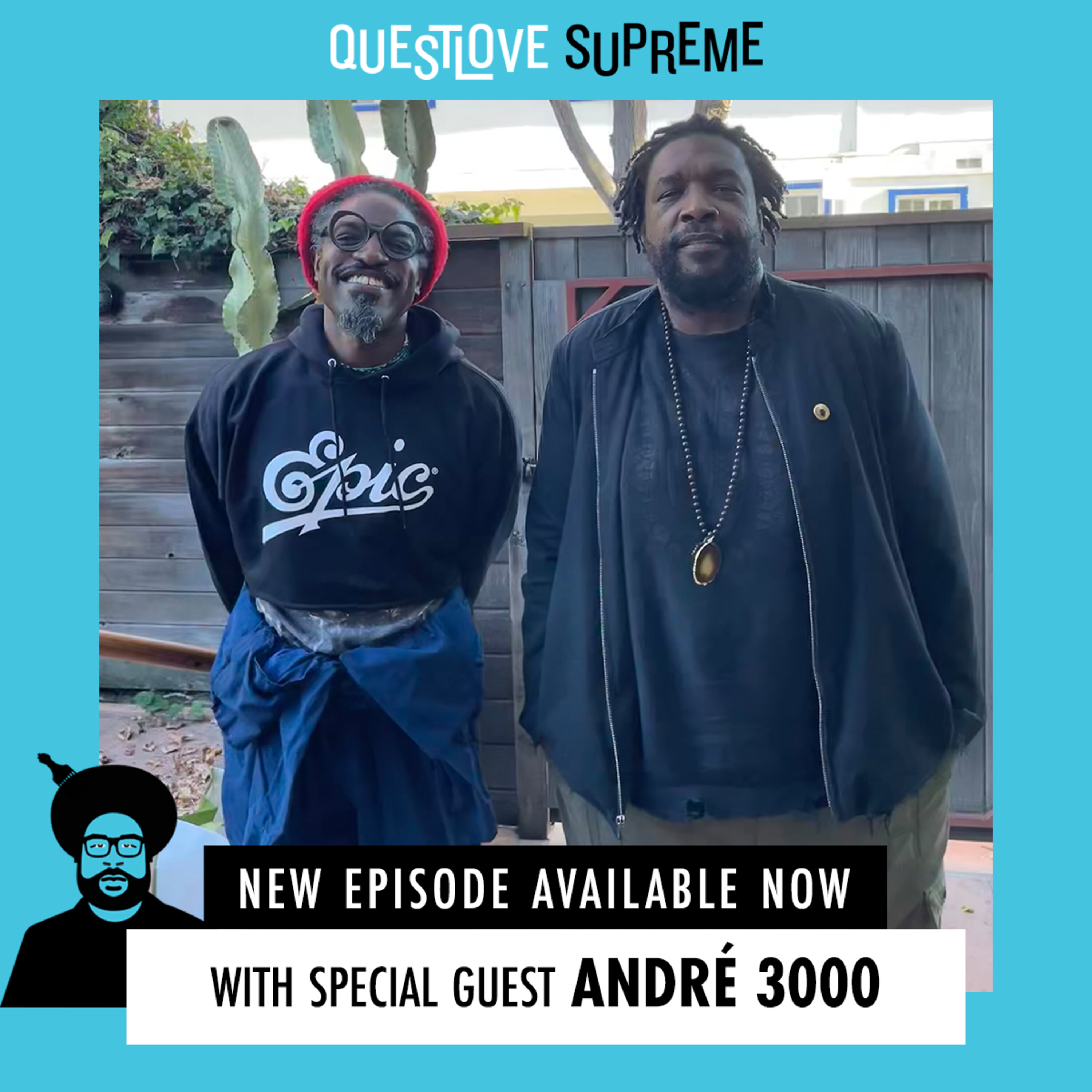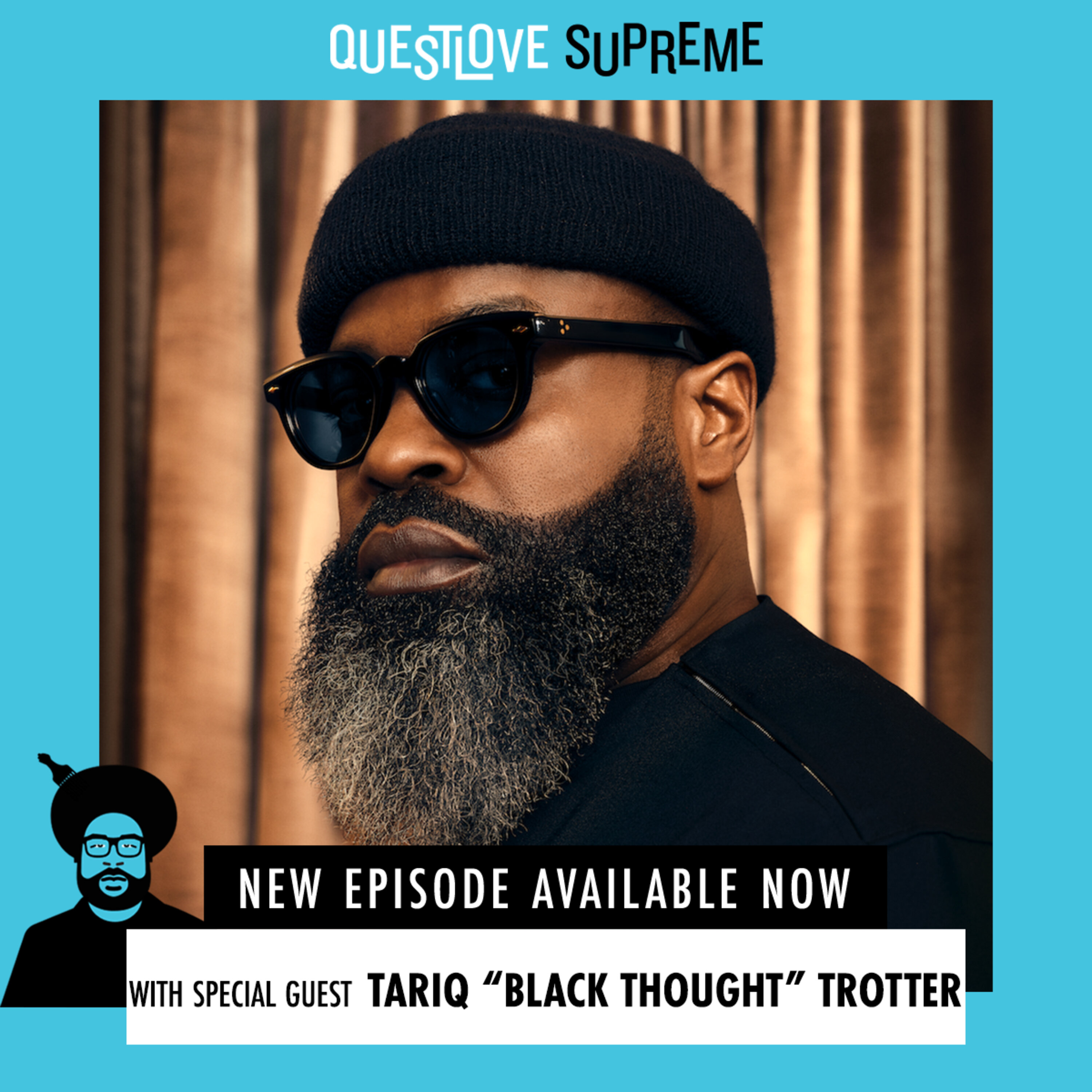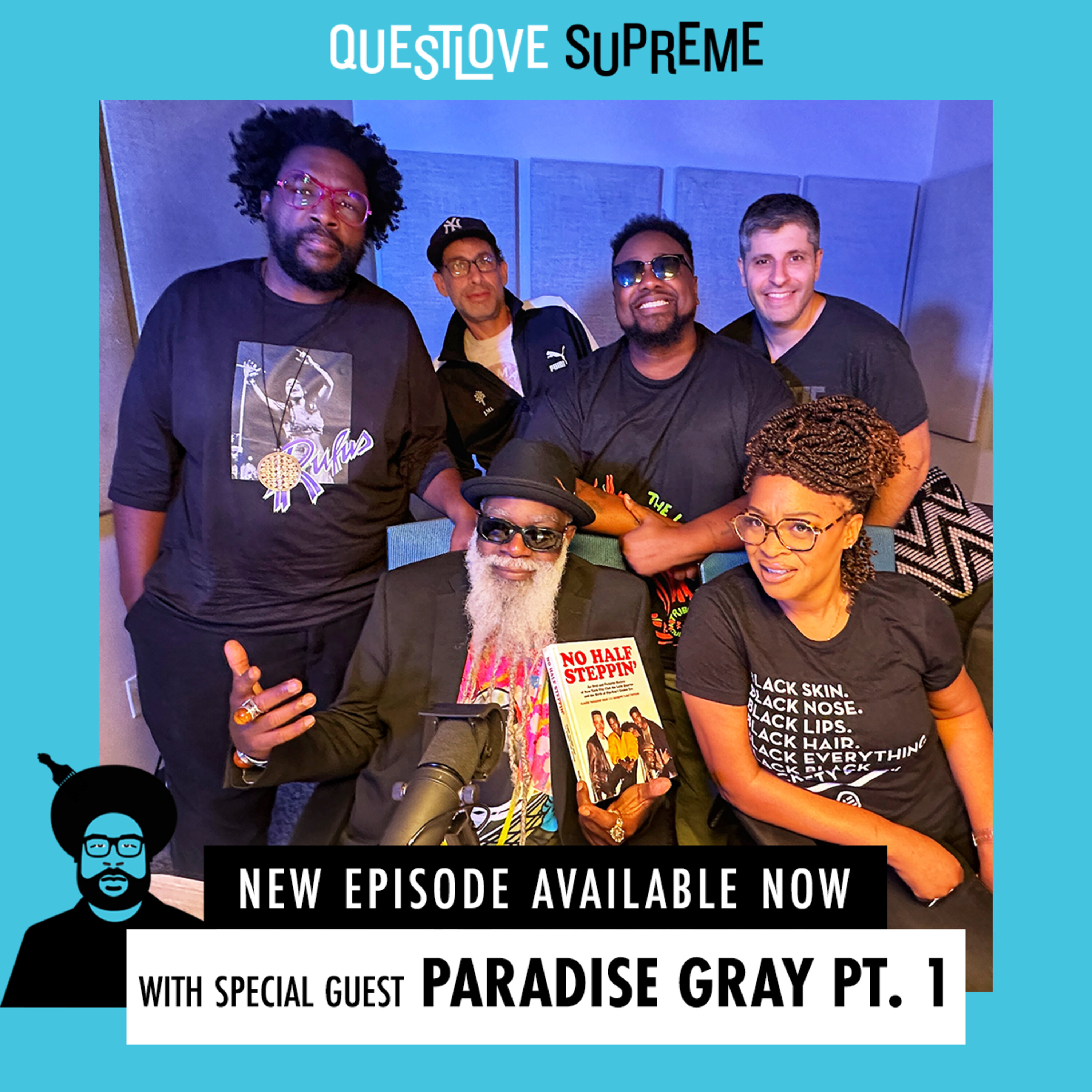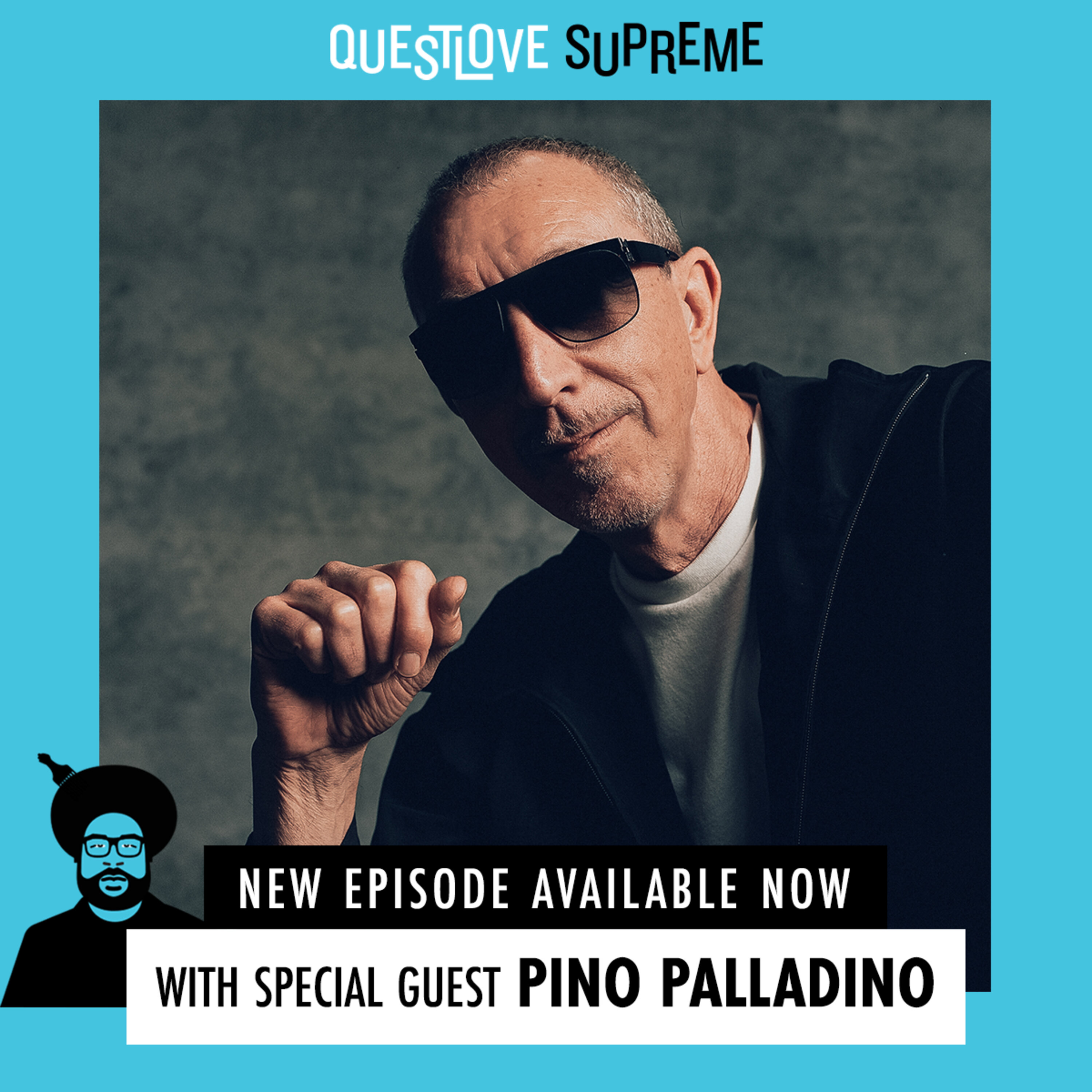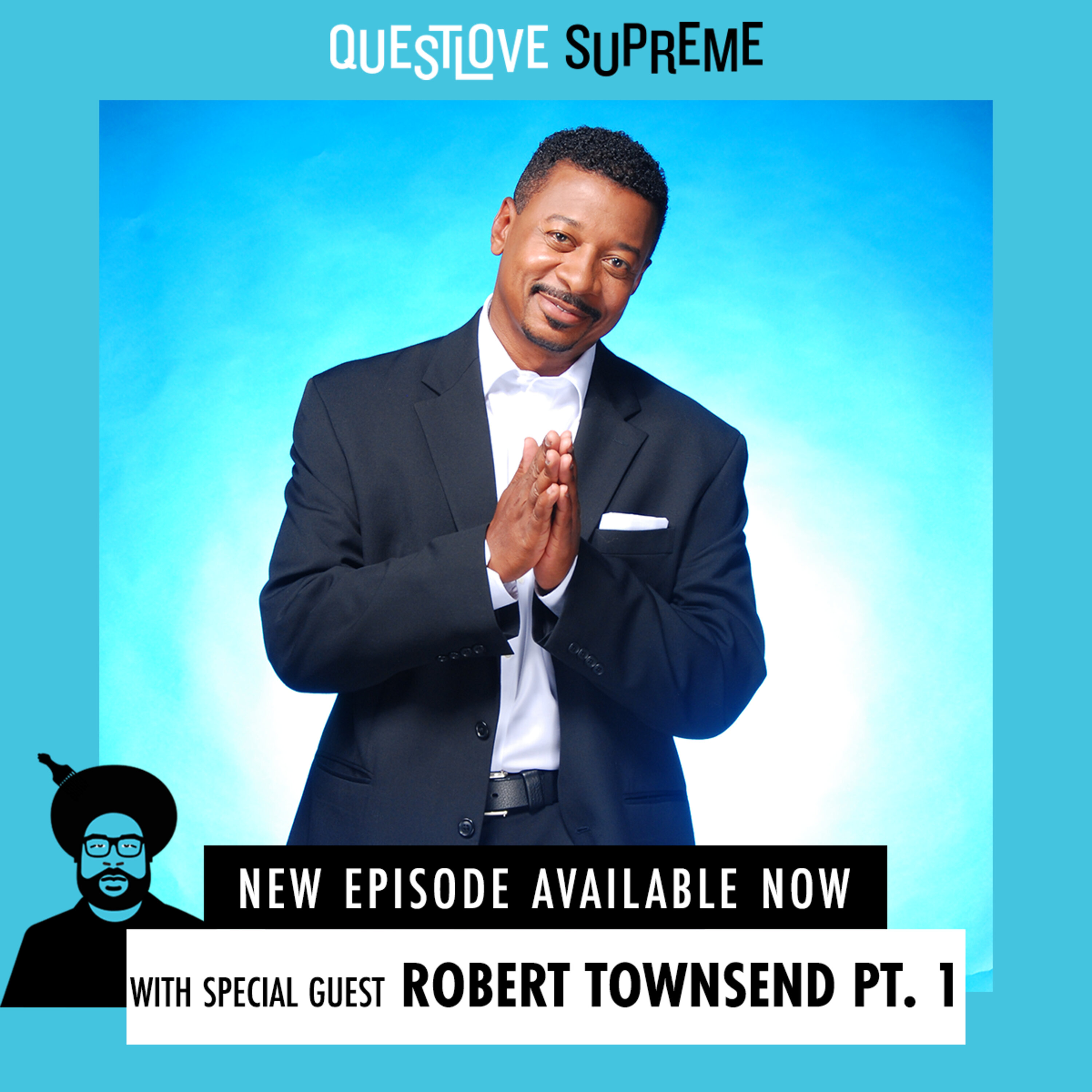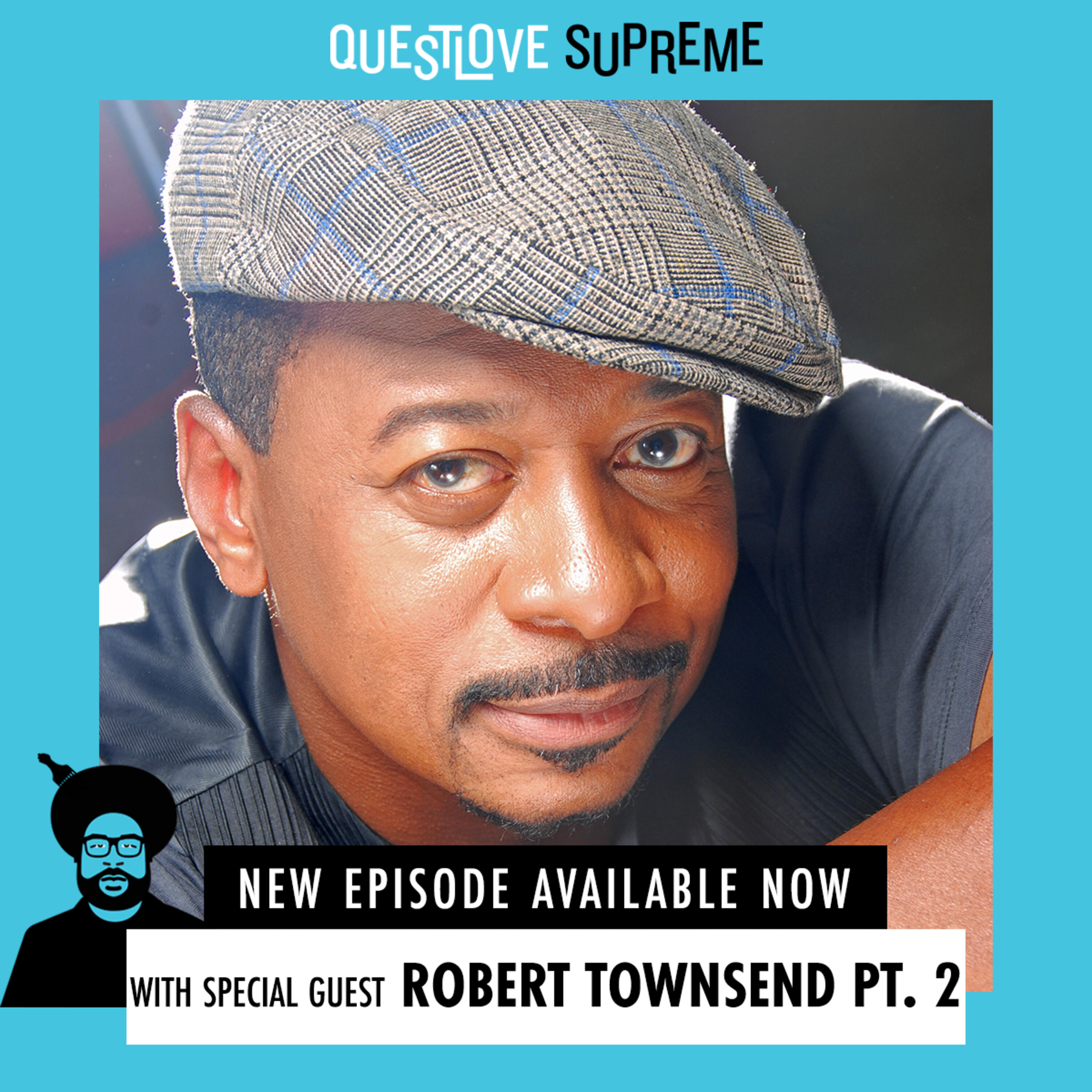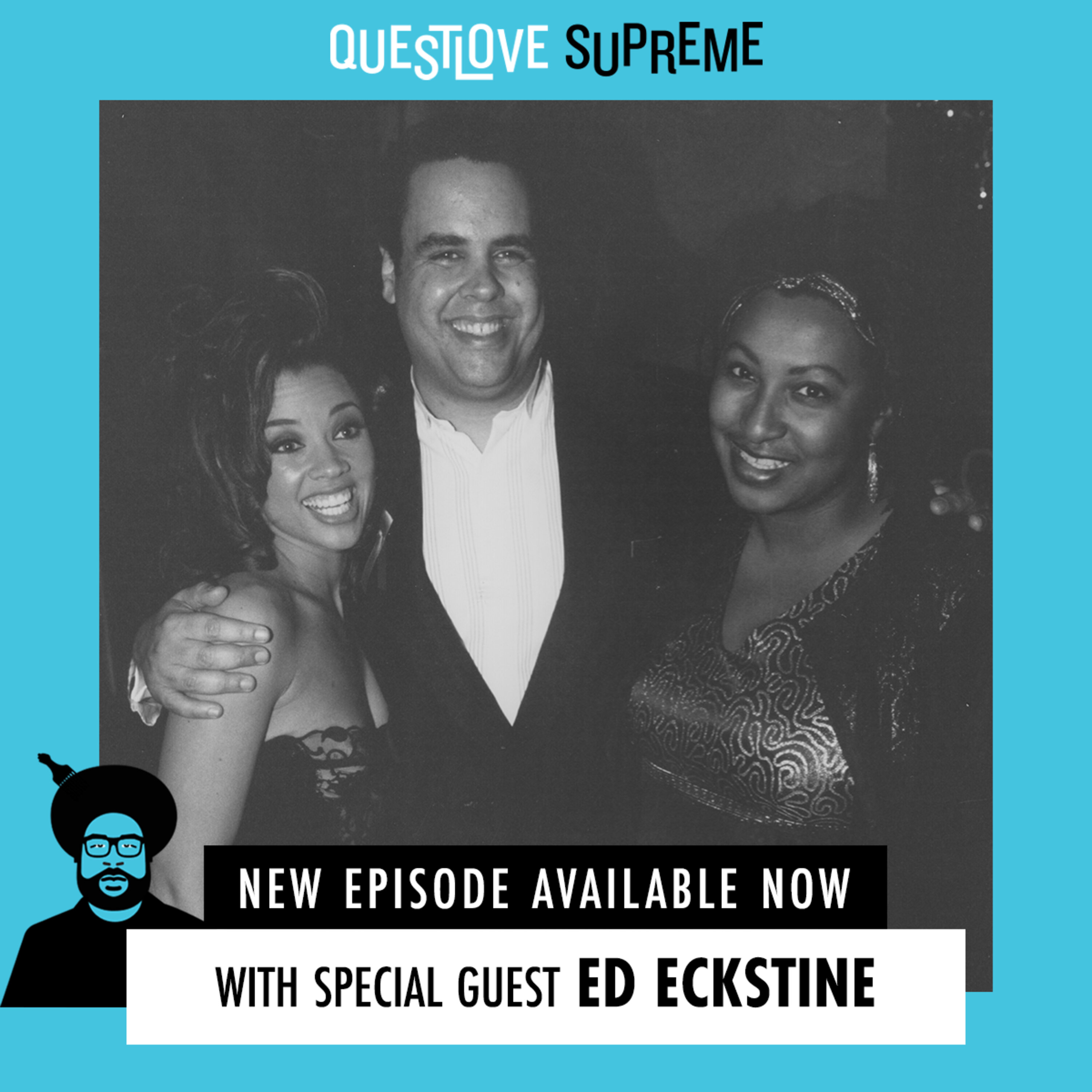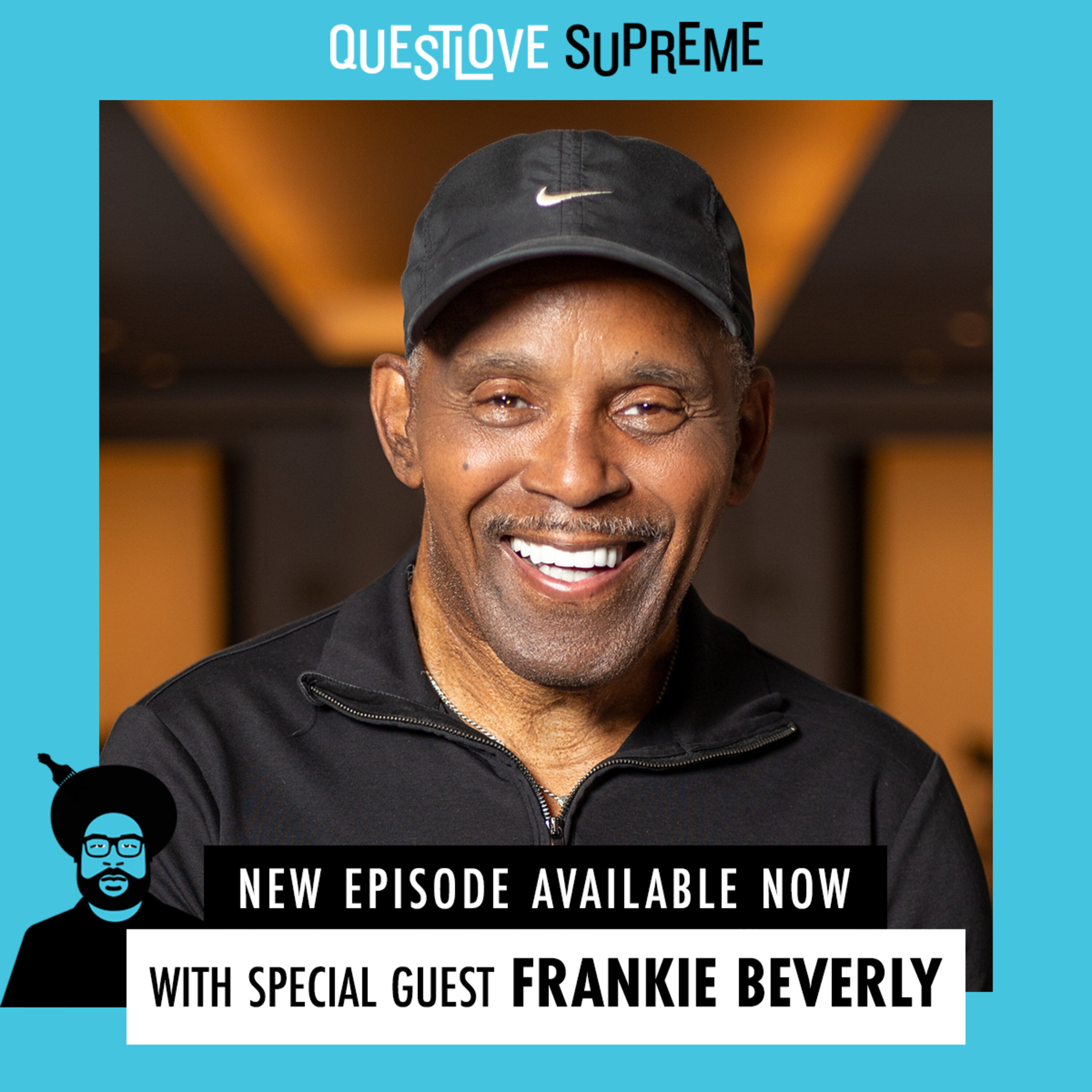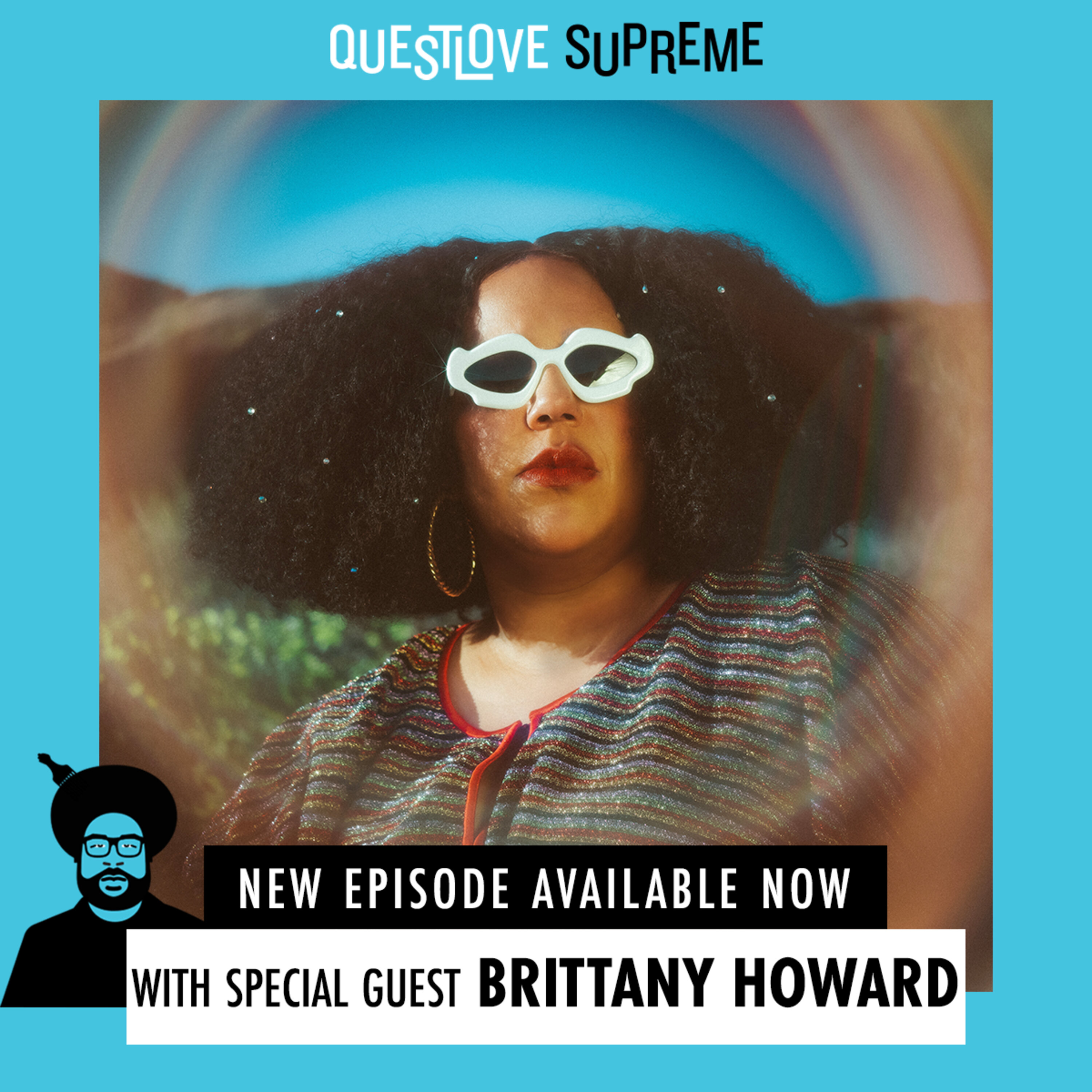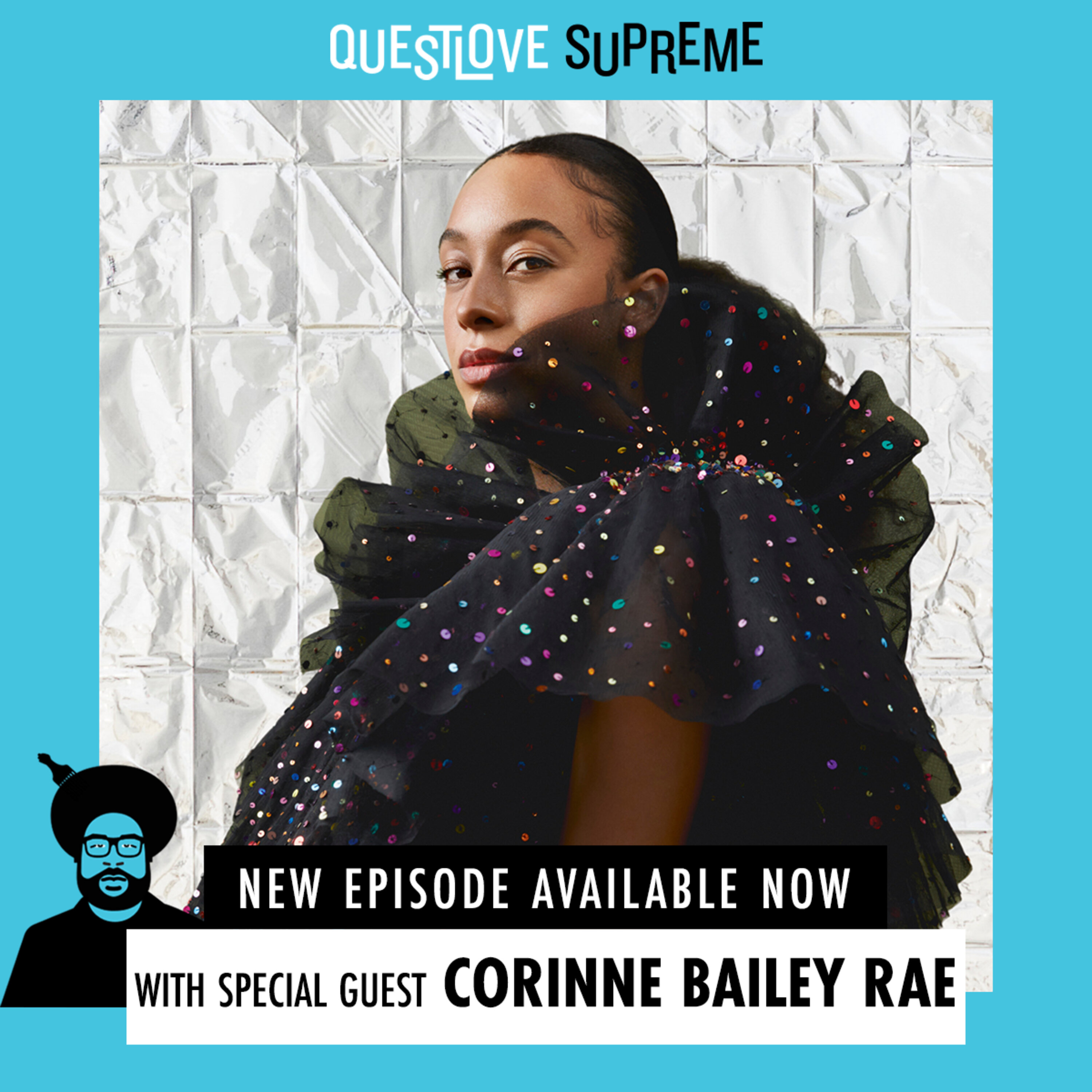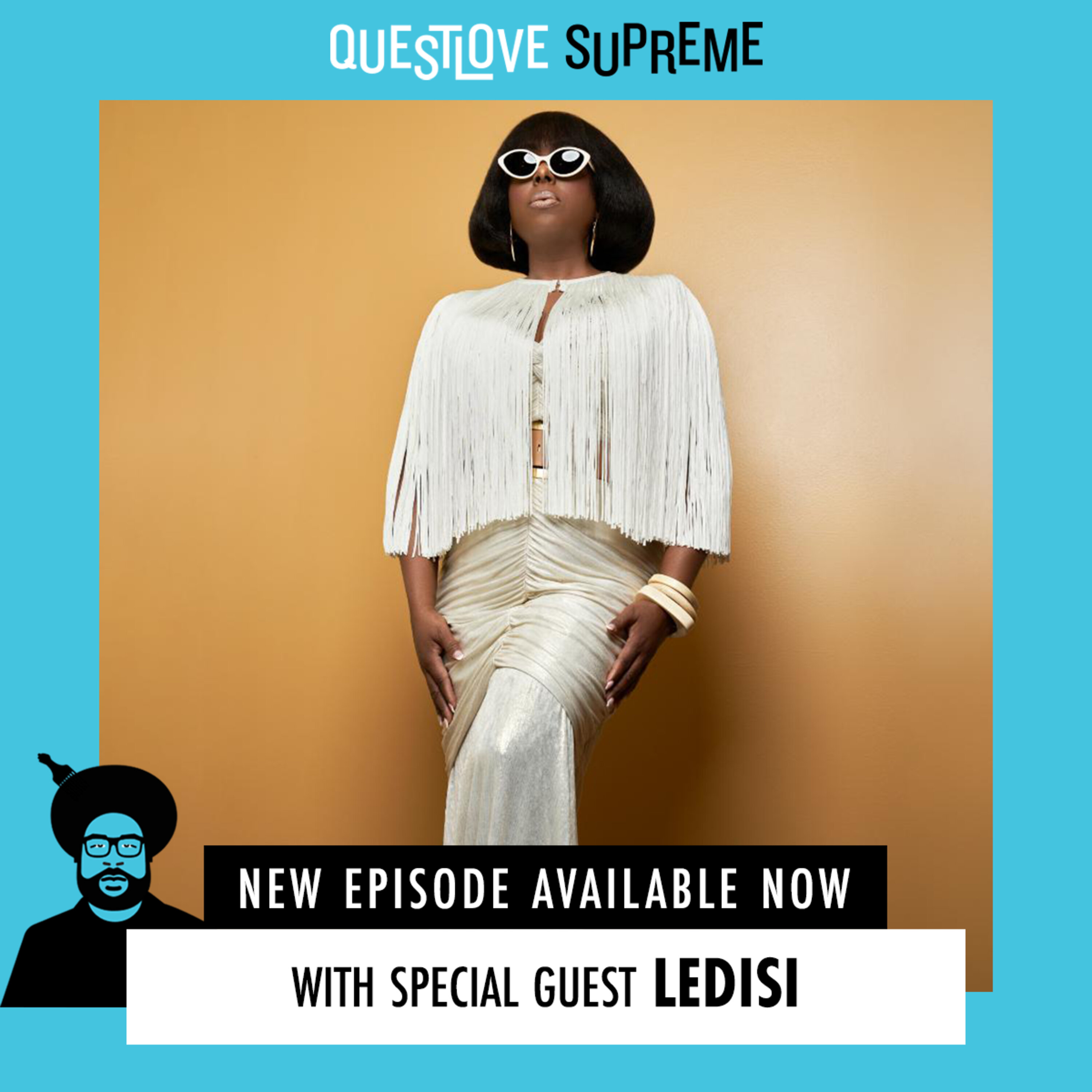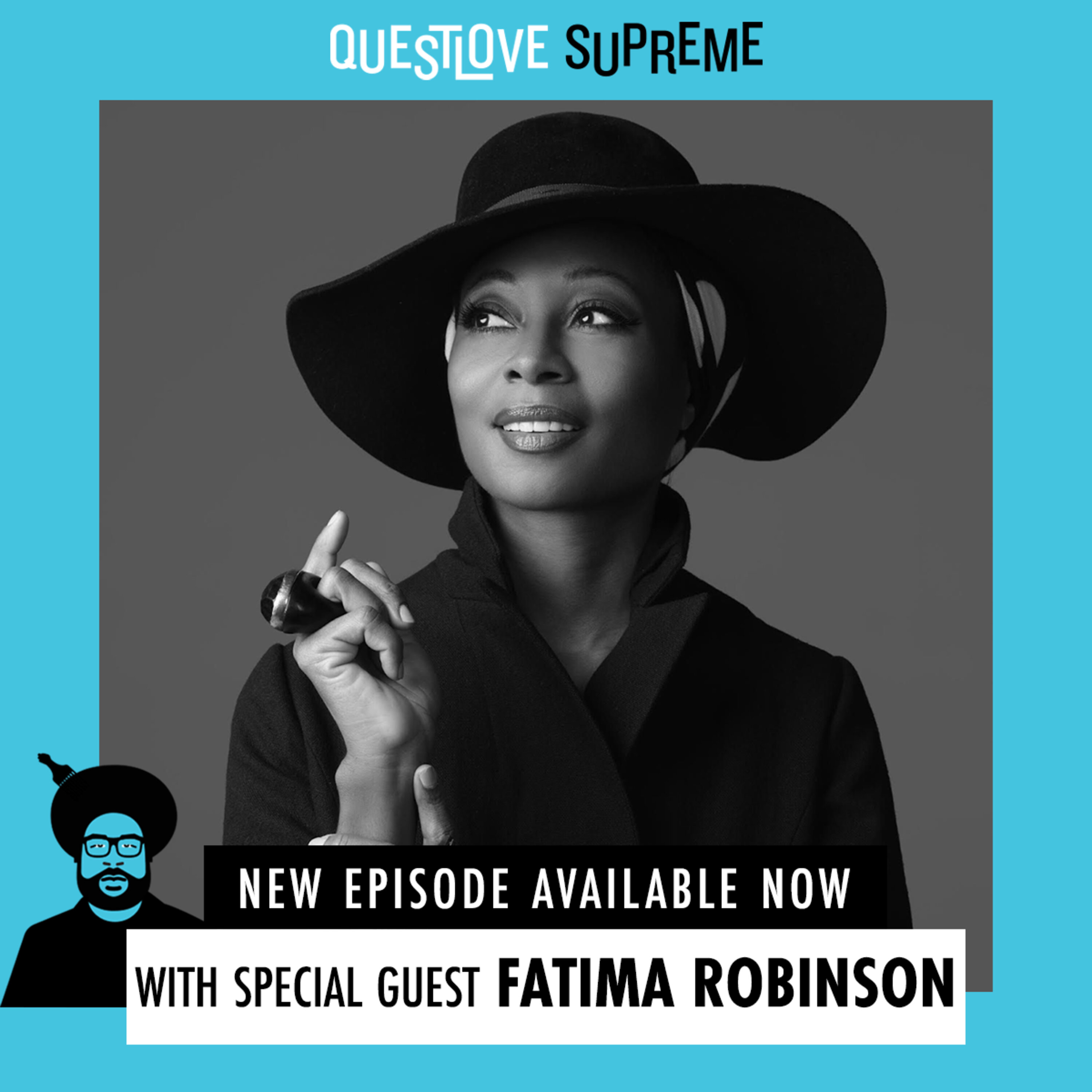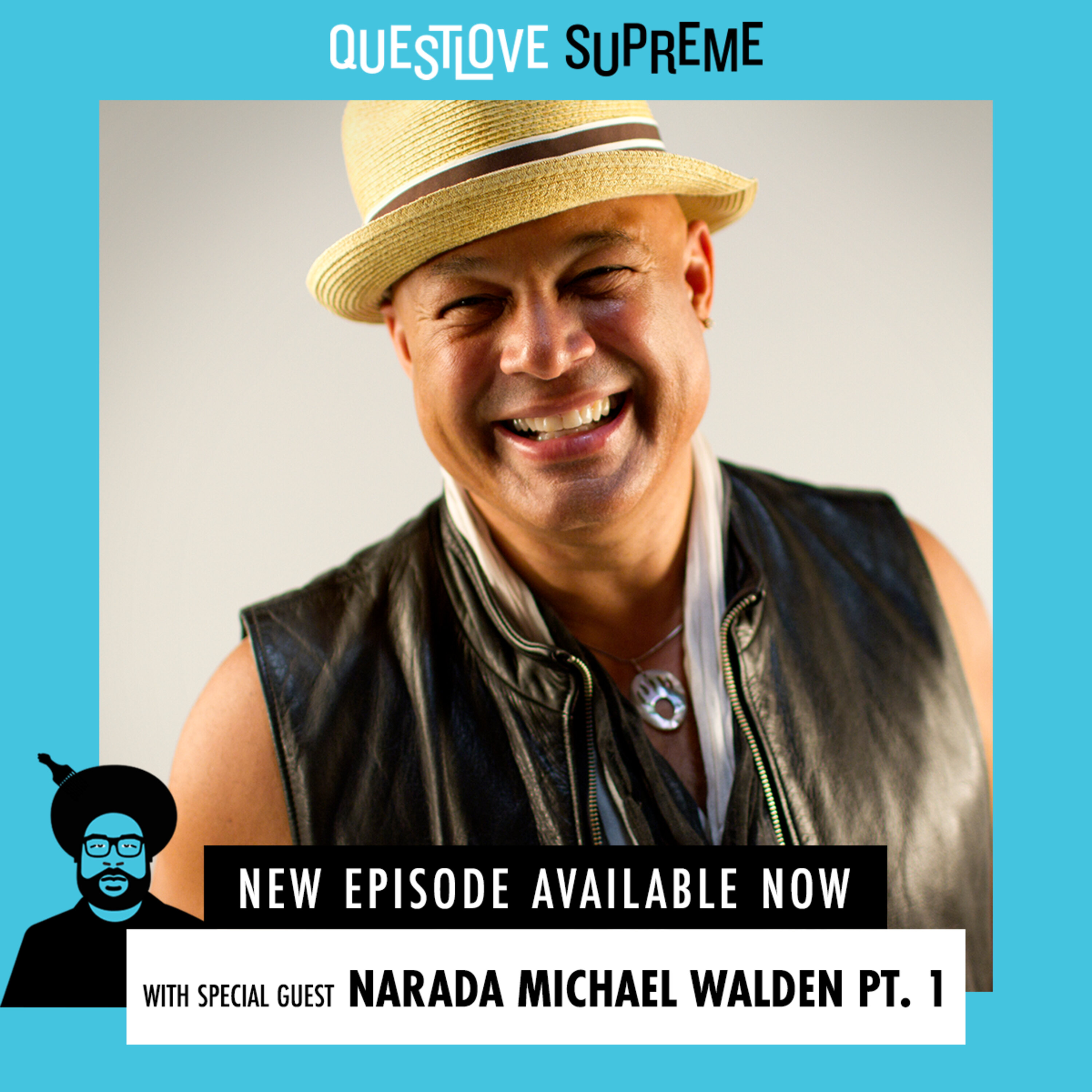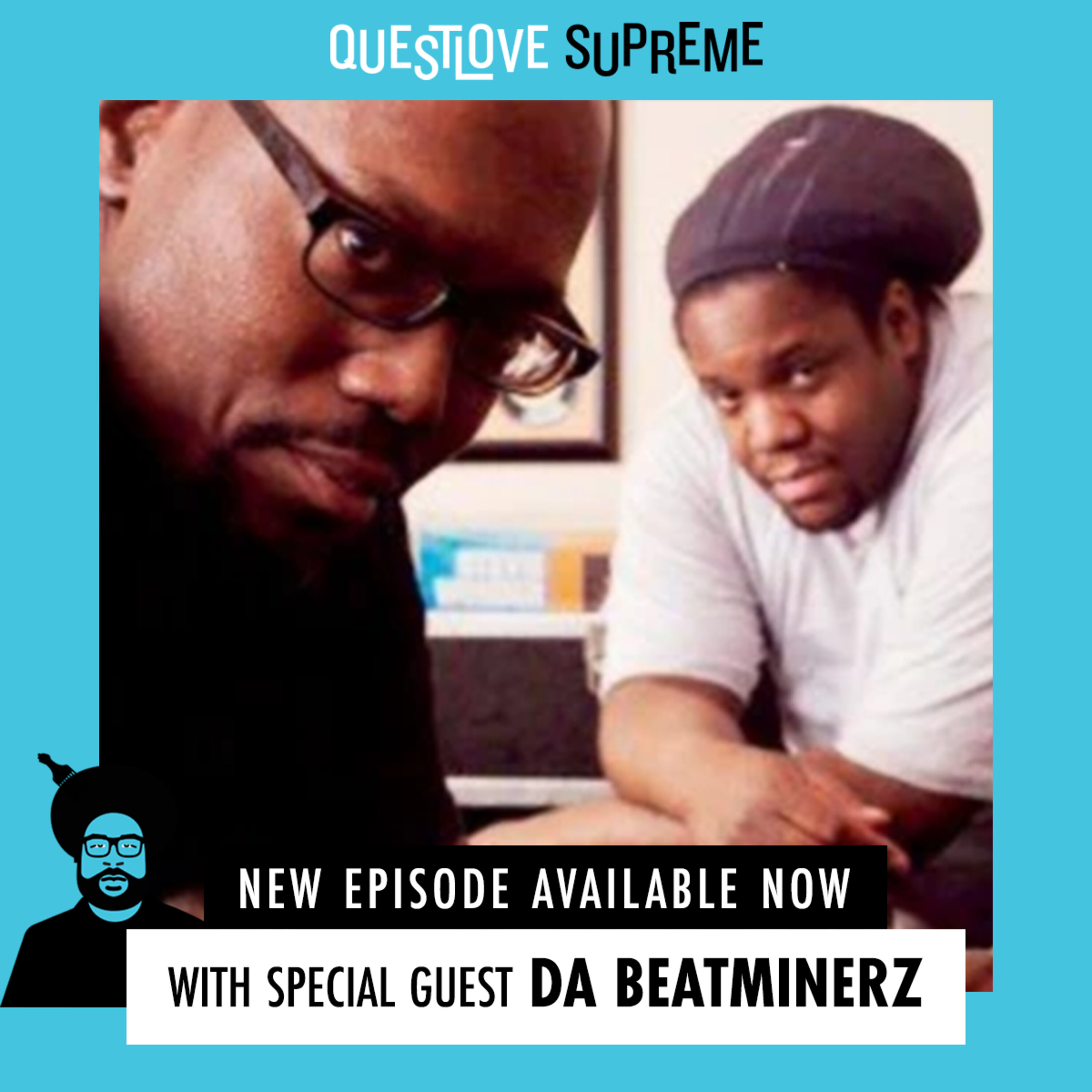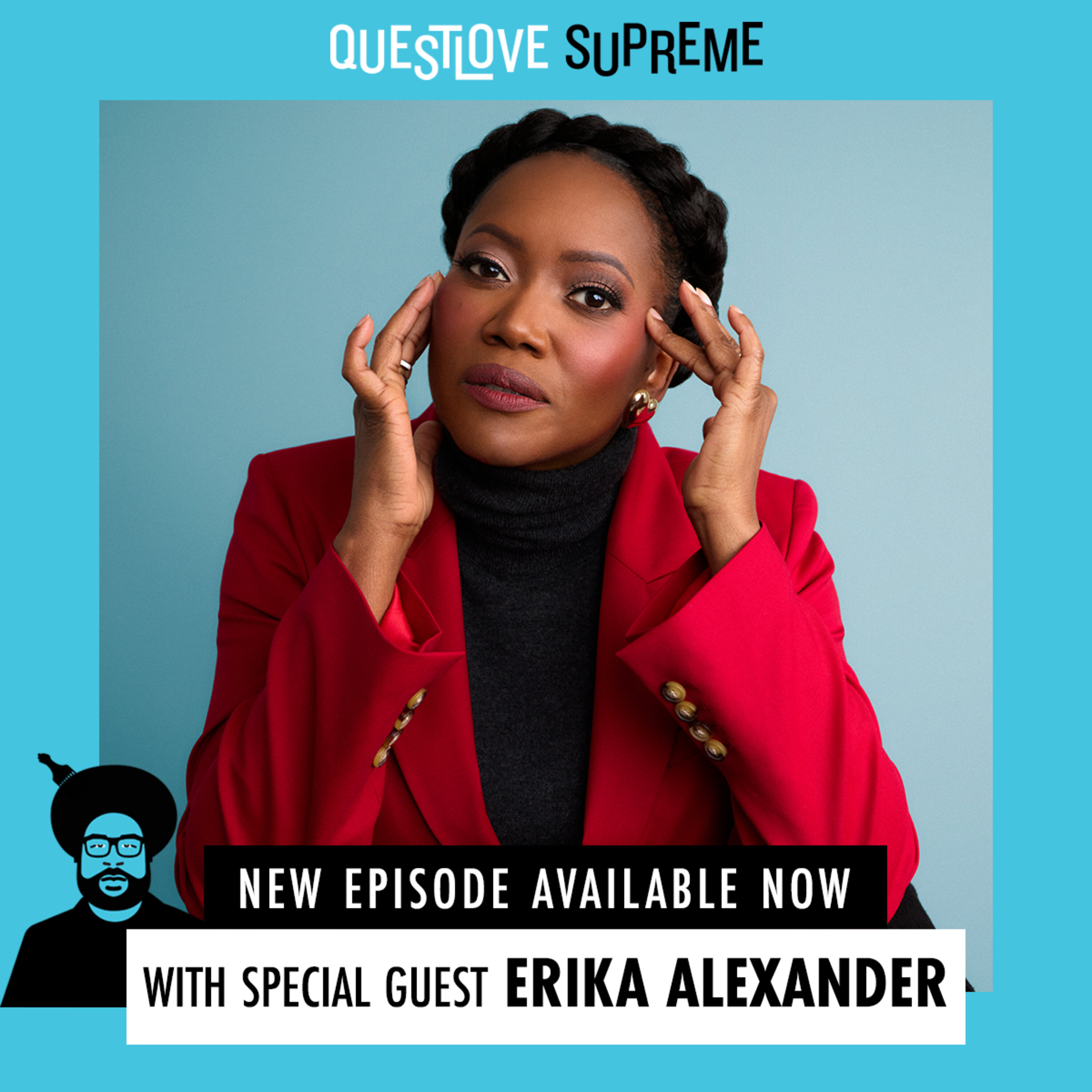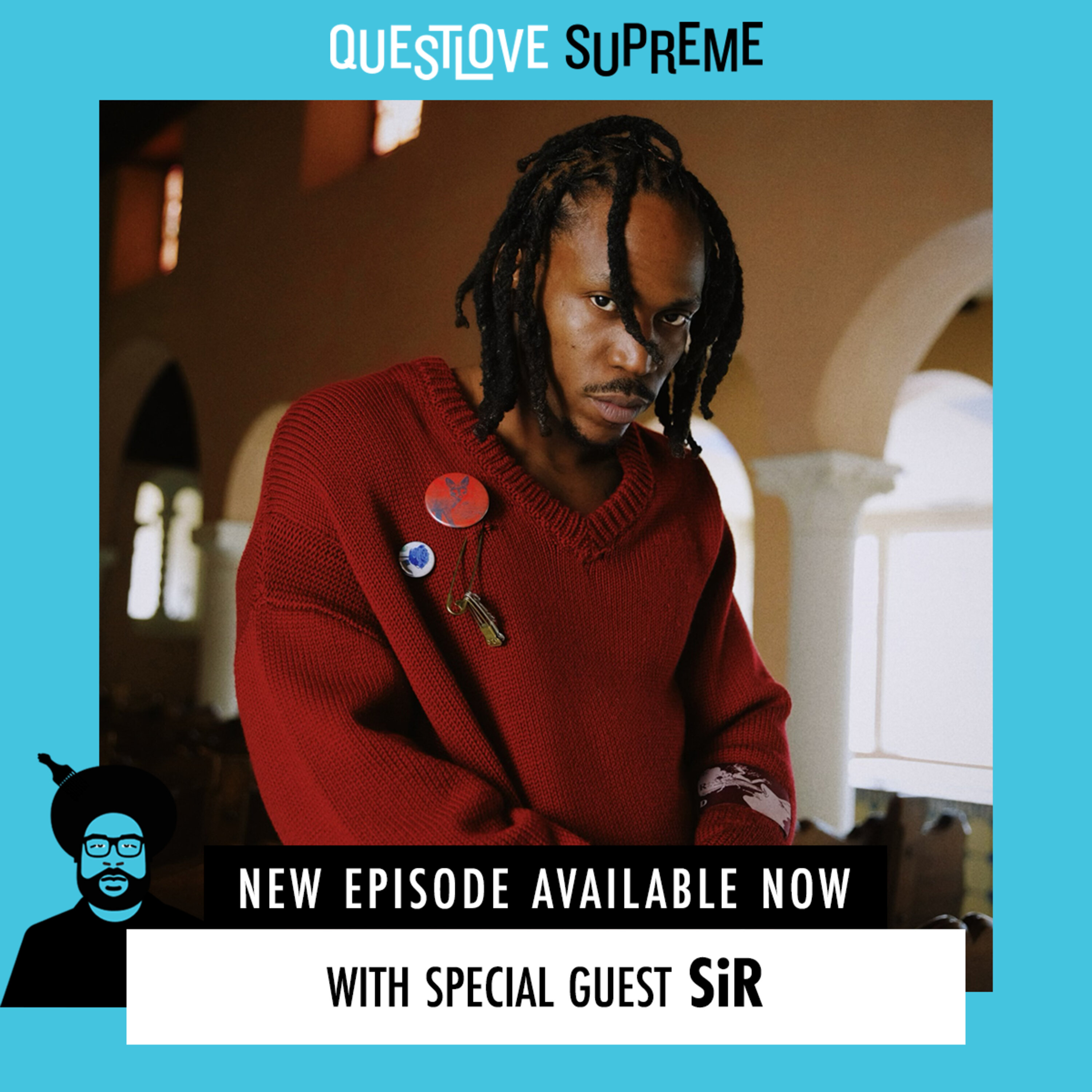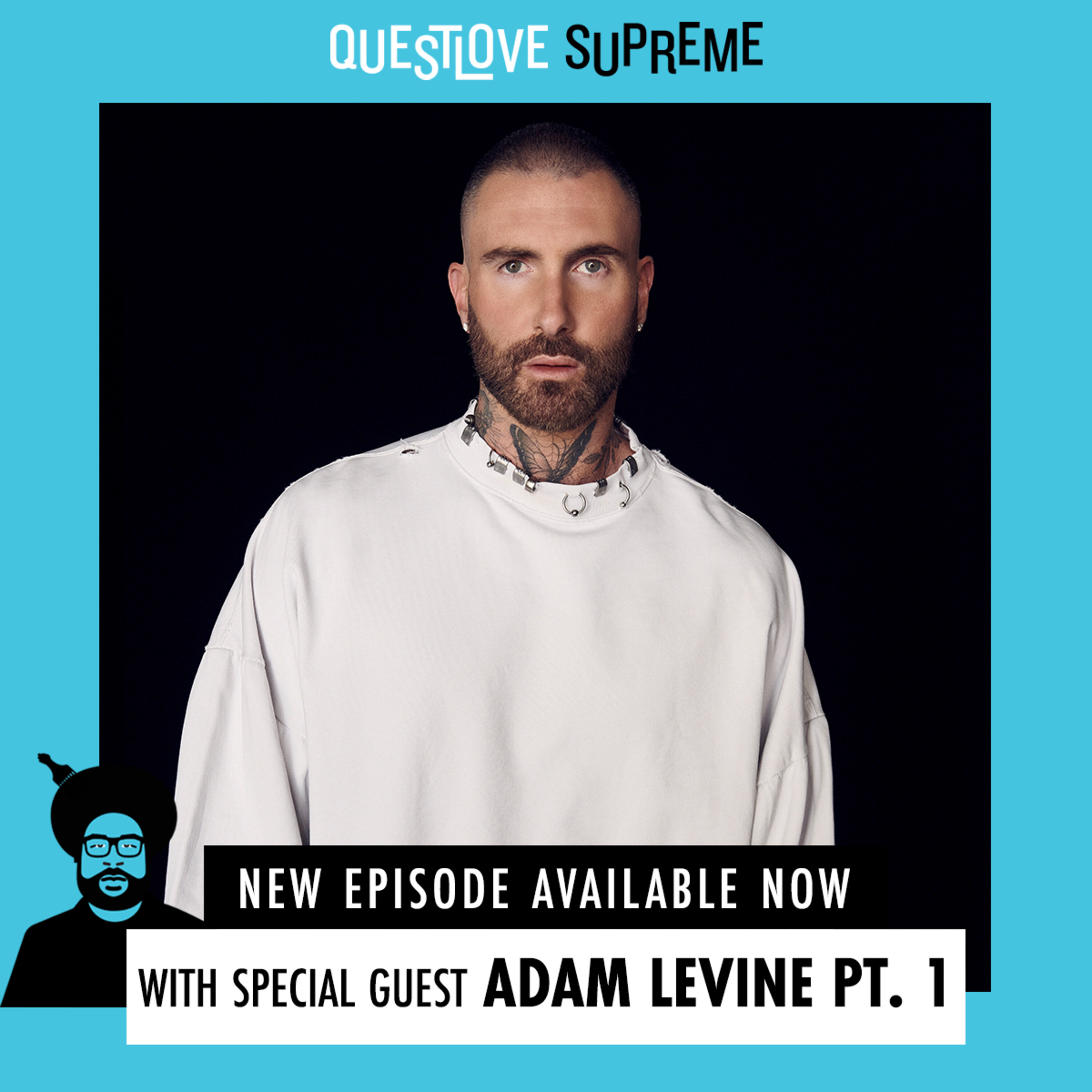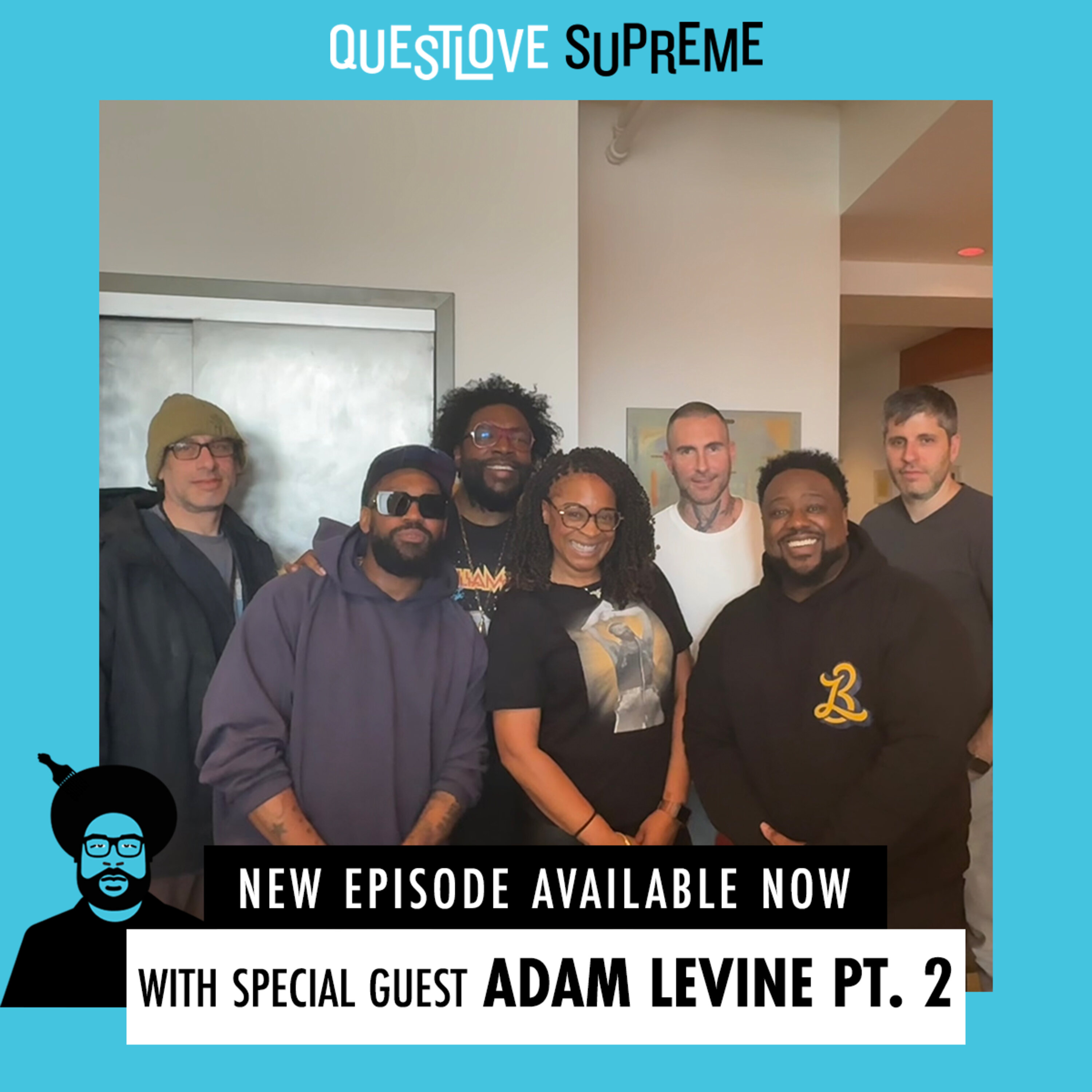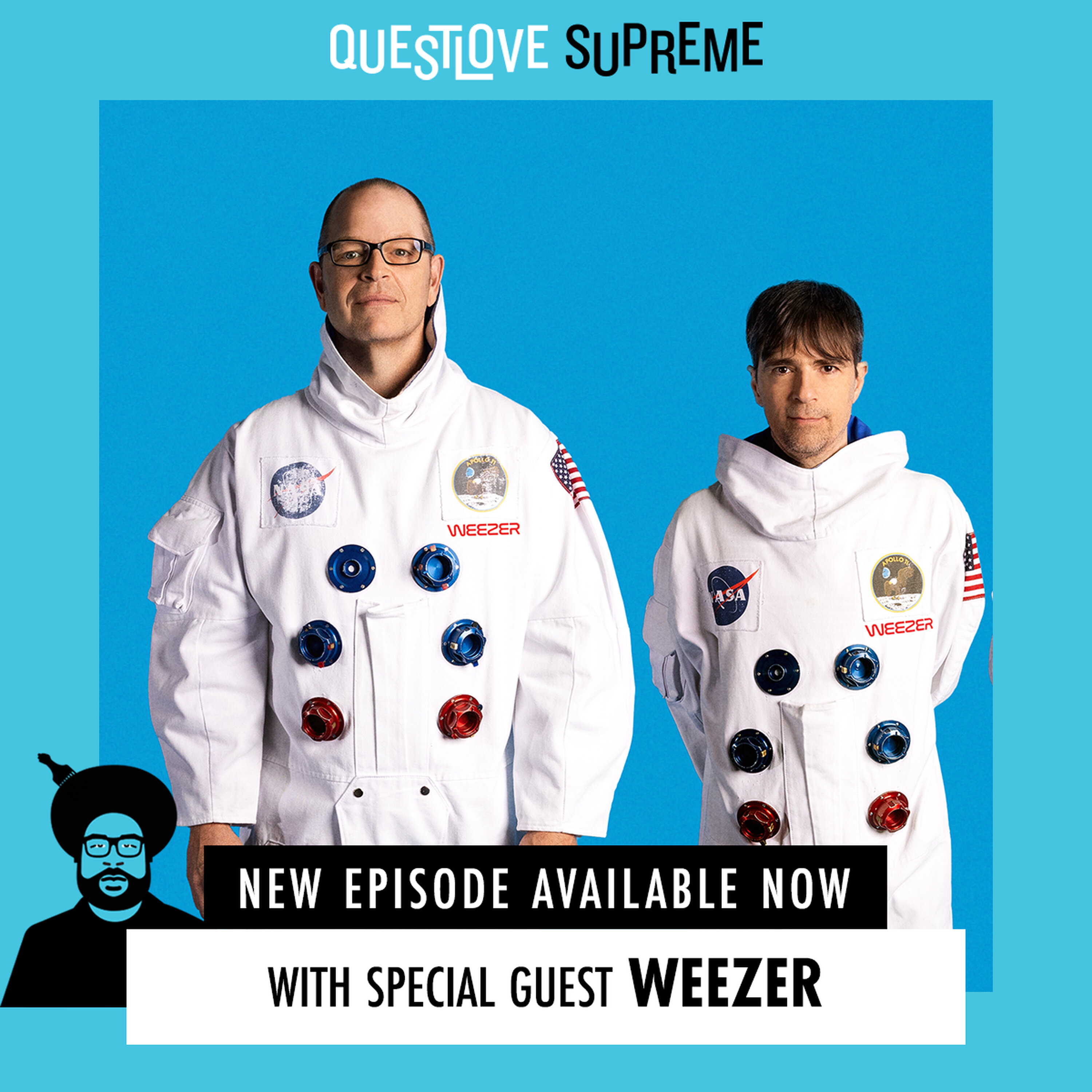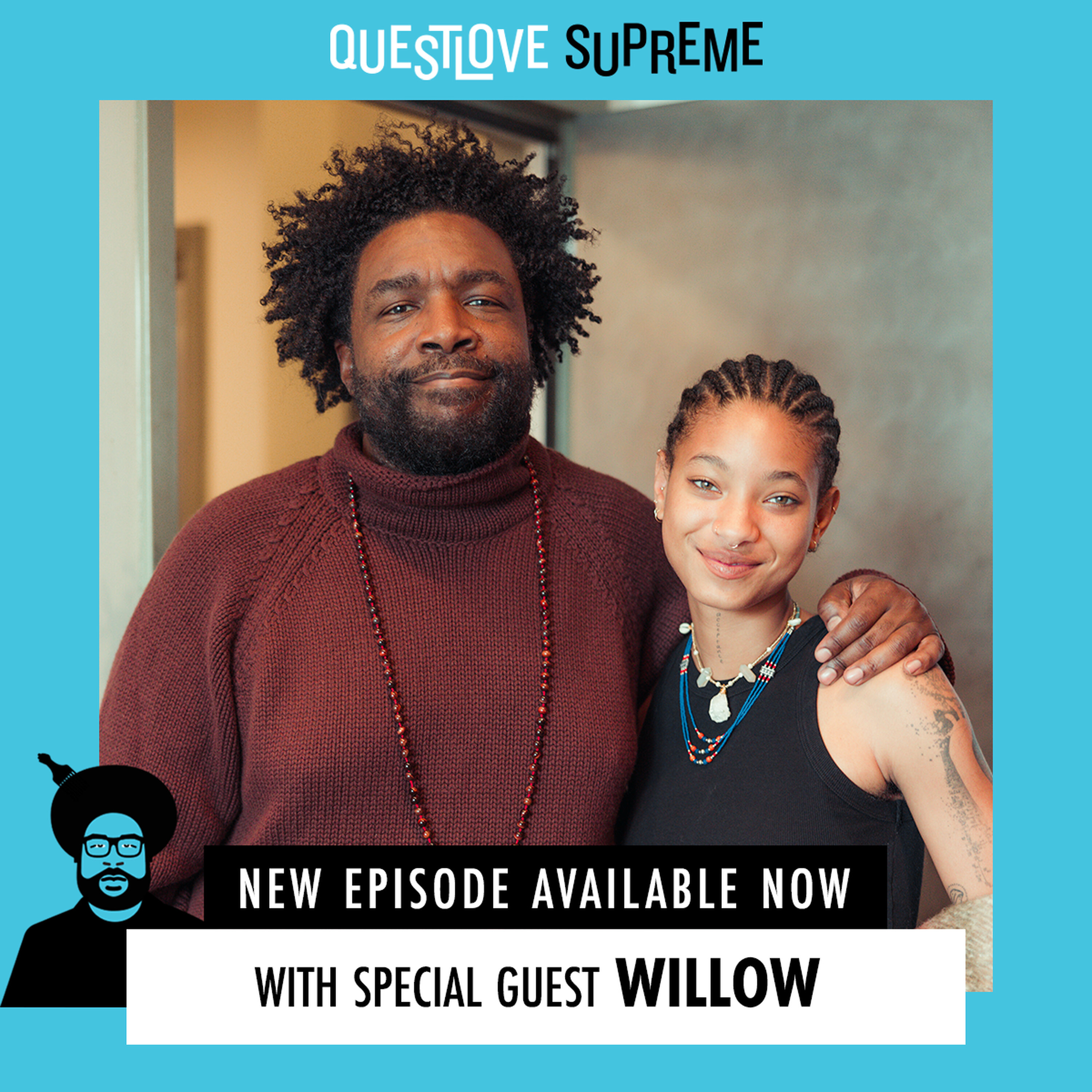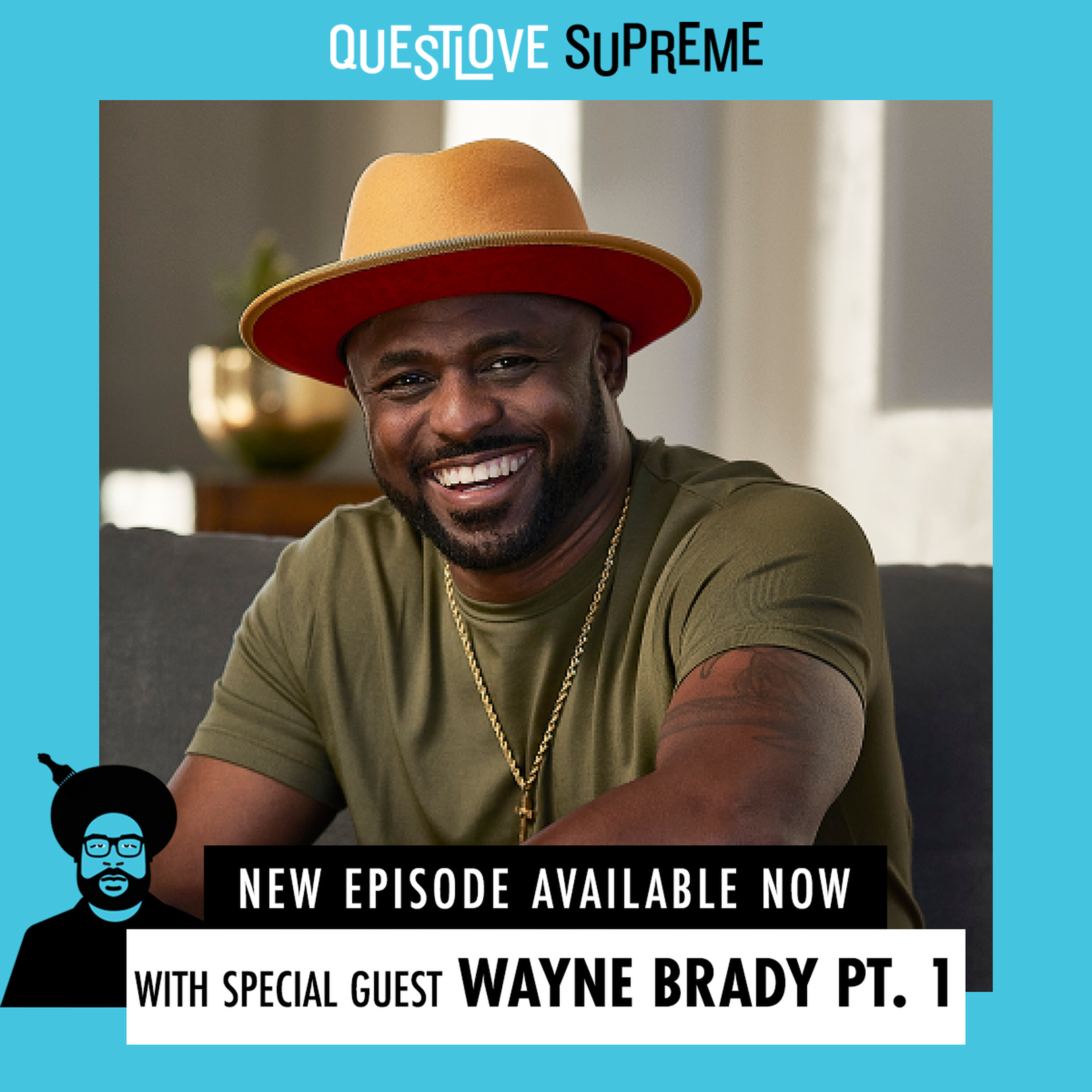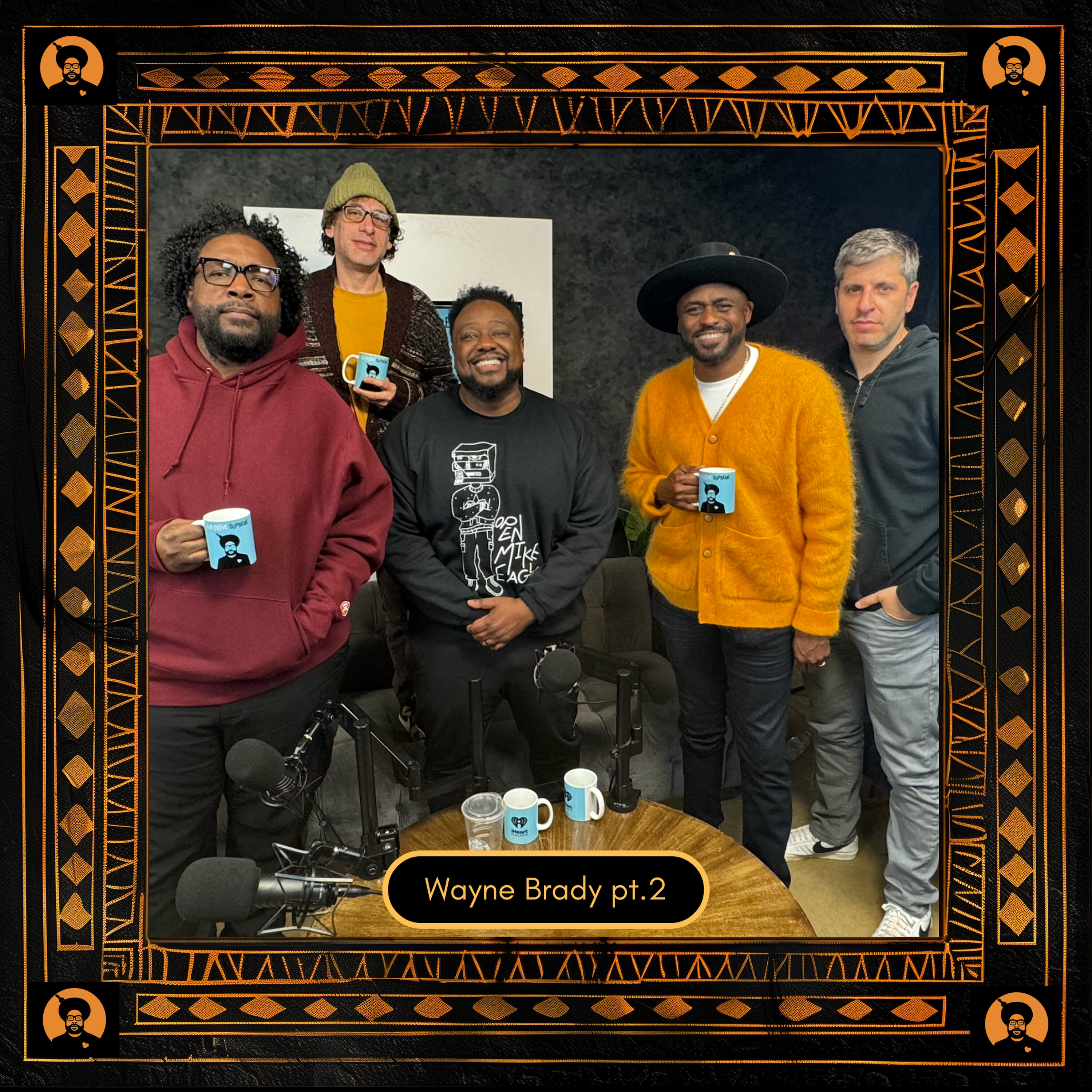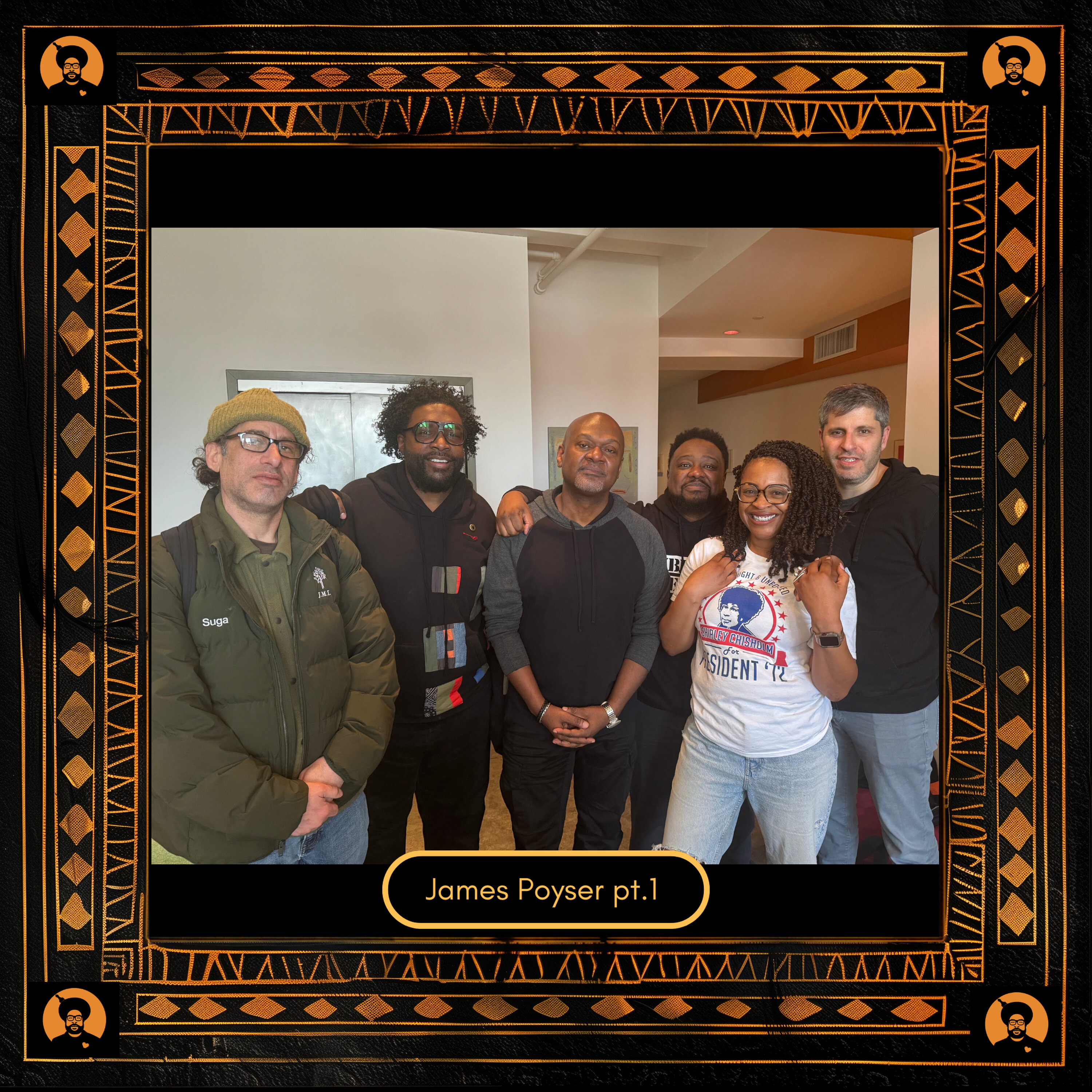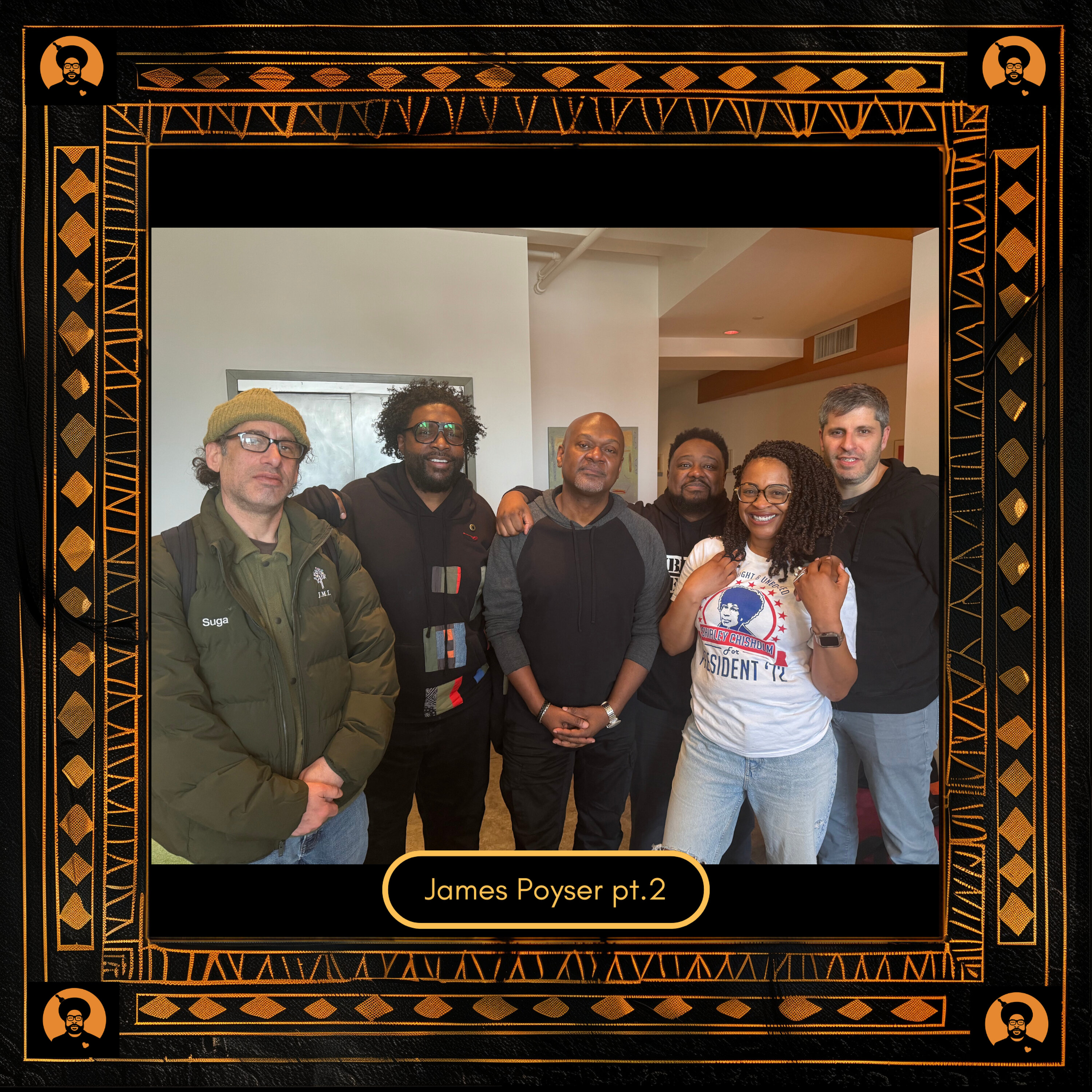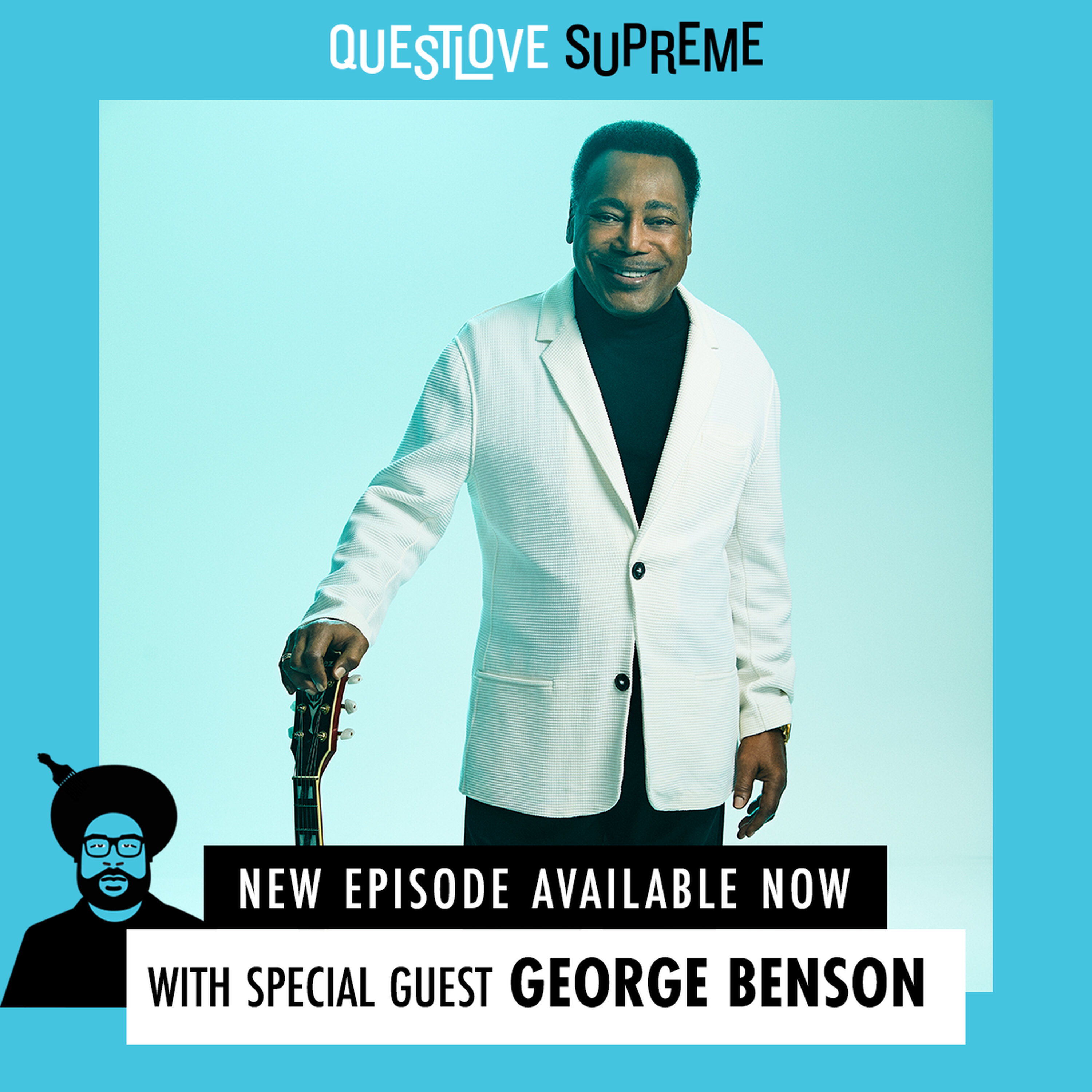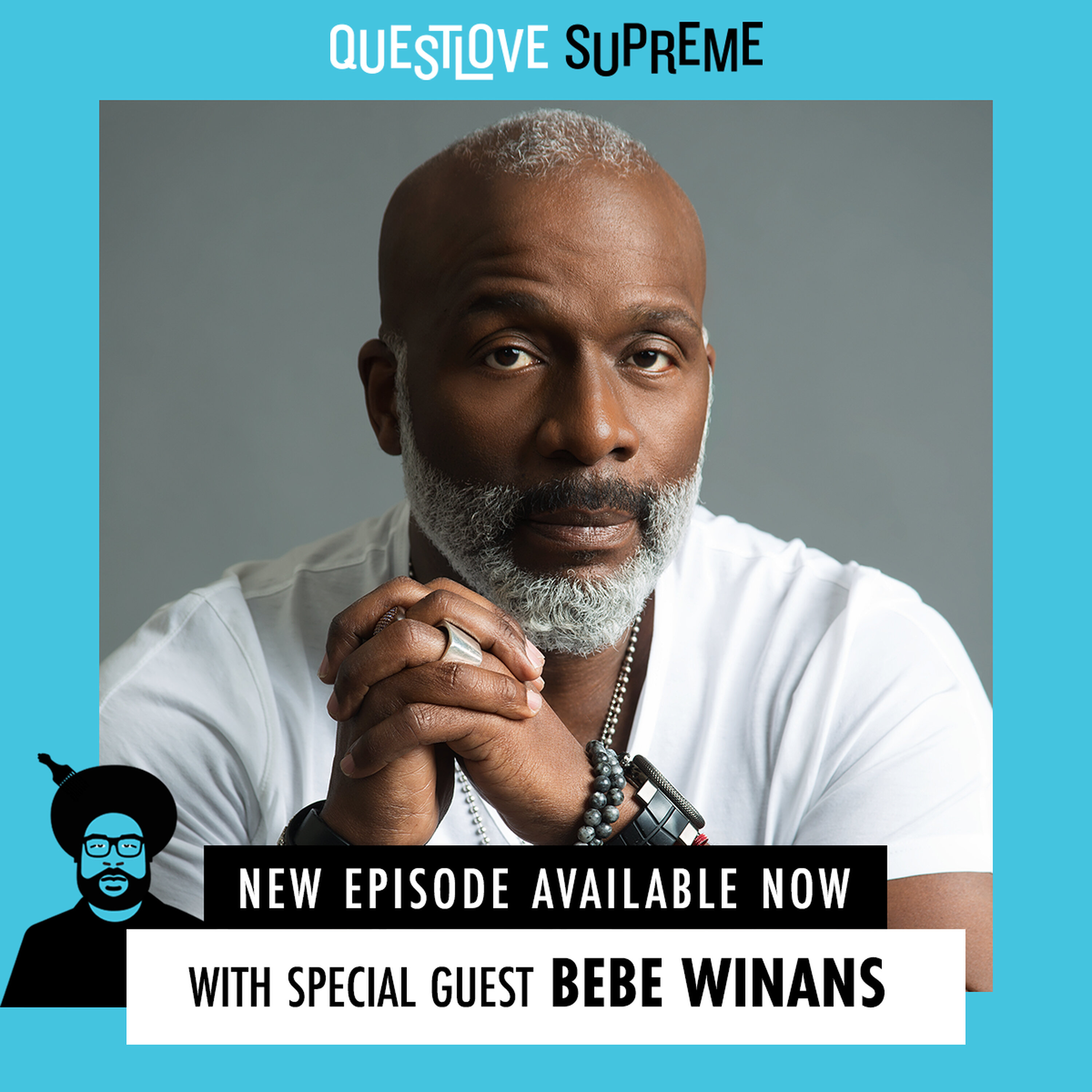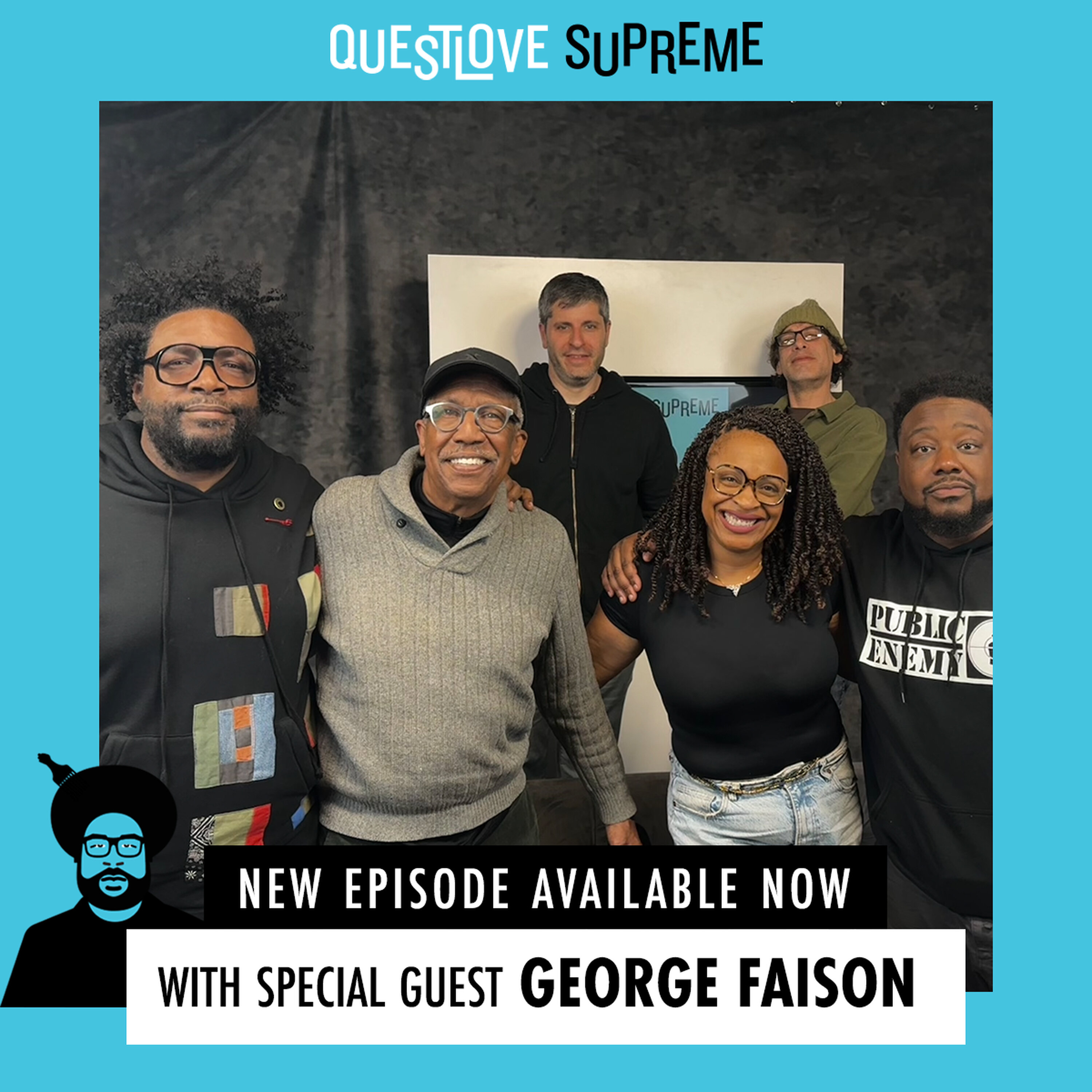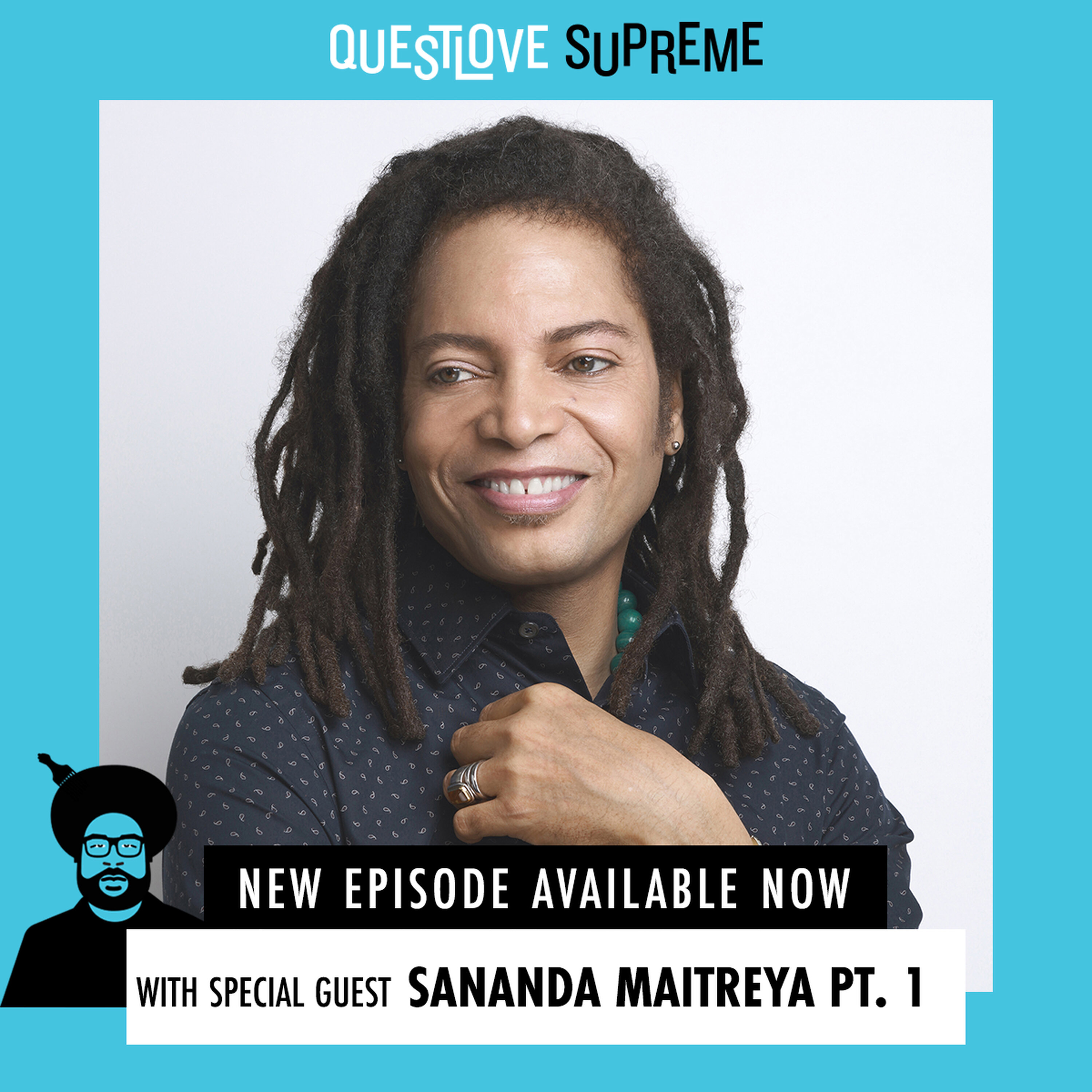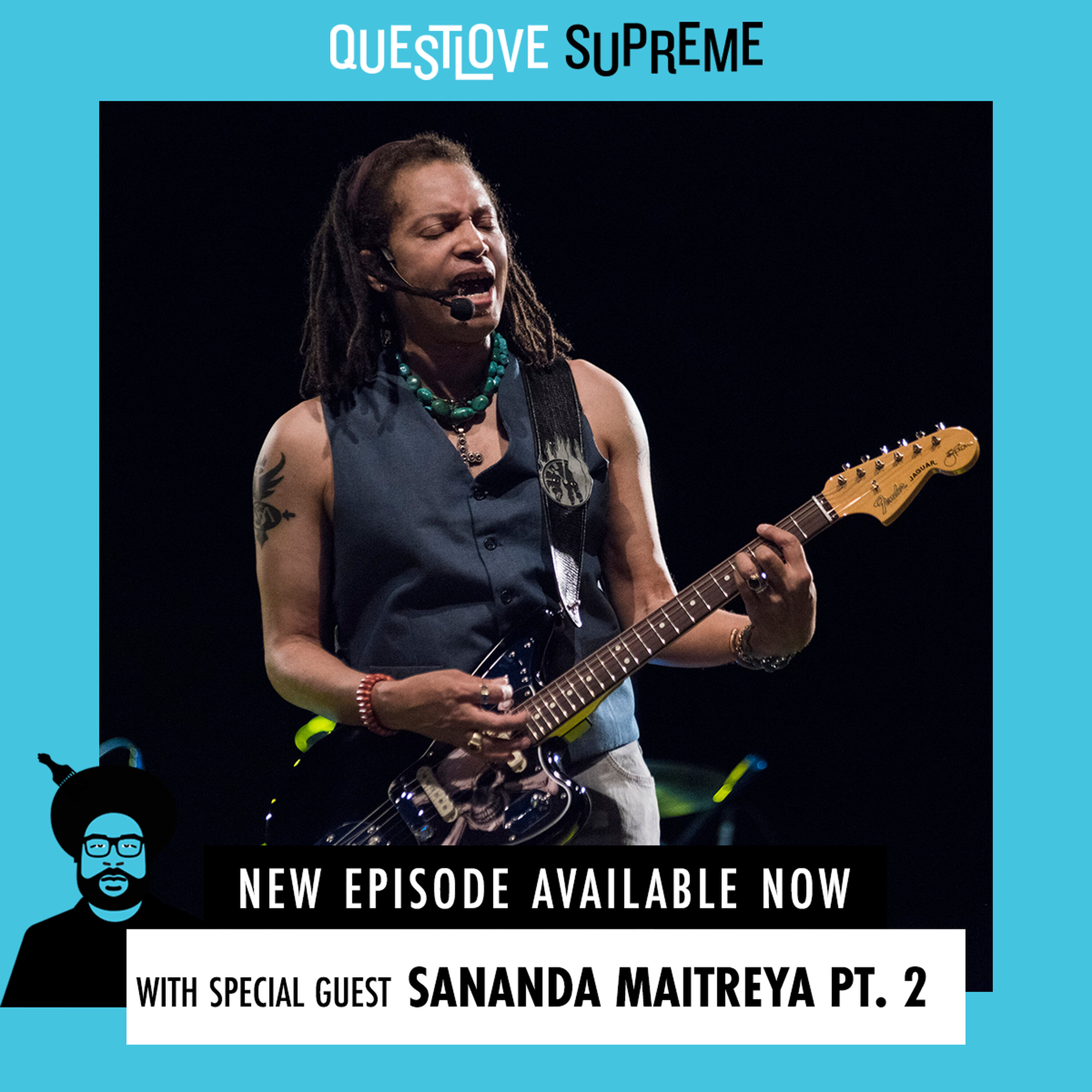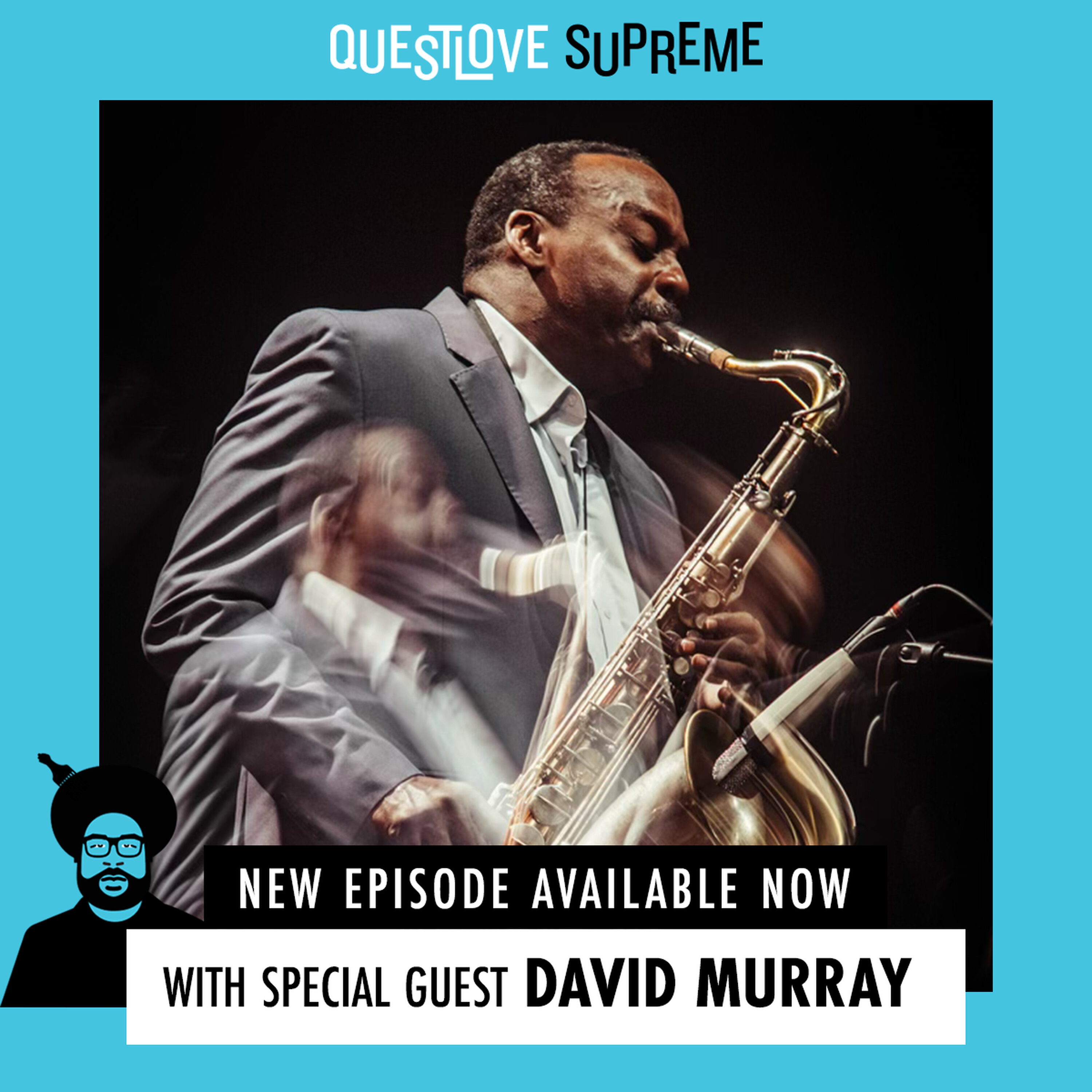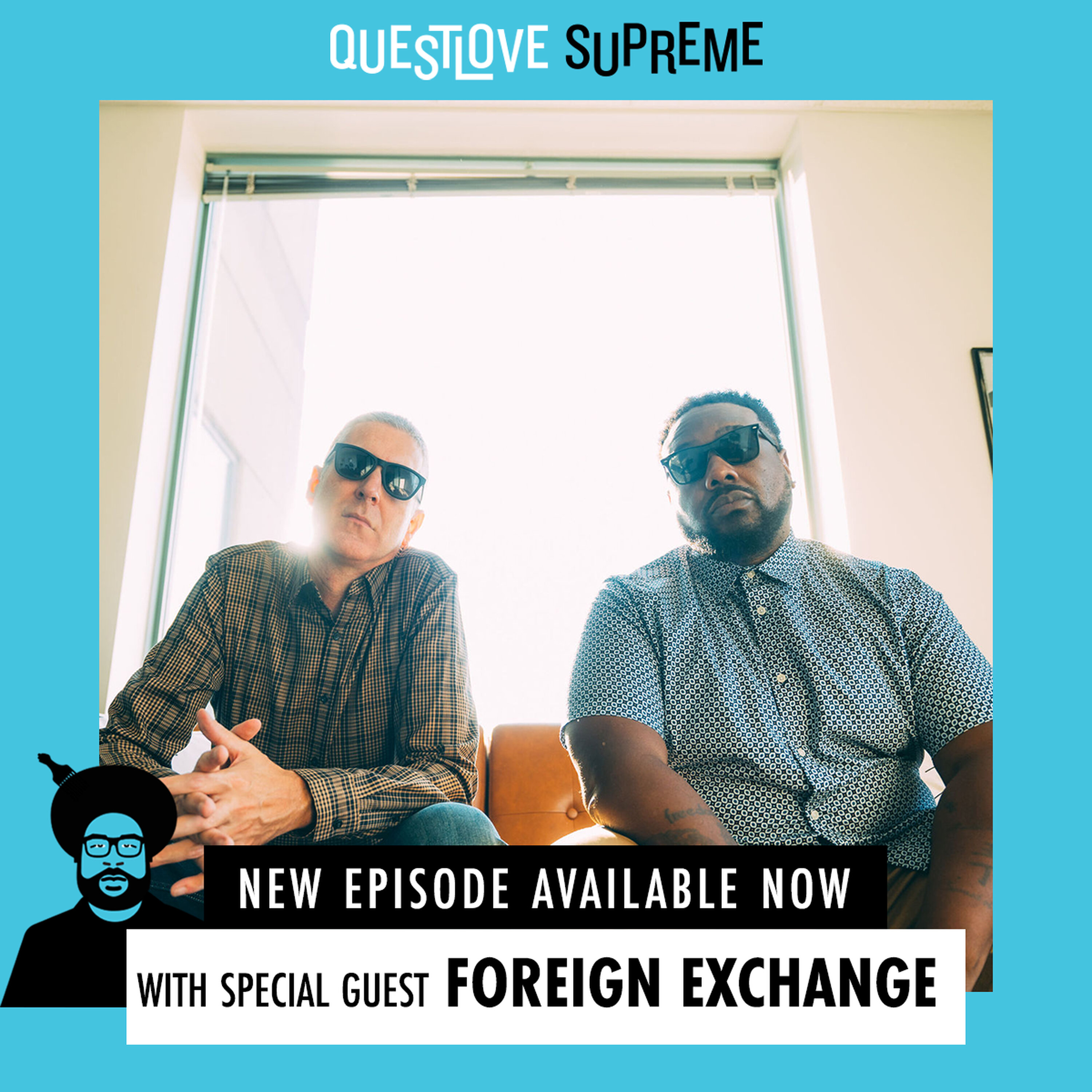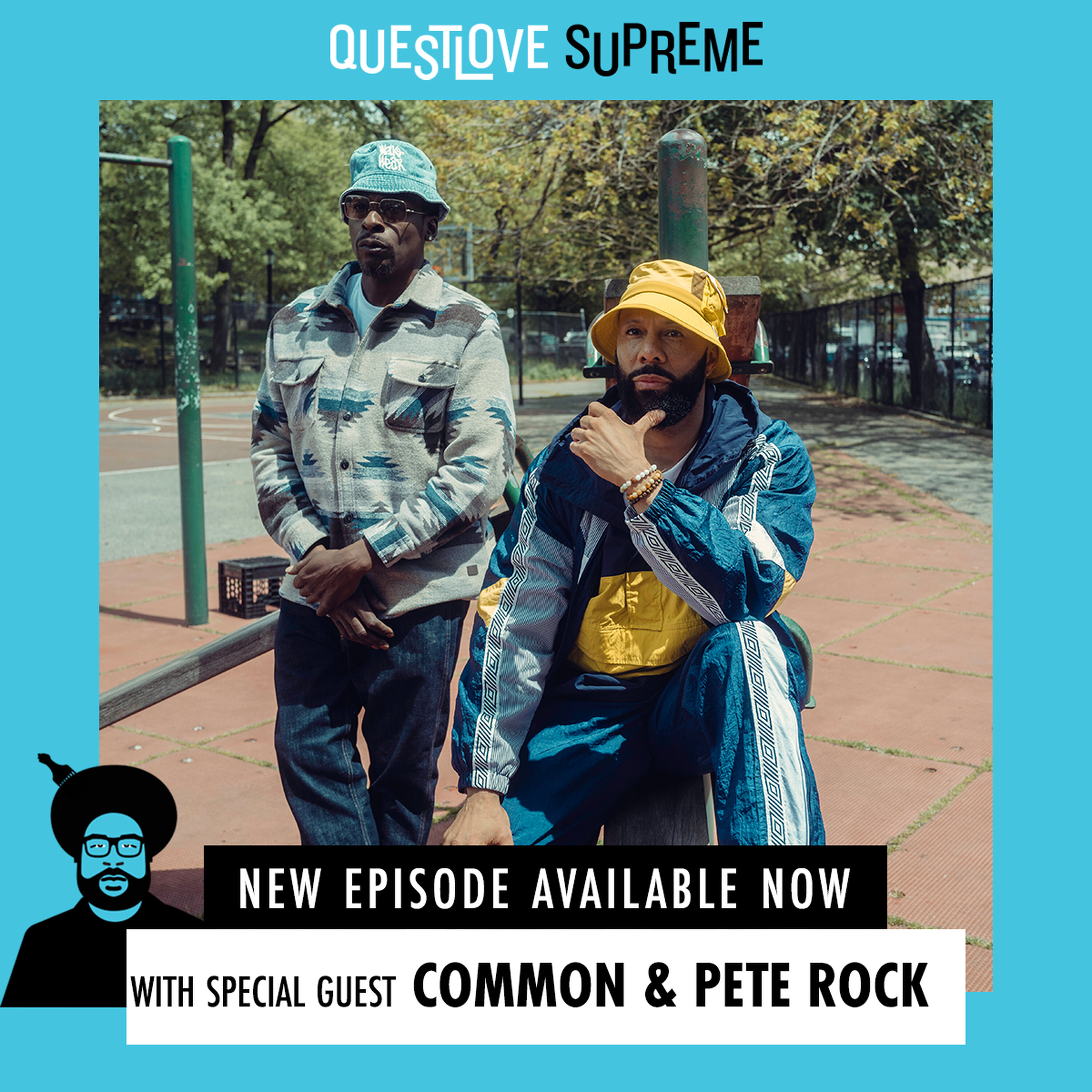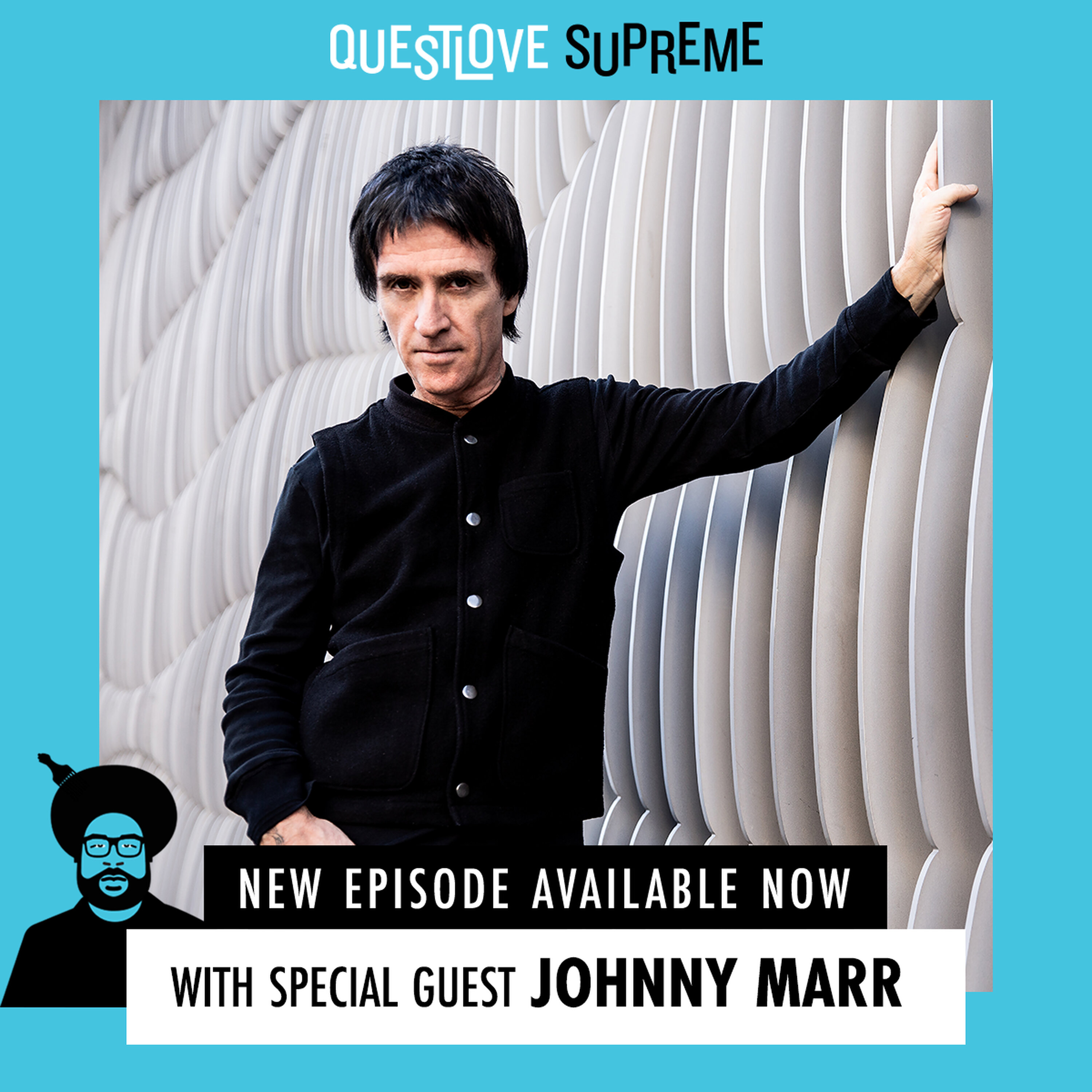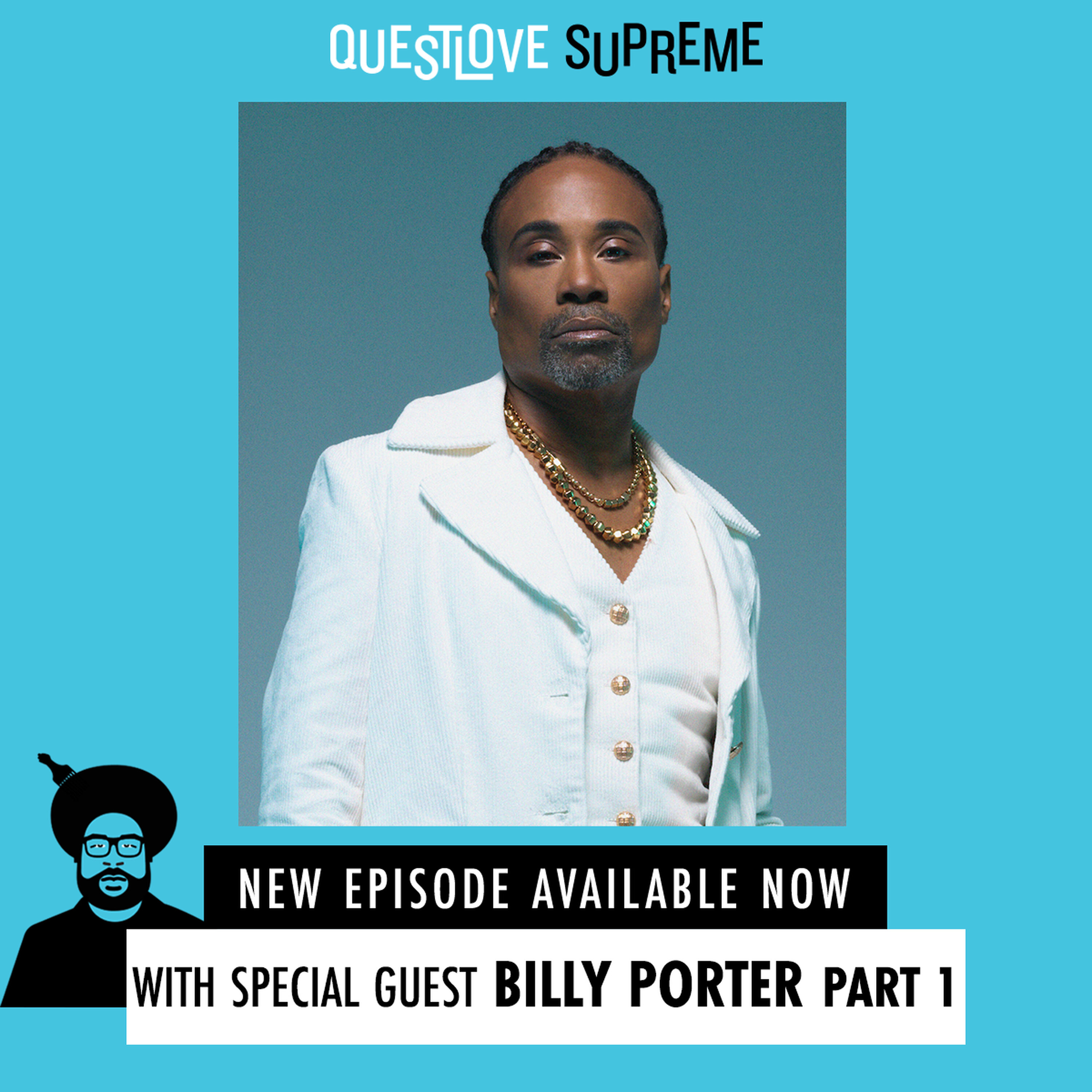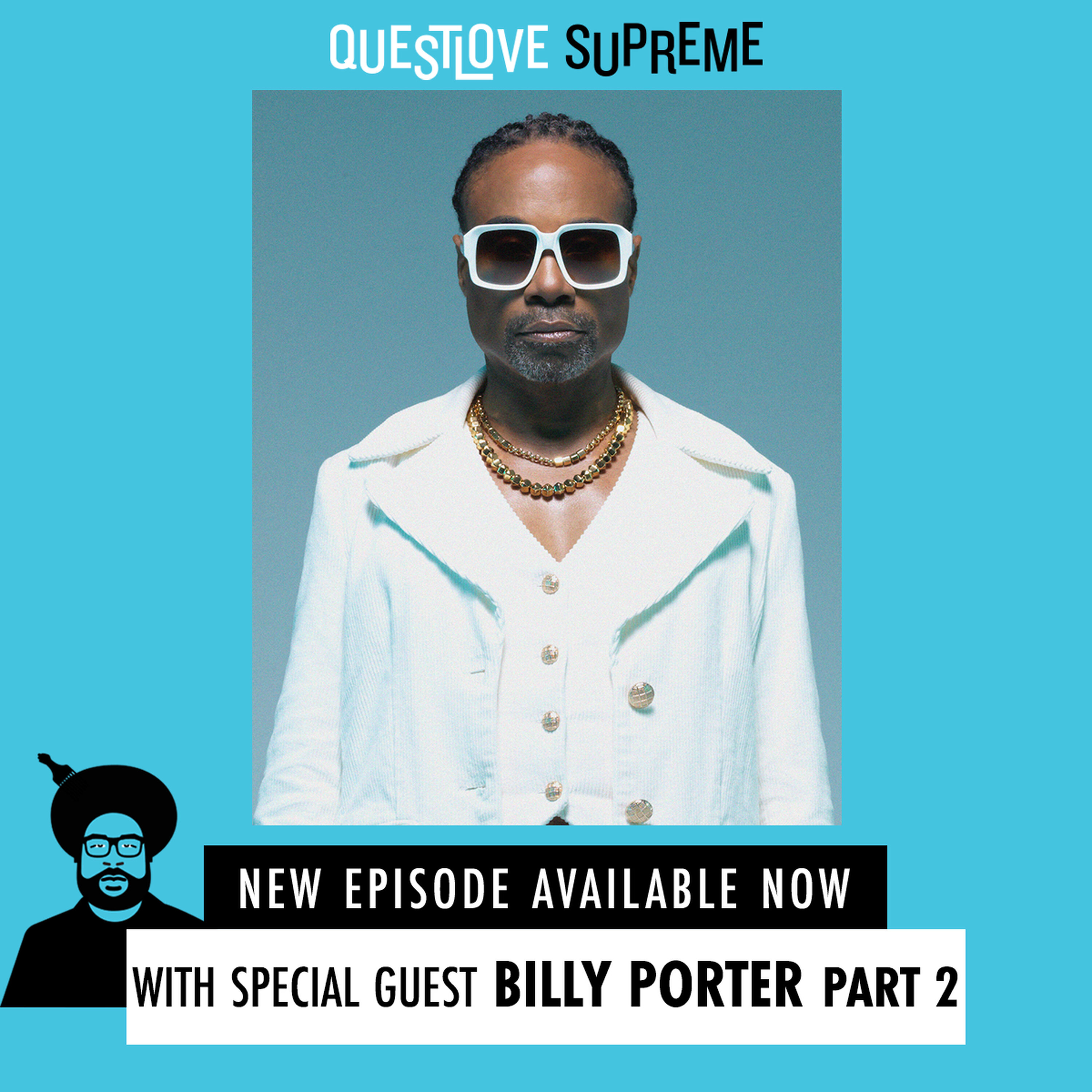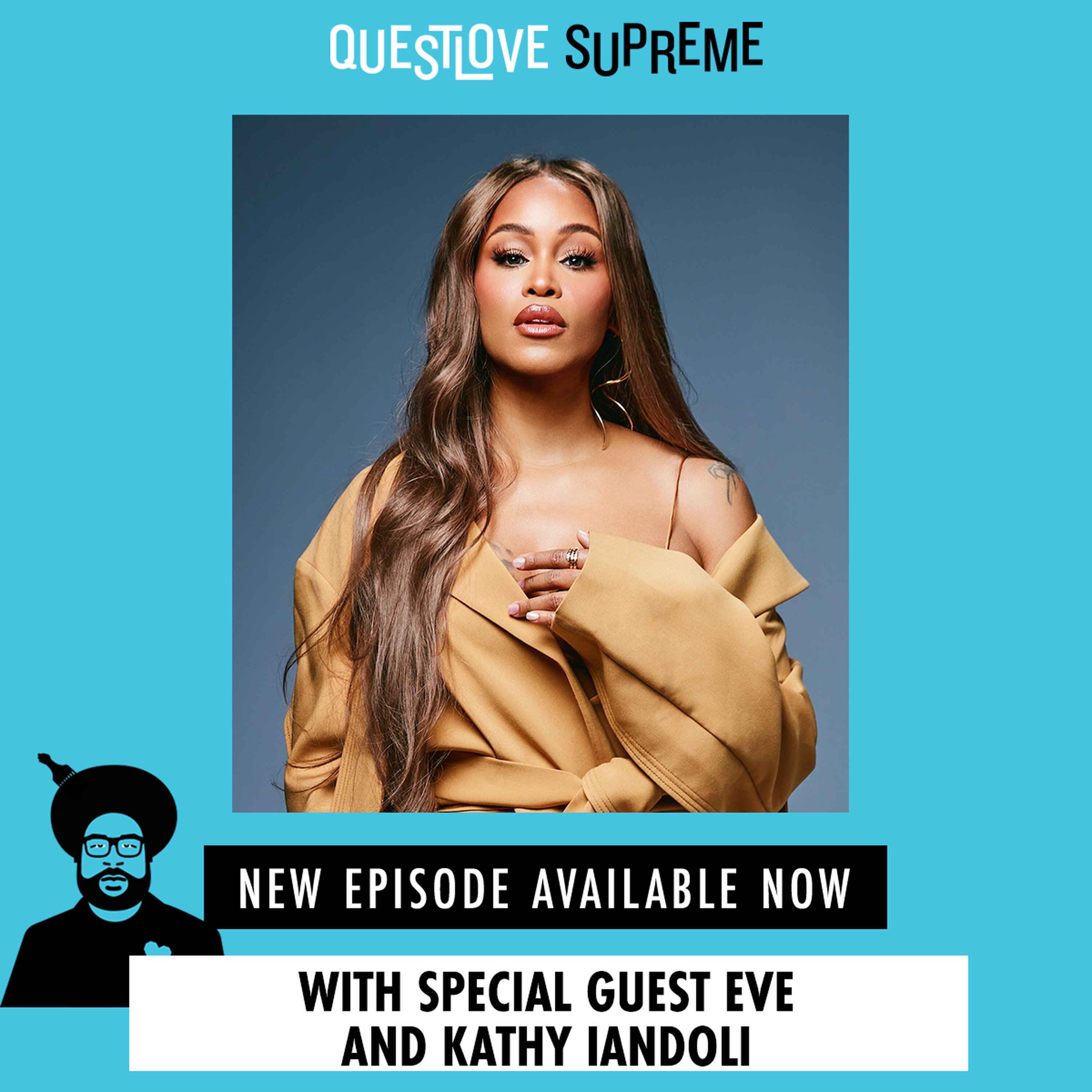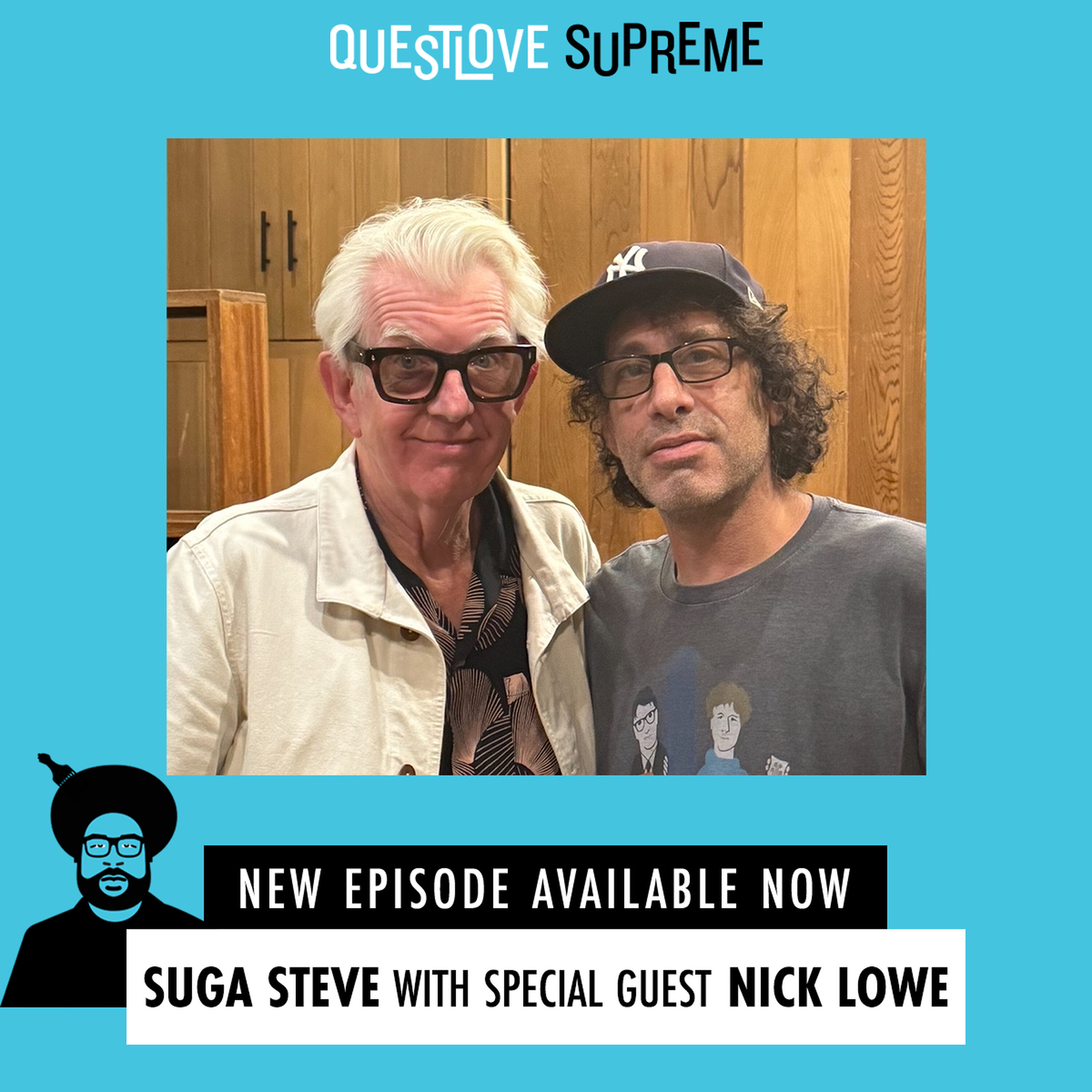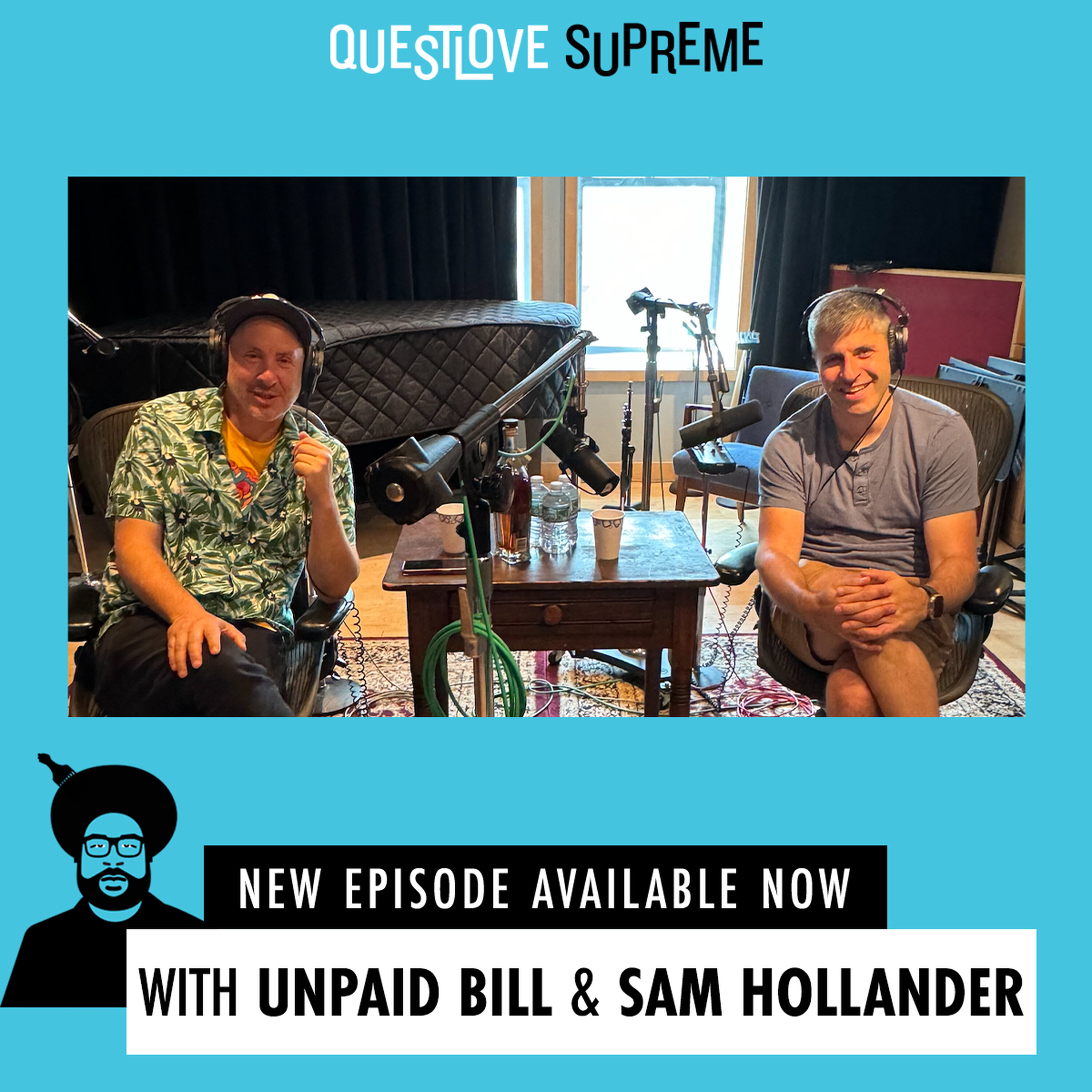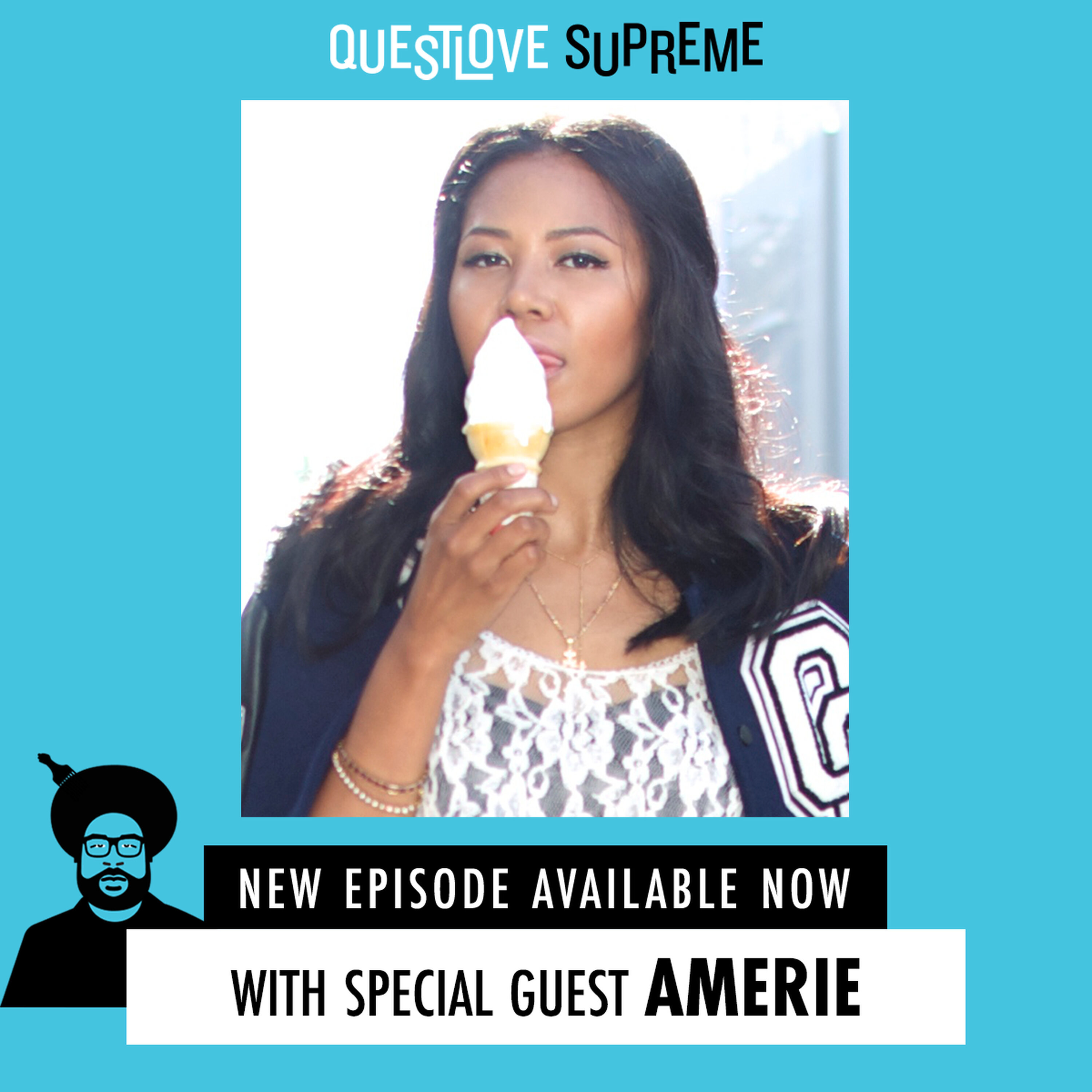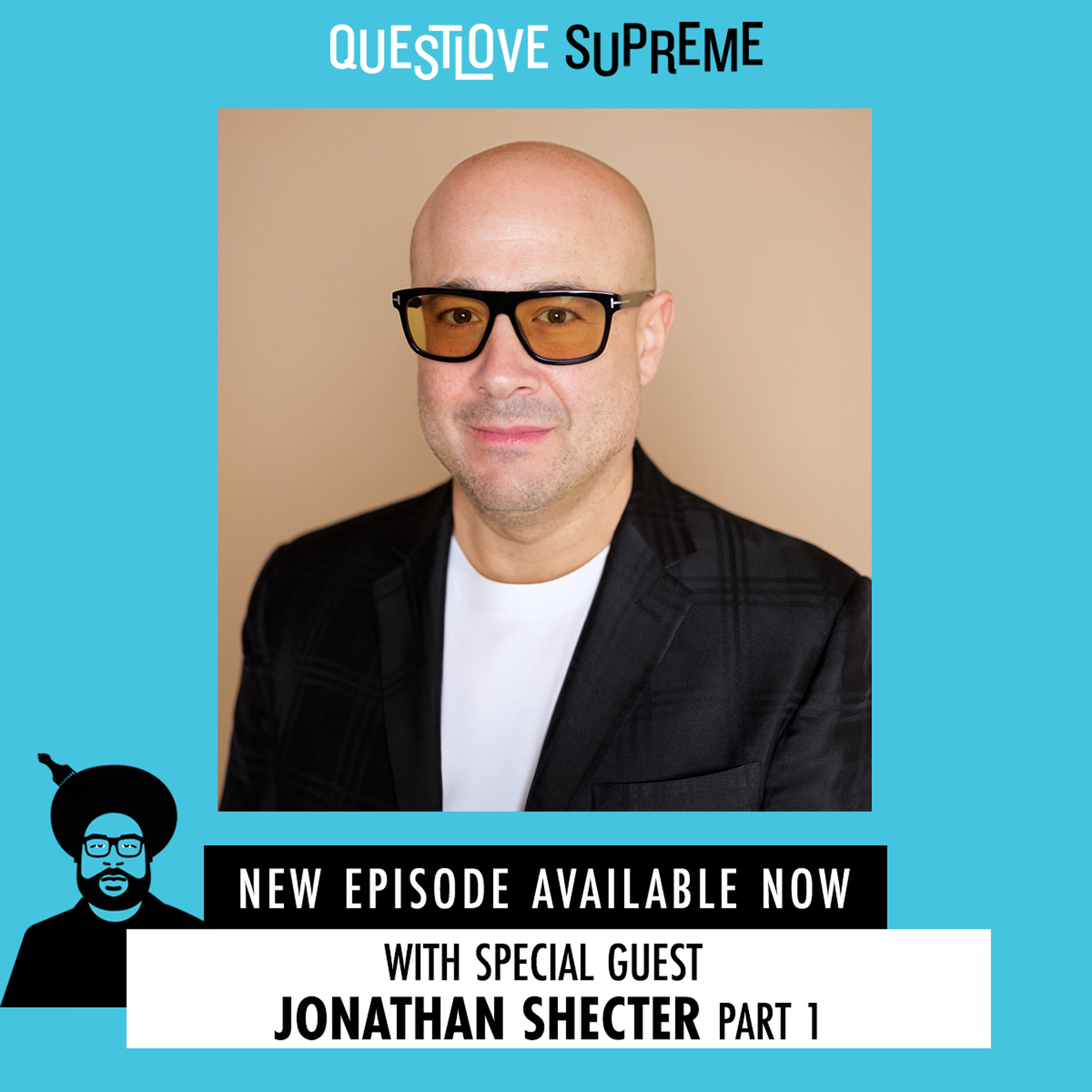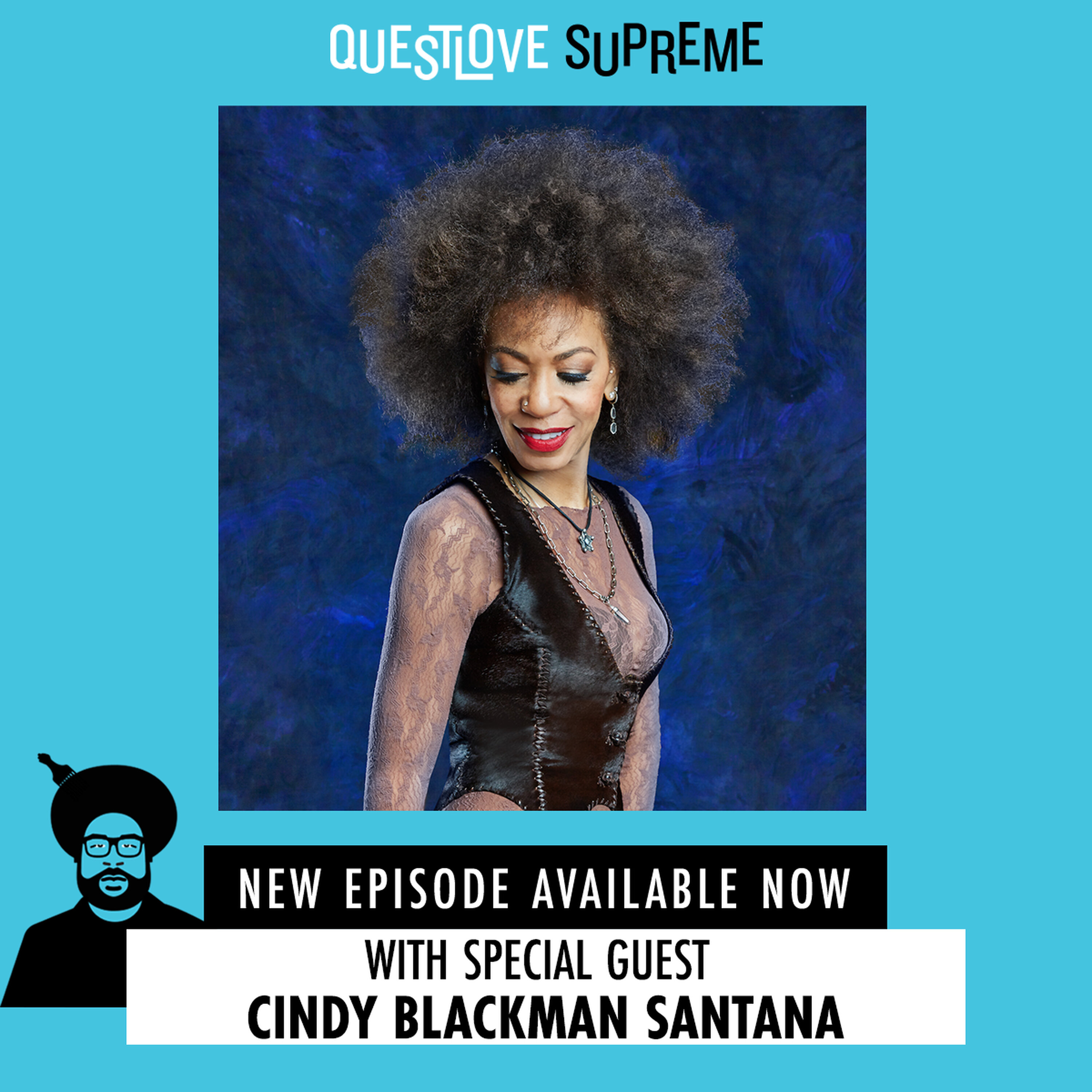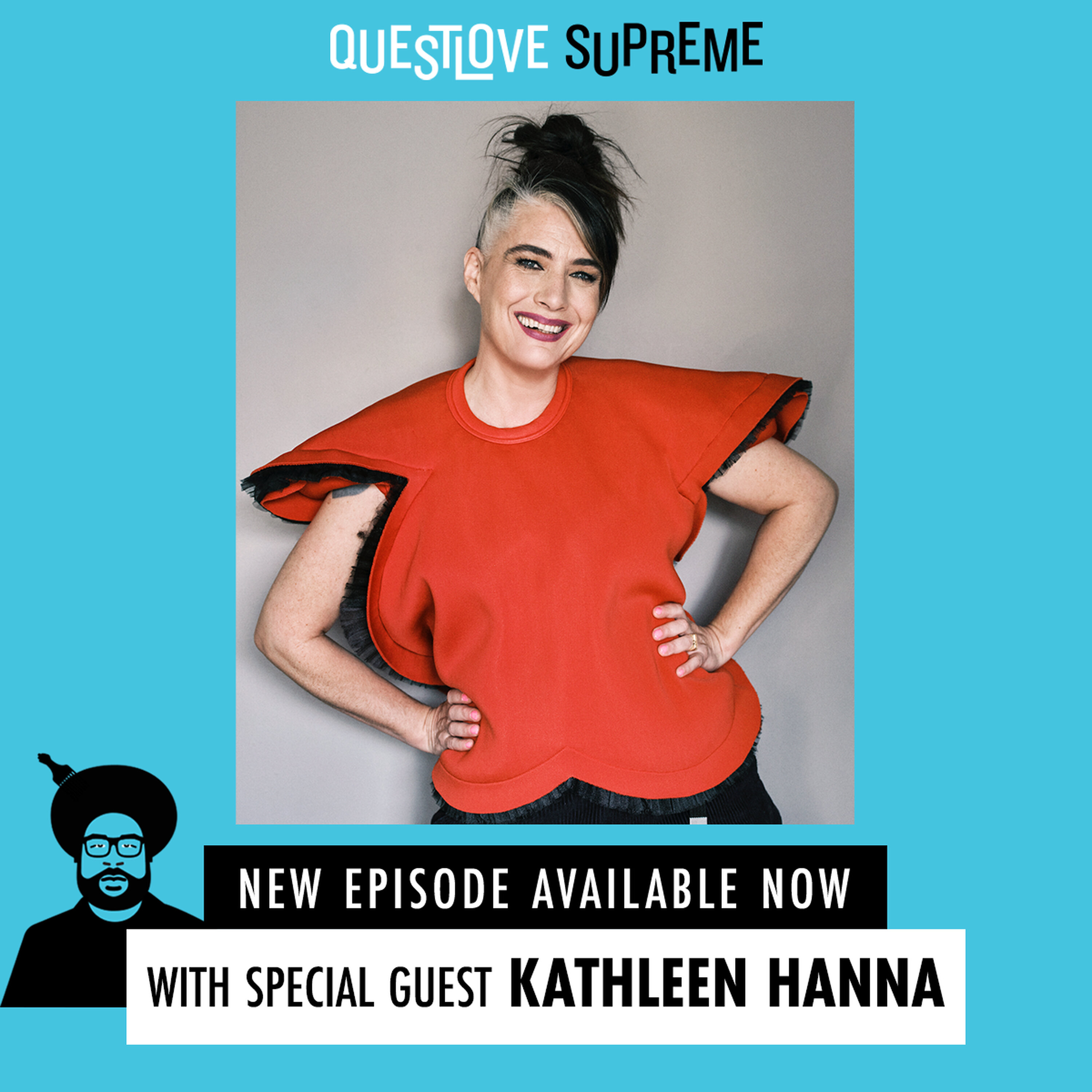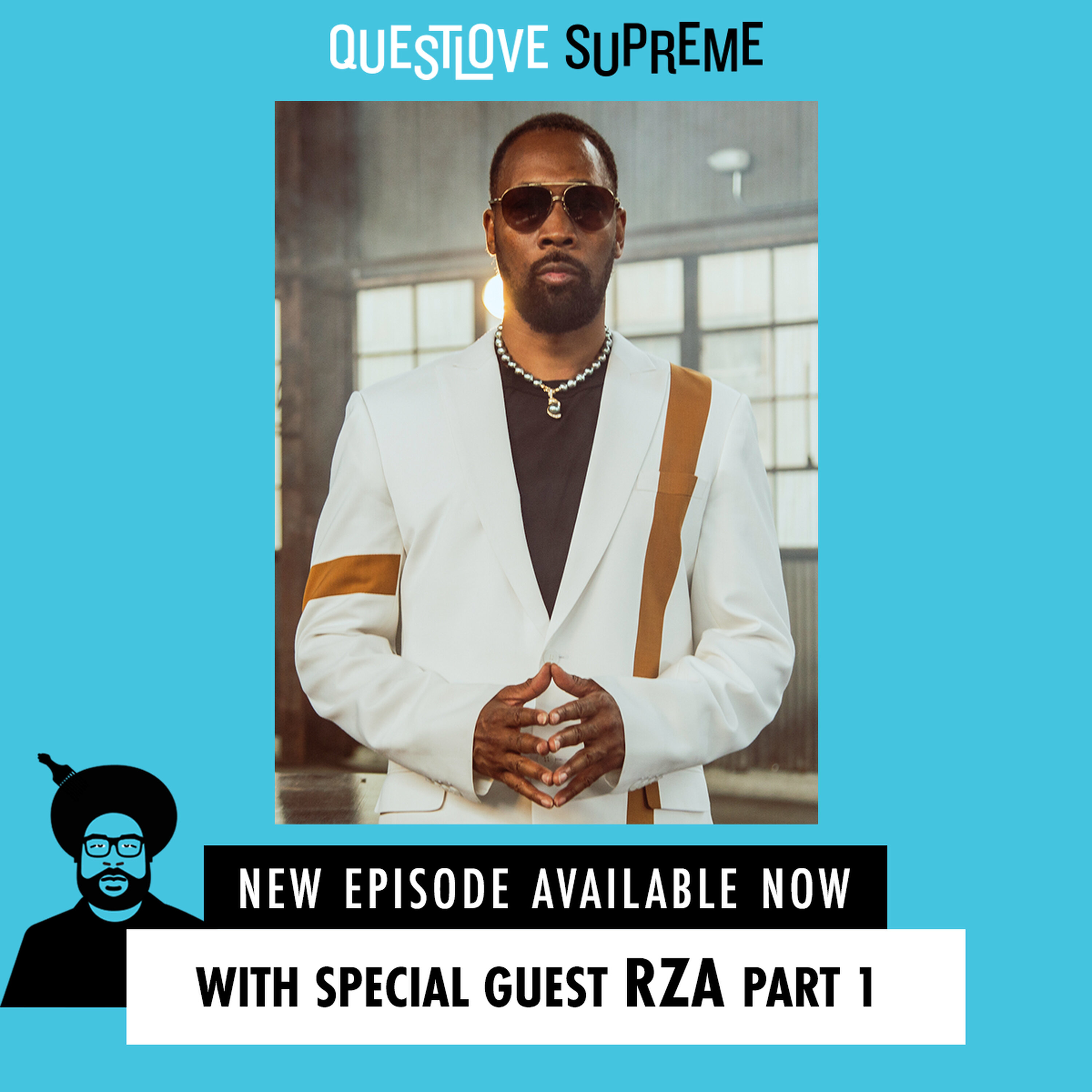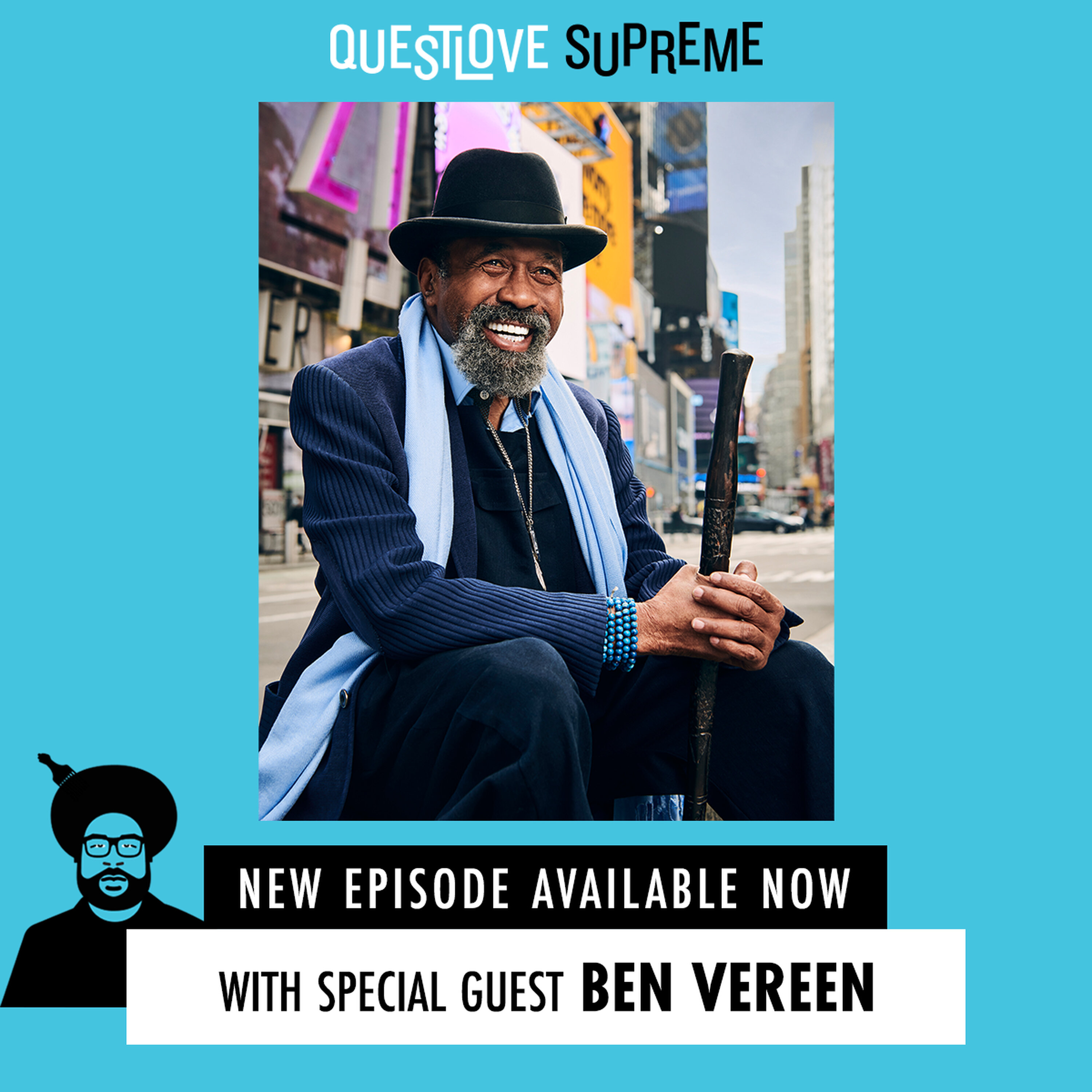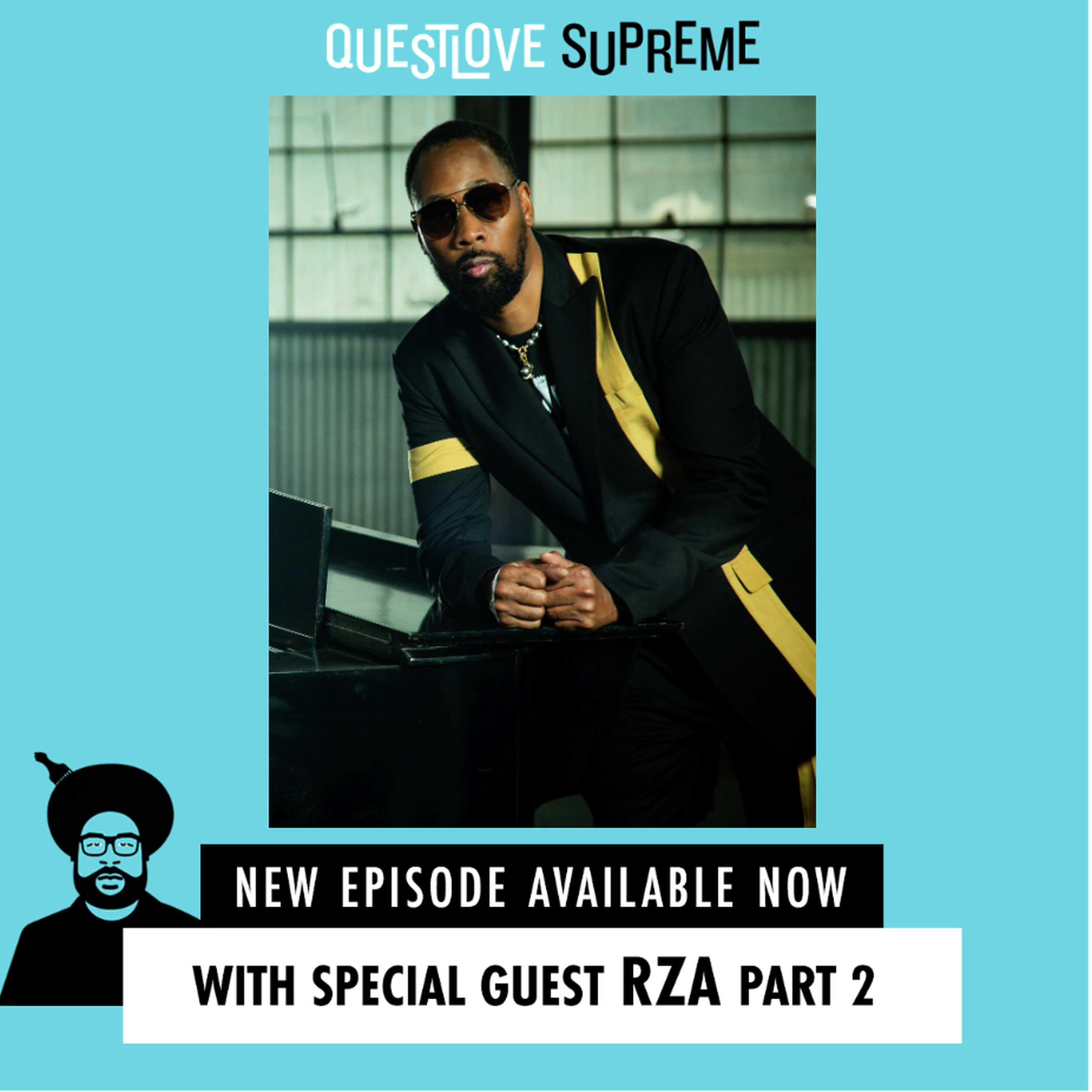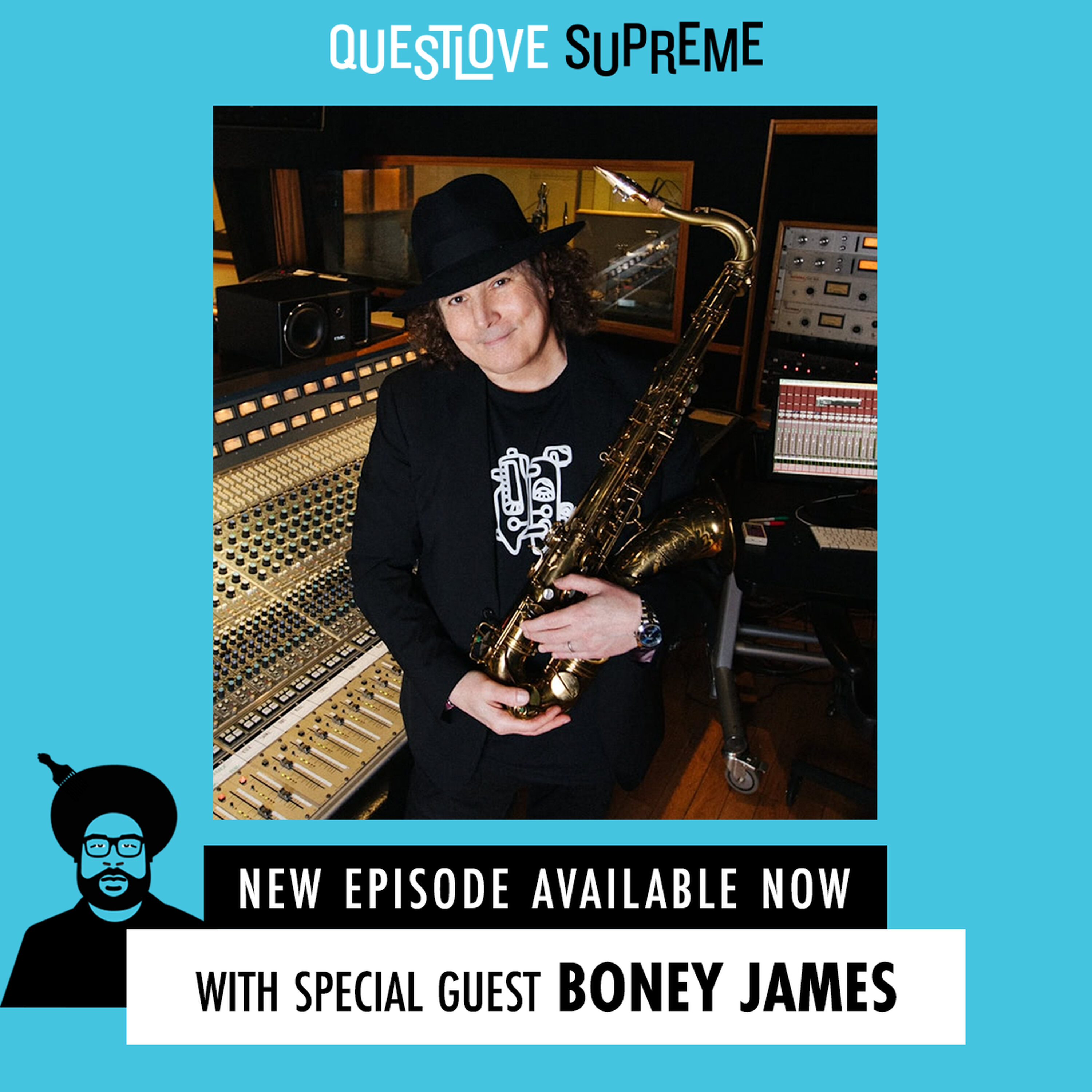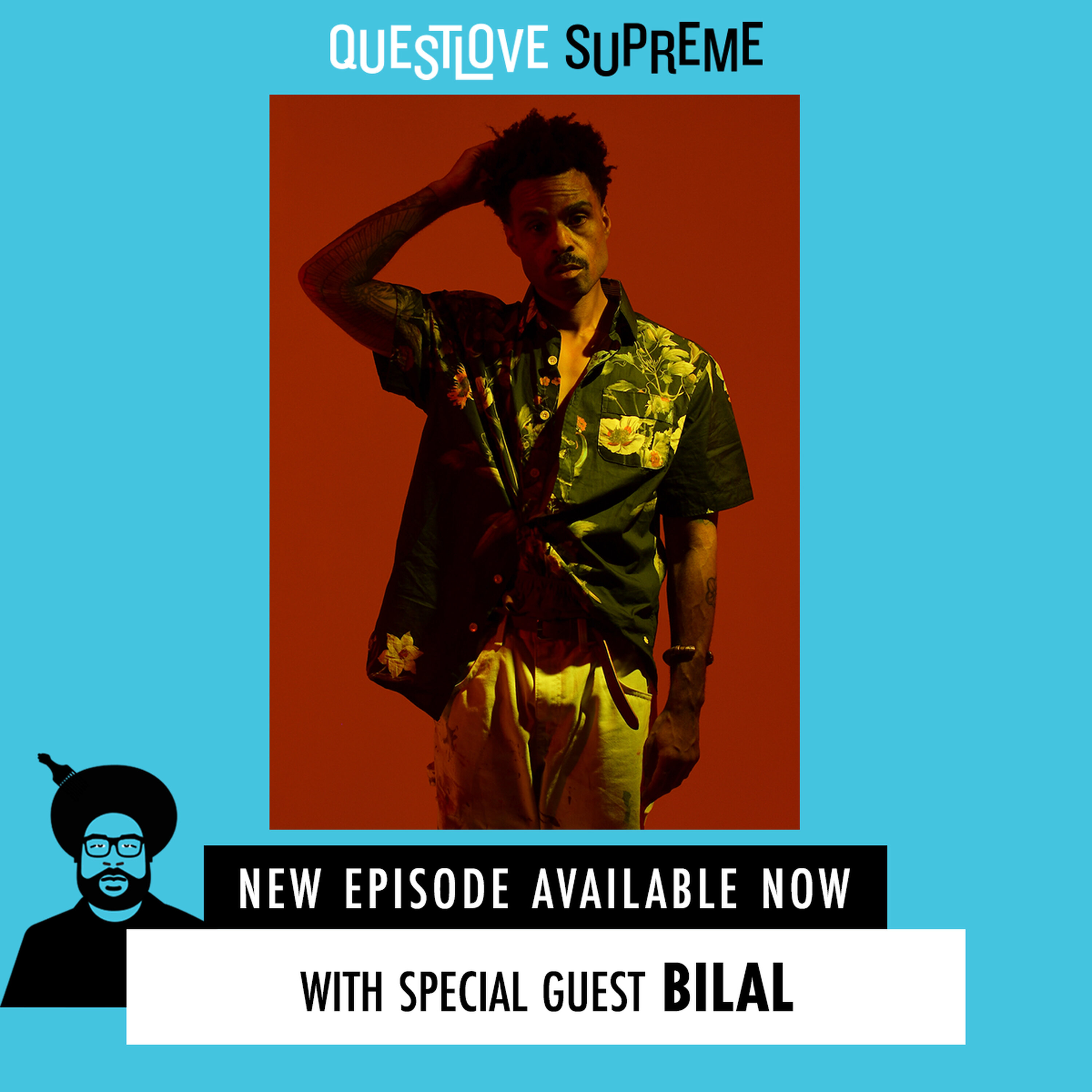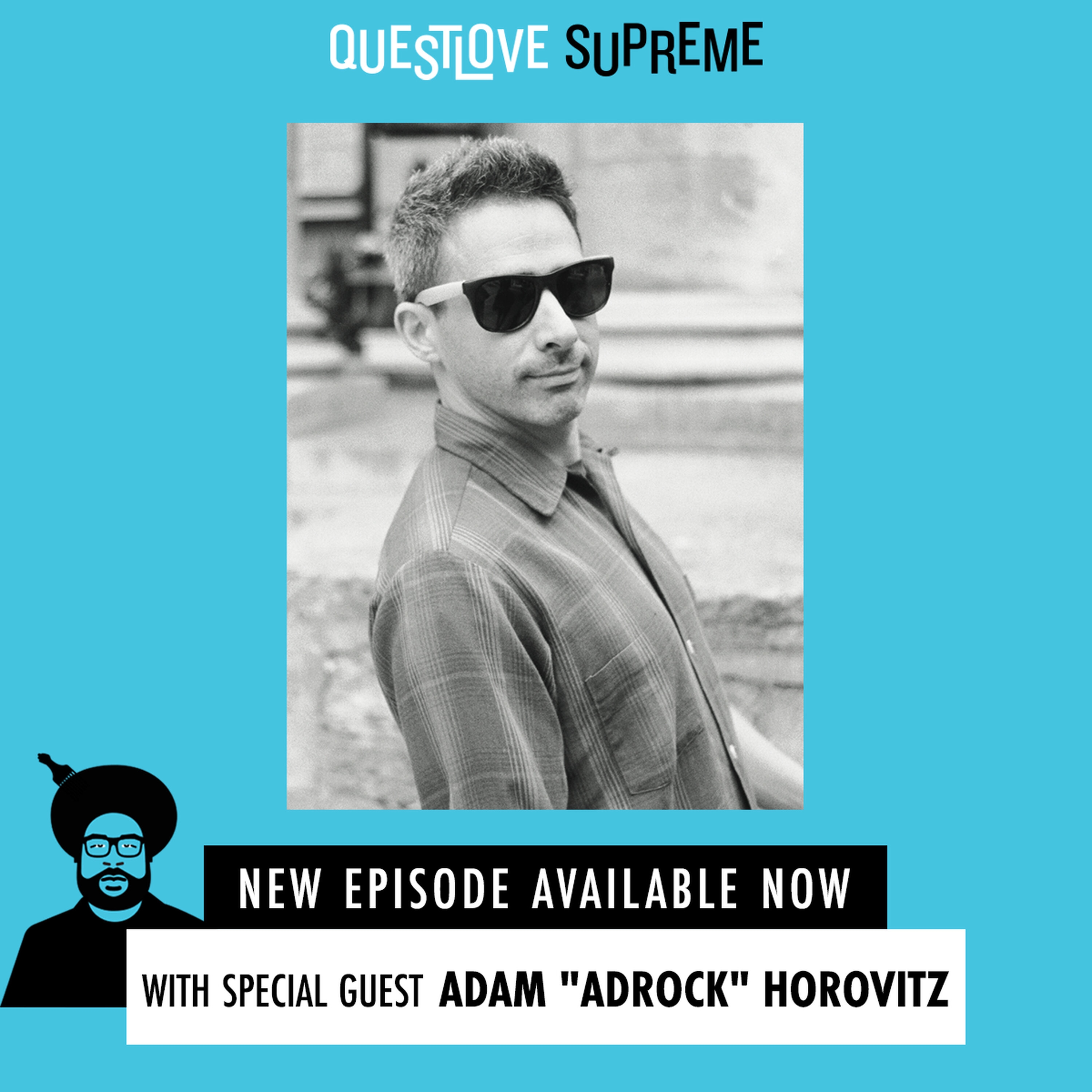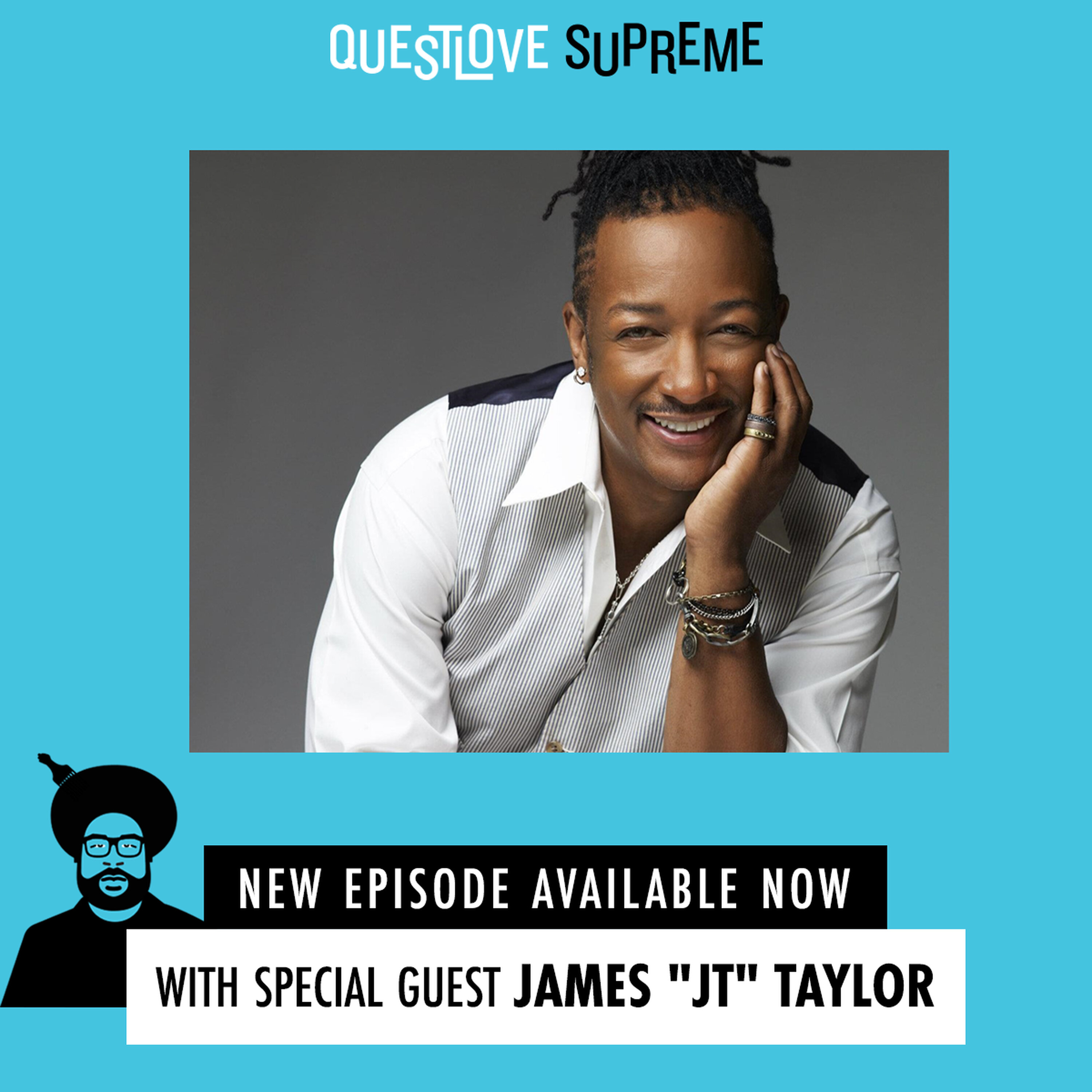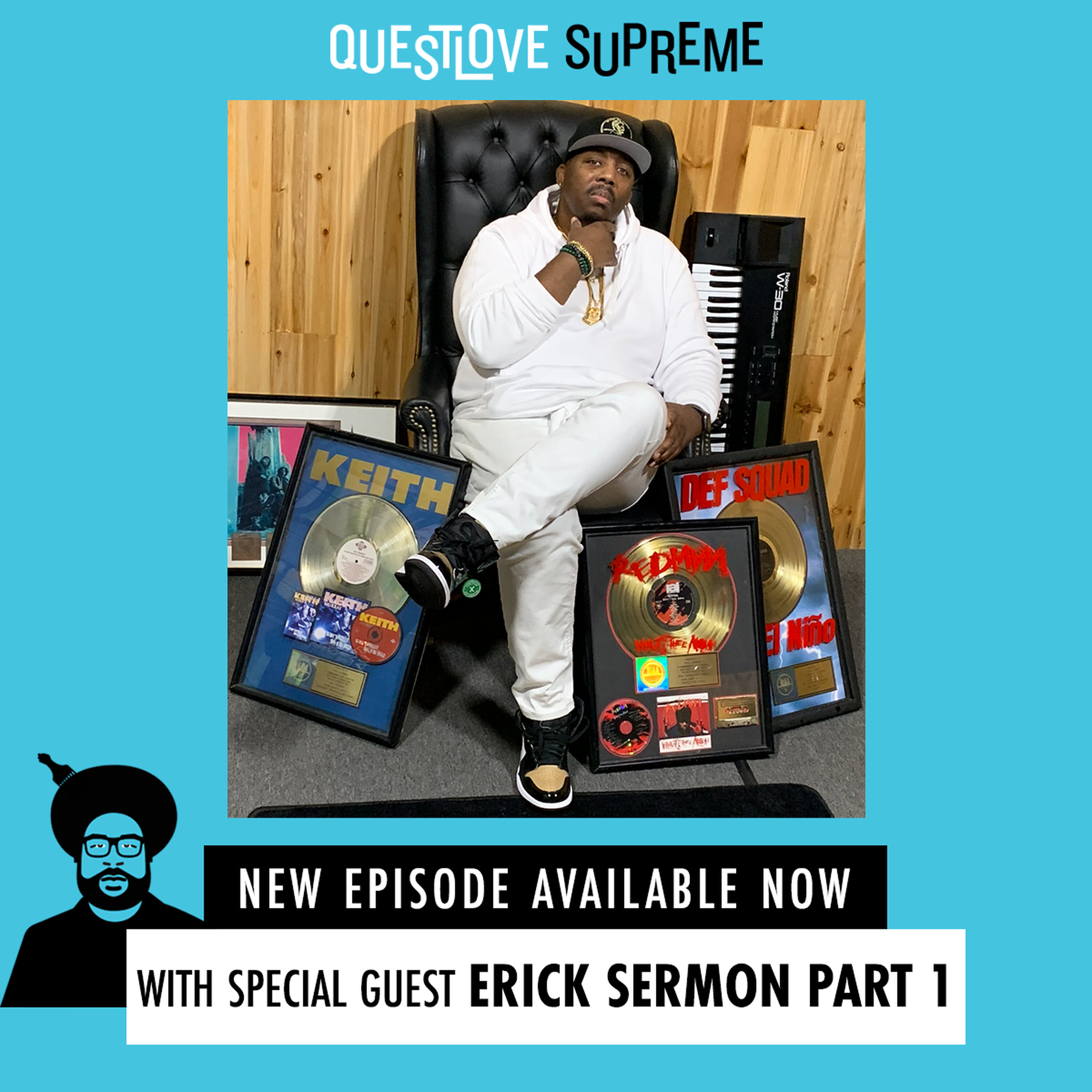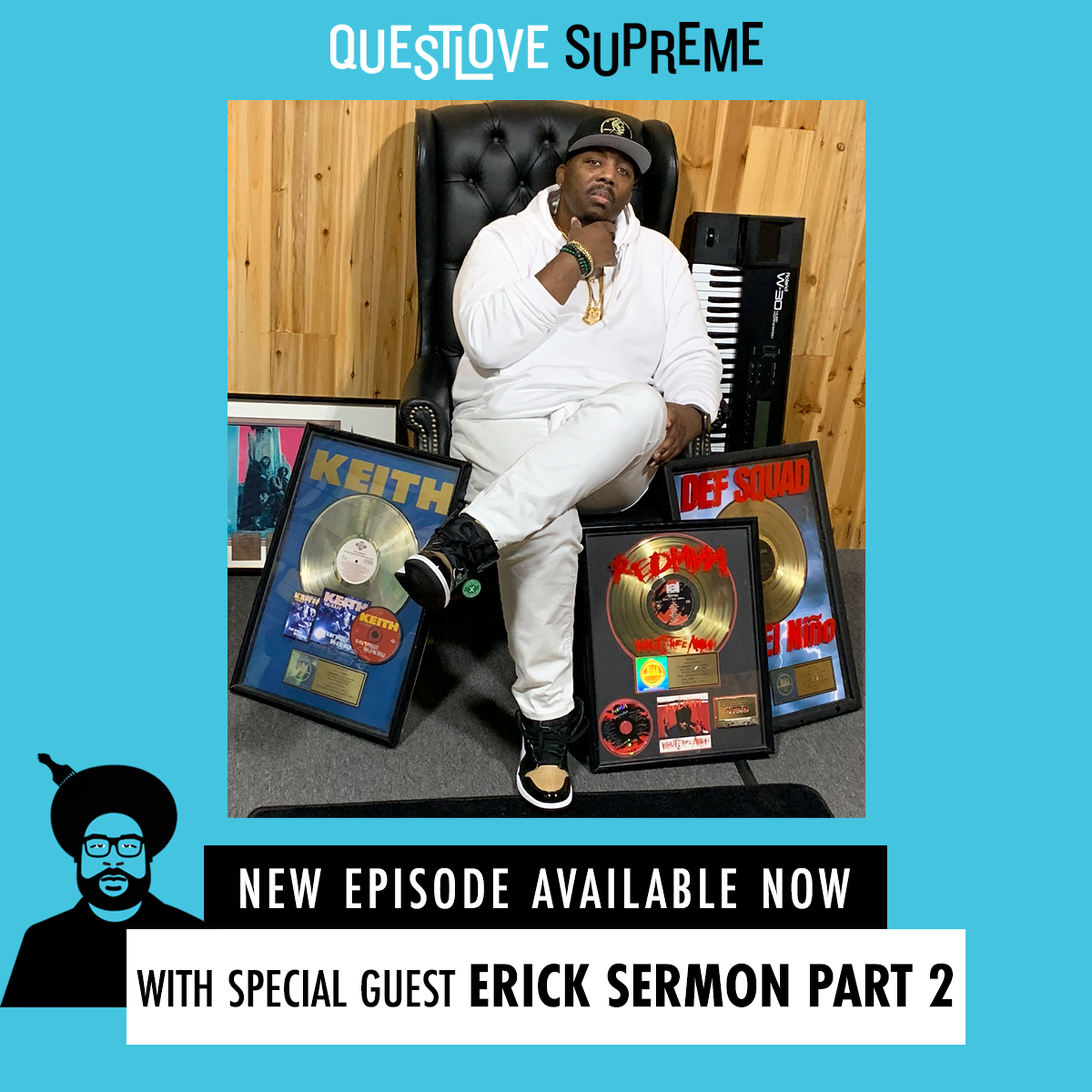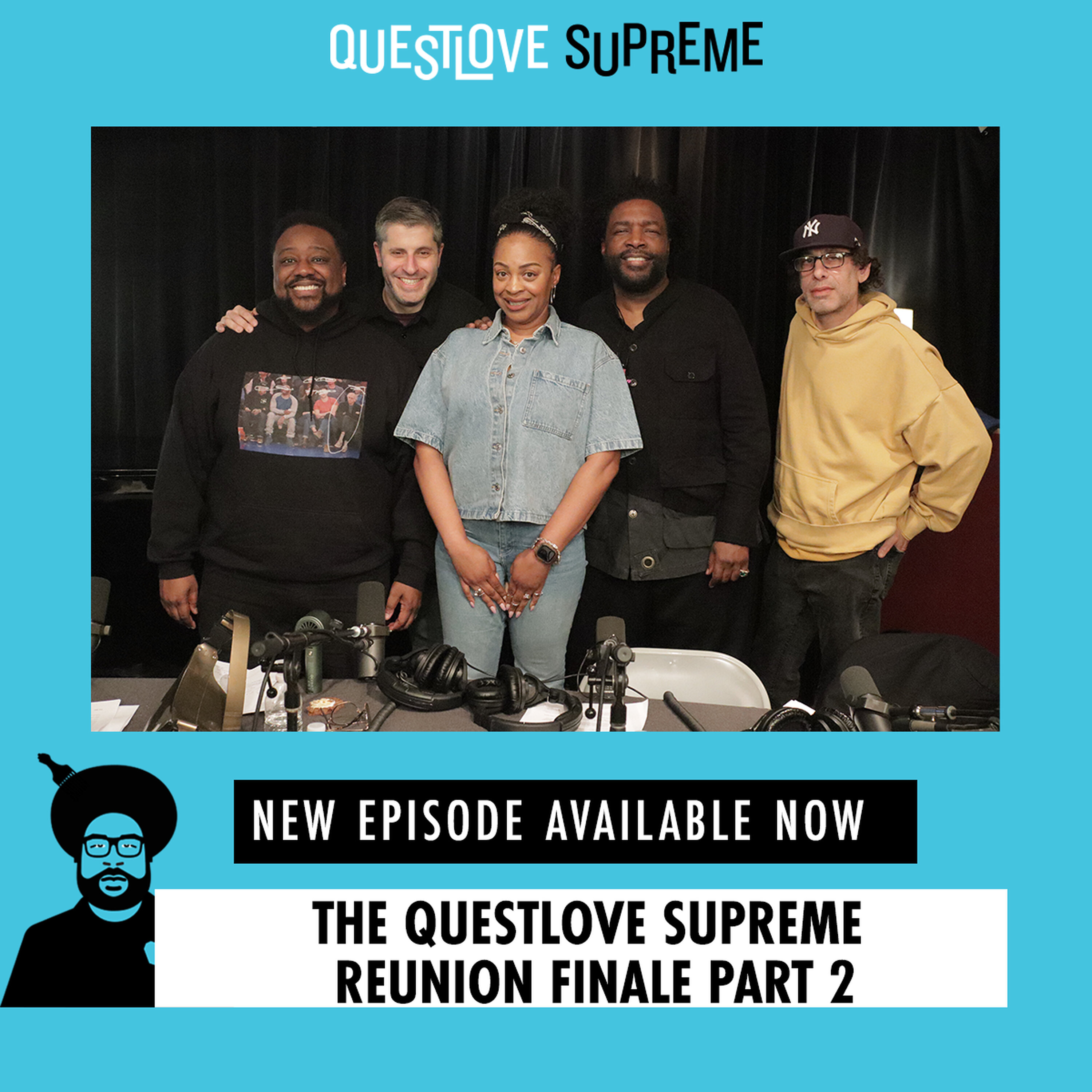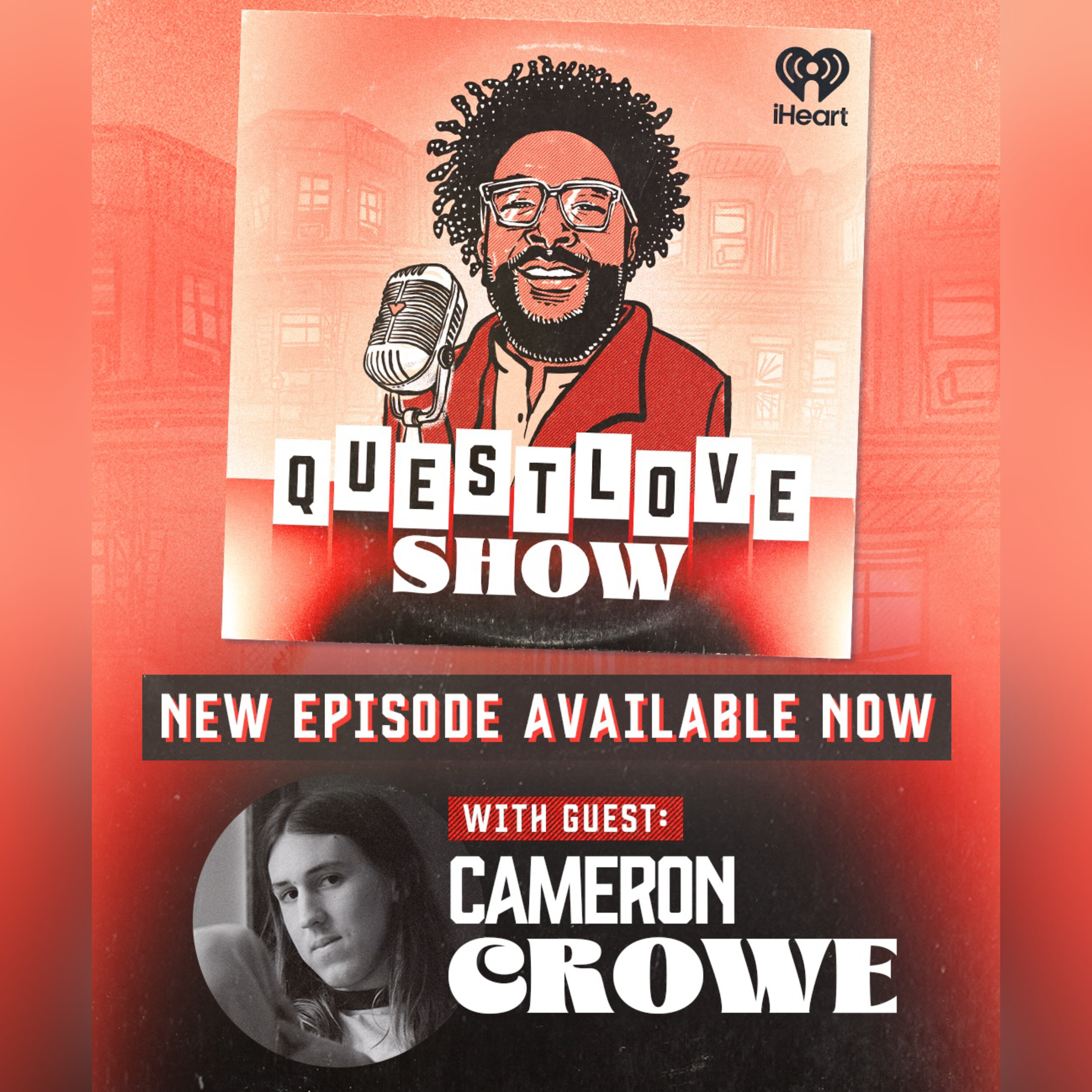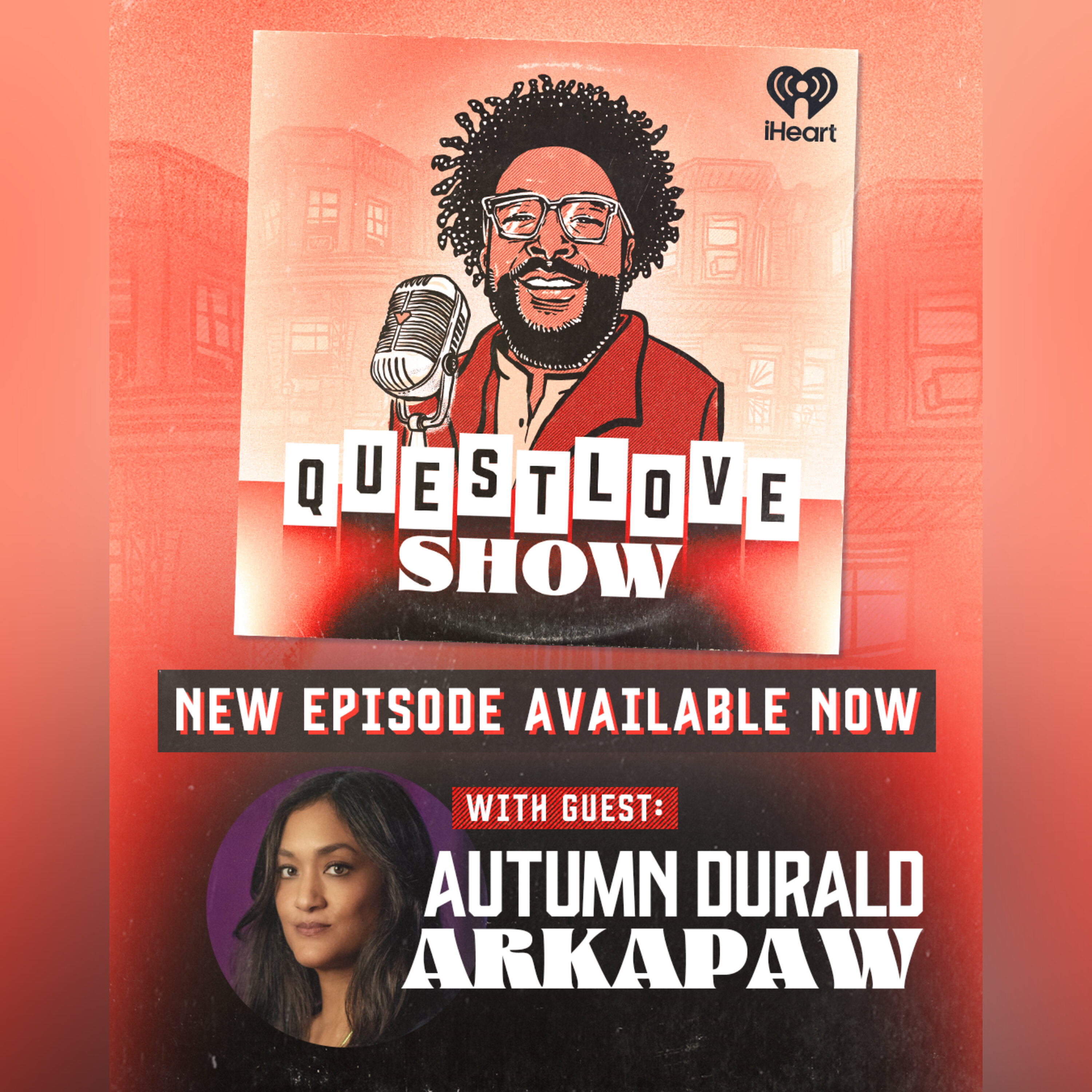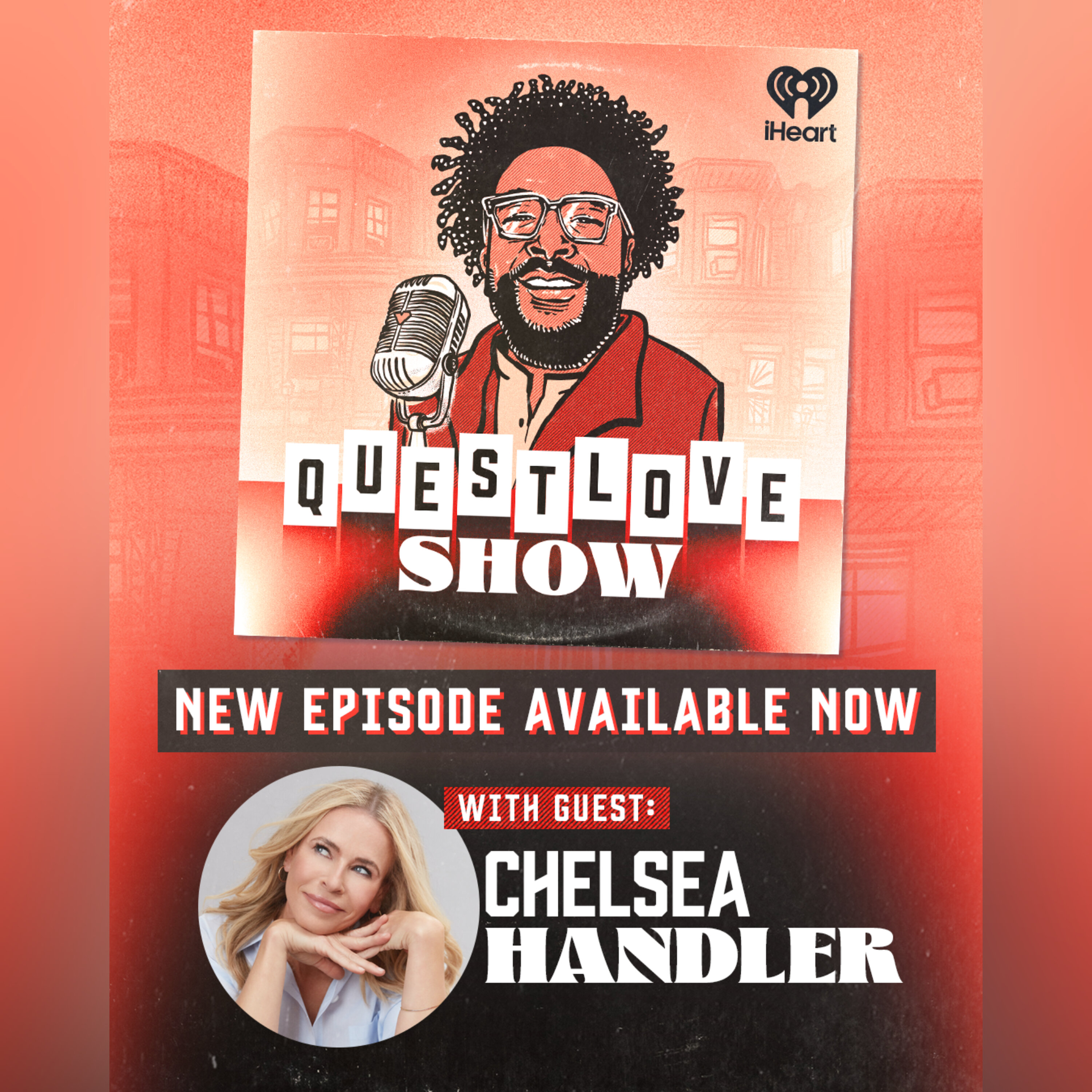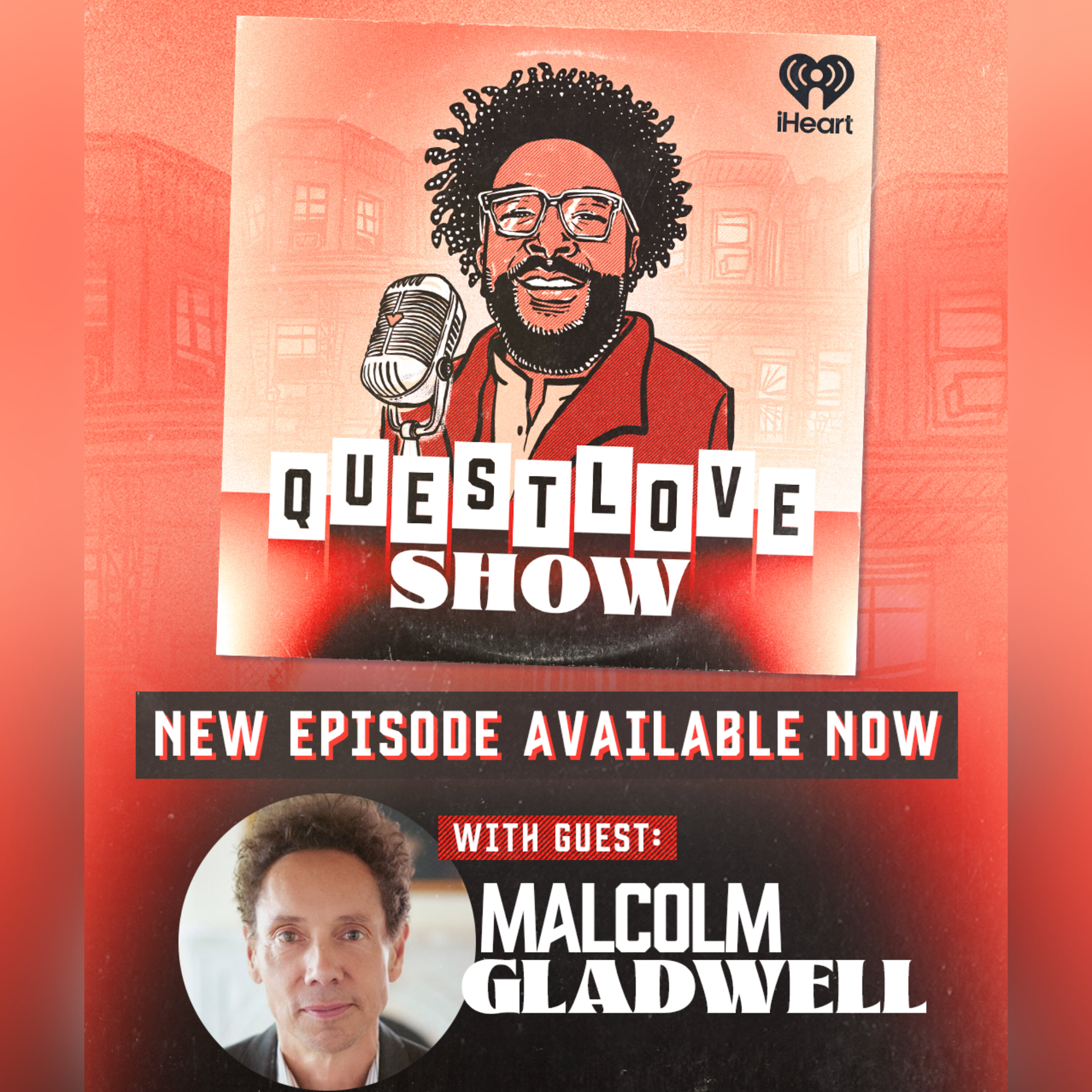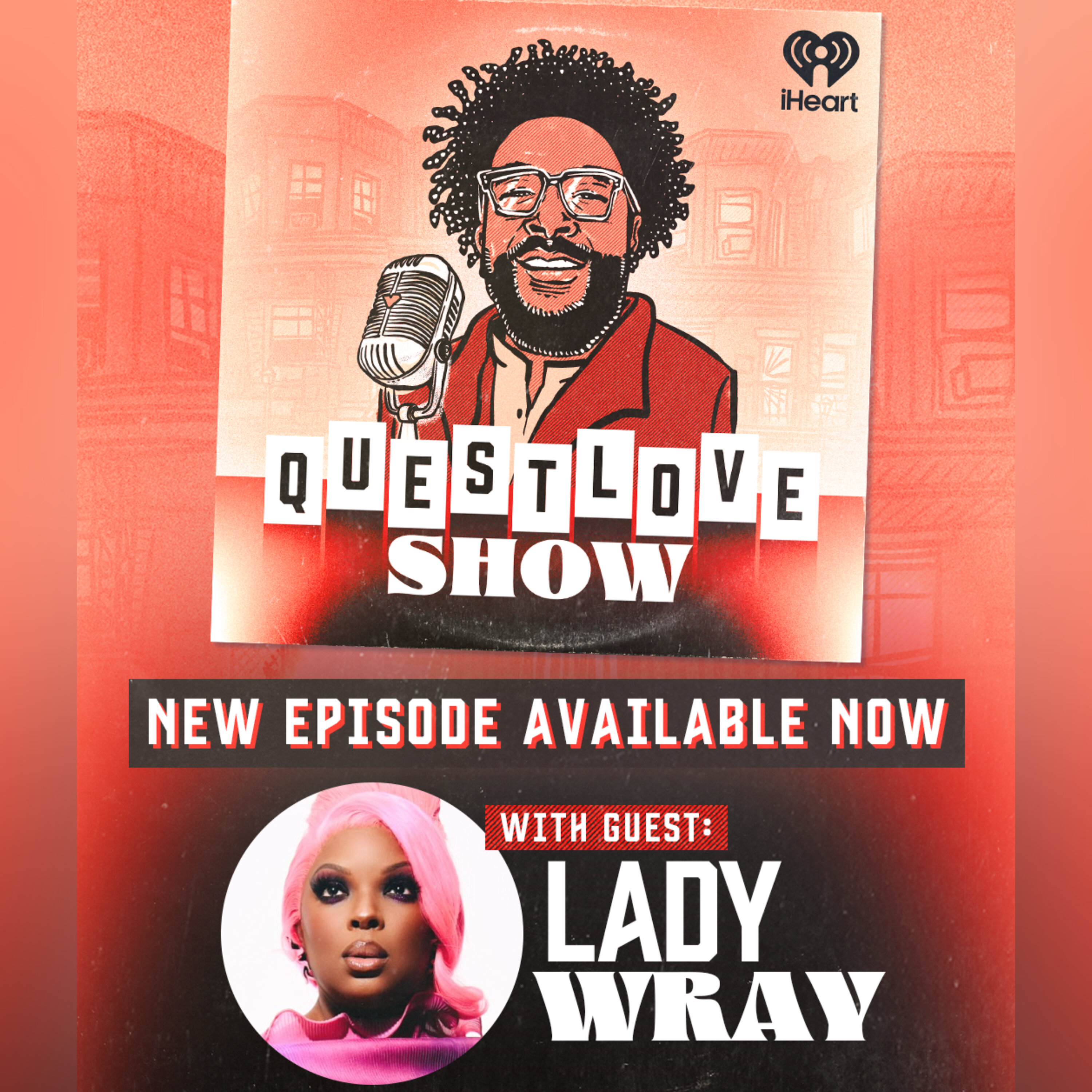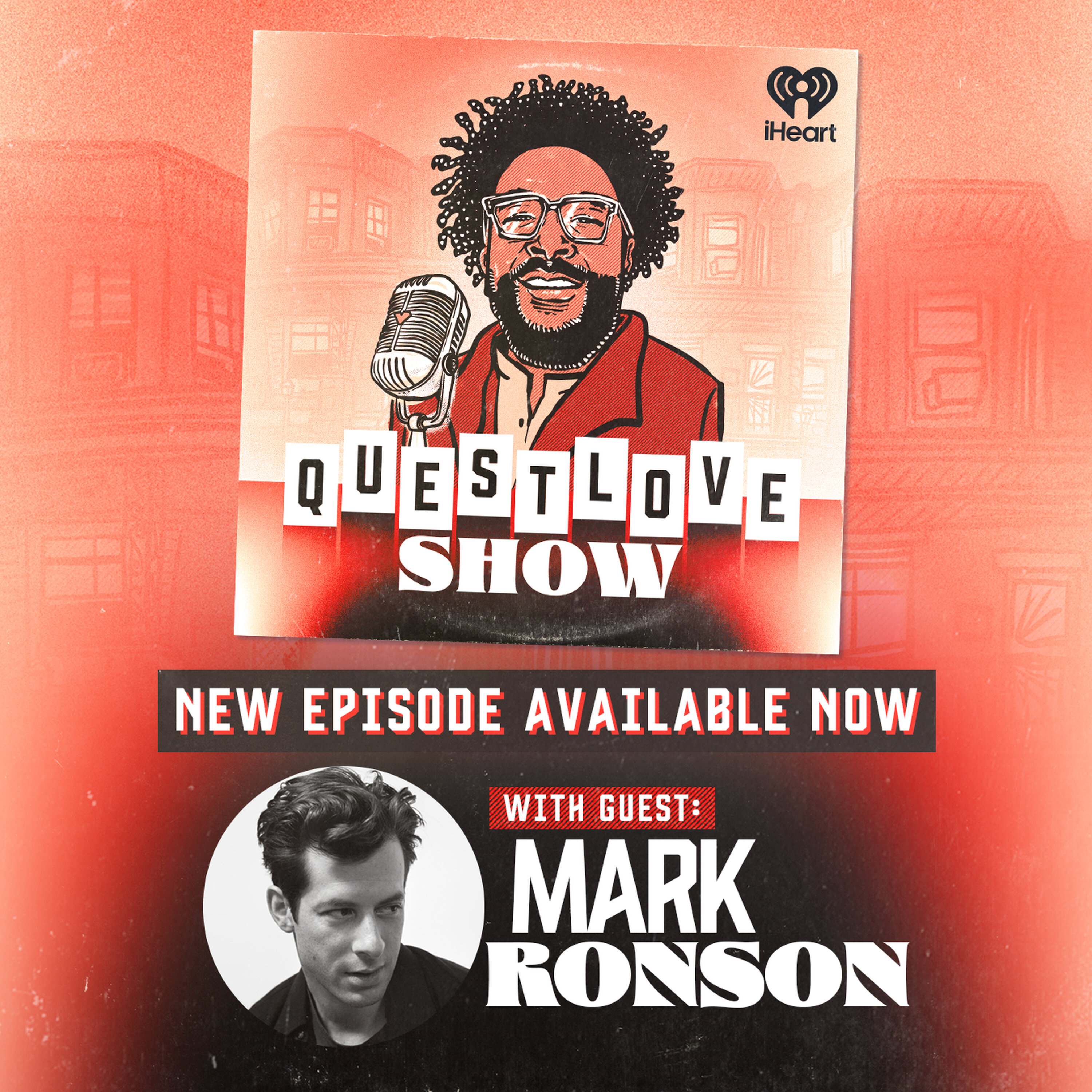Billy Porter Part 2
Billy Porter's raw and uncut appearance on Questlove Supreme continues with Part 2. The musician, actor, and performer who just released Black Mona Lisa, Vol. 2: The Cookout Sessions, opens up about his strong political views and therapeutic journey. Billy explains why he became one of the first celebrities to be transparent and vulnerable with his AIDS diagnosis and treatment. The dynamic guest also speaks about his return to the Kinky Boots stage.
00:00:00
Speaker 1: Quests. Love Supreme is a production of iHeartRadio.
00:00:05
Speaker 2: What y'all, it's Layah and we are so proud to present part two of our recent conversation with Billy Porter.
00:00:11
Speaker 3: Now, before we get.
00:00:12
Speaker 2: To business, please make sure you caught part one because in that episode, Billy speaks about his early days in Pittsburgh, working to prove himself as a singer and an actor, and some of the deep hardships he's overcome. And this conversation is what QLs is all about. Its passionate, knowledgeable, and relatable and we really hope that you enjoy it. Oh and while you're at it, please give QLs a rating or a review or follow and send to a friend, because without you, there is no US. No Seriously, if y'all don't listen, there will be no US. Okay, now seriously, back to Billy Porter. Make sure you mbo bladders and get your tissues. It's about to get real.
00:01:01
Speaker 1: My question to you and hyper aware to not ask you basic questions that you get twenty four to seven. But I am curious because I understand that one of my biggest dismays of the developments in the last four to five years, especially in hip hop is just the rampant amount of ignorance, which really makes me the fool, because if I think about it, it was there all along. But I think I've allowed myself to open my eyes to really see just how immersed in ignorance and misinformation that we are. And my question is, do you feel as a rampant homophobic mistreatment from your own people, from people that are not your people? Do you see progress happening? Or am I just naive with rose colored glasses that I.
00:02:05
Speaker 4: Mean, if I'm being honest, the expansion has been so beautiful to watch, even inside of the pushback.
00:02:15
Speaker 3: You know, my phrase is the change has.
00:02:17
Speaker 4: Already happened, which is why the pushback is so severe. You know, I think that what we as humans fall in the trap of is not focusing on learning history, because history shows us exactly what's happening.
00:02:39
Speaker 3: Right now with this Trump stuff.
00:02:42
Speaker 4: Right history shows us that this is what it will be.
00:02:46
Speaker 3: And every time we're unprepared.
00:02:49
Speaker 4: So until we learn our history and we're prepared for these moments and we're not cut with our pants down, it's gonna be the same. You know, I don't know if you you know, if you read songa hes Coaches book. We were eight years in power.
00:03:05
Speaker 3: That one.
00:03:05
Speaker 4: He predicted this, and nobody wanted to listen, and nobody wanted to hear about it, and nobody wanted to talk about.
00:03:13
Speaker 3: It, not even myself. This came out.
00:03:17
Speaker 4: That book came out right at the top of the second Obama and he said beware in that book. The general part of it was beware because there are repercussions for this that we're not preparing ourselves for. You know, the press still doesn't even know how to cover.
00:03:39
Speaker 5: That bitch, Yes, we will worry.
00:03:41
Speaker 3: Still don't even know how to cover him.
00:03:43
Speaker 4: Eight years later, and these industries are still selling humanity down the river.
00:03:53
Speaker 3: For ratings, for ratings.
00:03:57
Speaker 5: Yeah, you don't know that bitch is a liar man.
00:04:01
Speaker 3: People were fired at the beginning of his presidency.
00:04:05
Speaker 4: Journalists on television were fired for calling him a liar. Every time he opens up his mouth. He's a liar every single time. And so for me to stay positive and stay you know, it's like, well, what do we do. What do we do to make sure that we're engaged? What do we do to stay engaged? I don't even know sometimes how to have the conversation with people who don't vote. I don't know how to have this conversation. You know, it's like it's disingenuous. And it's the way that this even now that it's covered, it's like the press covers this like it's a game show.
00:04:57
Speaker 3: Yeah, like it's a you know.
00:05:01
Speaker 4: It's like you all know that this is not new. Why are you presenting this material like it's not like it's new. None of it is new. Slavery was abolished and Jim Crow happened.
00:05:14
Speaker 2: Yeah, and if certain things happen in November, we will never get that history again.
00:05:19
Speaker 4: It's fine, we're gonna get We're gonna get there. We're gonna get there. But my question is have we learned anything because we got a black president and we sat on our assets for eight years and ain't bomb Box to fix everything.
00:05:32
Speaker 3: What are we gonna do this time with this power?
00:05:35
Speaker 1: I think right now, black people are in a place where they're so exhausted. There's a thing in the gym called Jacob's Ladder, which I hate the most. You know, five minutes on Jacob's Ladder, you're like out, I can't think you know one. And I feel like that's where we are right now even if it's to the detriment of our freedom.
00:05:57
Speaker 3: And what do you think our and what do you think our answers yourself?
00:06:01
Speaker 1: Exactly?
00:06:02
Speaker 4: Who were living on the field? And what if I don't give a fuck?
00:06:06
Speaker 1: Right exactly, I don't give a fuck.
00:06:10
Speaker 4: Keep calling to stay here if you're so fucking exhausted.
00:06:15
Speaker 3: Everybody's exhausted.
00:06:18
Speaker 2: I was exhausted. I was marching against the park tide at six years old. Make make Lukin Day a holiday, and ship it continues.
00:06:26
Speaker 3: Till the day we die. Look at John fucking Lewis from his deathbed. He was working. How selfish that is.
00:06:38
Speaker 2: But I but I will say, Billy, you work a little harder than most. And I'm wondering, friend, when the rest does come? Because to a mirrest point, I do say, you be in the fight a lot.
00:06:50
Speaker 3: You be inough. Here's the thing.
00:06:52
Speaker 4: I have a song called I Can't Sing this song again, and it's in and it's in response to a change is going to come.
00:07:01
Speaker 3: And here's what I think the issue is.
00:07:04
Speaker 1: Is it an answer to that?
00:07:06
Speaker 3: Yes, I can't sing this song again.
00:07:09
Speaker 4: I'm debuting it at Nancy Pelosi's luncheon and it starts with a little bit of a recording of A Change is Gonna come, and then it's like and then it goes into this.
00:07:22
Speaker 3: A change is gonna come. And the rhetoric that.
00:07:25
Speaker 4: We've learned for all of these years has led us to believe that we wait your turn, and we arrive somewhere. We arrived somewhere, and it's over. That is the sentiment of that song. To me, that is the sentiment of the of the civil rights movement. I don't think that it was on purpose, but I know for myself and I talk about Obama, it's like, oh okay, civil rights, Oh okay, gay rights, Okay, we win. You know, marriage equality, okay, we win. You know, abortion rights, Okay, we win. It's like you don't arrive and the I say fight. I wish there was another word for it. The expansion, the involvement, the engagement.
00:08:23
Speaker 3: That's what I'm looking for.
00:08:26
Speaker 4: The engagement of the people can never wane.
00:08:31
Speaker 3: So if we know that going in, if we know that.
00:08:37
Speaker 4: It's a fight until we die, then we approach it differently.
00:08:43
Speaker 3: Then we go, Okay, I need to take a.
00:08:45
Speaker 4: Break right now, Okay, self, care for myself and I and I'll come back and so that we can, you know, like like staggered breathing when you sang in the choir and you had to hold a note for a really long time.
00:08:57
Speaker 3: And some people take a break and some people. You know, it's like da, you know.
00:09:02
Speaker 4: And I think our messaging, the messaging for years at least for me, is what I'm finding, and as I dissect it and try to figure out how like, oh, we think we arrived, so it never arrives.
00:09:16
Speaker 1: I'm guilty of that. You remember, like November of two thousand and eight, like we were all singing our version of can you see a brand New Day or whatever?
00:09:30
Speaker 3: And that's okay.
00:09:31
Speaker 1: For a week, I actually felt like I arrived in this utopian What we are basically saying is like we would like to experience not what whiteness feels like, but just the feeling of that level of.
00:09:46
Speaker 3: Freedom, freedom, faifety, safety.
00:09:51
Speaker 1: And then by year two, once the unarmed shooting period started, and then I was like, oh fuck, this is this is going back to the seventies, and now we're in the forties, the eighteen forties.
00:10:05
Speaker 4: Because our founding fathers, who everybody likes to hold up on a pedestal so much she she she's fucking racist slave owners who built this country.
00:10:20
Speaker 1: On that yes.
00:10:23
Speaker 4: Period, the caveats, you know, the thing that I've learned recently and just looking at how it all goes, it's like, so, wait, you mean to tell me that there's no oversight for stotus.
00:10:38
Speaker 3: That's on purpose, that's on purpose.
00:10:41
Speaker 4: If you can find the easter eggs in these documents, white men, you will be able to be in power forever minority or not. What do you mean there are no term limits? What do you mean there are no termlinits? That means that the same old white people can stay in offense, It's like, what do you mean? The peaceful transition of power is not a fucking law?
00:11:15
Speaker 3: What are you talking about?
00:11:18
Speaker 4: It's just the unfolding and the unpeeling of the It's like, so what is it?
00:11:24
Speaker 3: For real?
00:11:25
Speaker 4: And I think that's where we are and what I'm happy about and what I'm pleased about, you know, because of course when they go low, we go high, of course, and because I'm over there again, we have to figure out what going high looks like in this new world or that's what we have to do.
00:11:45
Speaker 3: And we have finally found it. And her name is fucking Kamala, that's her name. I want.
00:11:53
Speaker 4: How to be in the games that we're in, not the game that we wish it would be, not the game that it should be, but the game.
00:12:01
Speaker 3: That we're in. We have to be in this and she is.
00:12:05
Speaker 4: The person for the moment, for since moment, she has risen to the occasion.
00:12:11
Speaker 2: She knows how to clop that and not just because what she looks like, because of what she's done.
00:12:18
Speaker 5: Yes, she does, Yes.
00:12:20
Speaker 4: Has run rampant all over the world for eight fucking years because everybody so oh and bipartisan, and that's not how they're playing, That's.
00:12:31
Speaker 3: Not what they're playing. That's not the game.
00:12:33
Speaker 4: We haven't been in the game for eight years.
00:12:40
Speaker 2: So, Billy, how does it feel now that your voice matters to this whole other world in that way? You said you're going to be at the DNC. You've been at the White House multiple times. You know, what does it feel like to be this activist of sorts? Activists no sorts?
00:12:55
Speaker 5: My bad, I.
00:12:58
Speaker 4: Don't know anything else. Once again, I'm a black saget in America.
00:13:03
Speaker 3: I have to fight. I don't have a choice, and I have to fight against my own people.
00:13:08
Speaker 1: Half the time, half.
00:13:12
Speaker 4: Against my own people all the time. I don't know if you saw all that bullshit on June.
00:13:17
Speaker 5: Teenths what what happened?
00:13:21
Speaker 3: So?
00:13:21
Speaker 4: I was at the White House on June teenth in the morning, right, and you know, on the dais talking about solutions at the White House, right, inviting, right, go to the Juneteenth concert.
00:13:38
Speaker 3: I show up. I'm on the front row.
00:13:41
Speaker 4: It's me, the second gentleman, the vice president, the president, front row. M The next day they start dragging Joe. He's losing his mind because he was There was a picture caught of him.
00:13:58
Speaker 1: Like, oh yeah, he was listening to Patti LaBelle.
00:14:03
Speaker 4: He was watching Patty Labelle's sing a song and she hid a note and held it like she was twenty years old. And the whole audience was like, right, that's the fucking picture you saw. That's how they've been dragging him. There's nothing wrong.
00:14:20
Speaker 1: With him, have them knowing said that?
00:14:22
Speaker 4: I remember, Oh, and yes, but he's not, you know, just like when he was trailing off.
00:14:30
Speaker 3: Remember when he was trailing.
00:14:32
Speaker 1: Off and they were like right, and then.
00:14:35
Speaker 4: Camera and he's talking to twenty mapel over there right now. The press has done this.
00:14:42
Speaker 3: To the world for their ratings.
00:14:46
Speaker 4: So the next photo that I see coming up on my feet is me greeting the president by kissing his hand across the second gentleman across the Now they run that photo mm hmm with me next to a drawing of a slave kissing Abraham Lincoln's boom.
00:15:09
Speaker 3: That's oh title. Oh, I guess we're in a Jordan Peele movie. Now.
00:15:16
Speaker 5: Now when you say they, you're saying the black prints.
00:15:17
Speaker 3: You're saying, yes, somebody black did it, Okay.
00:15:22
Speaker 5: But you know we're not a monoligue movie.
00:15:24
Speaker 3: No I know, no, no, no, no, that's what I'm saying. Some black people, not everybody. But I have to fight that side a lot.
00:15:32
Speaker 4: And what I said, and I looked at it, and you know my motto is, I do not now, nor will I ever adjudicate my life for humanity and sound bites on social media.
00:15:41
Speaker 3: I will never do it. There is no response to shit like that for me.
00:15:46
Speaker 4: However, as I was dissecting it, I'm like, so, what are you saying? What are y'all trying to say? Because at the time that this photo was, that this drawing was drawn, the president at that time freed the slaves. We didn't have the three hundred years later. In that moment, he was thinking the man who freed him, Oh, in that drum, just as I was thinking, the man who we dragged out of retirement to save democracy. I will kiss that white man's hand until I go to the goddamn grave.
00:16:27
Speaker 3: What are you saying? What are y'all saying?
00:16:31
Speaker 5: Who cares? I actually lost in the room.
00:16:33
Speaker 4: Talking about solutions at the White House, and y'all over here clowning on the internet.
00:16:38
Speaker 3: That's the fucking problem.
00:16:39
Speaker 5: Man, that's just static though it is.
00:16:43
Speaker 4: But what but but what's really happening which no one will talk about but me.
00:16:50
Speaker 3: Is I was also in a multi colored caf taine address on the front row.
00:16:57
Speaker 5: Okay, okay, I'm a black, embarrassing faggot.
00:17:02
Speaker 3: That's who I am. So you're not. So it's actually not about that at all.
00:17:07
Speaker 5: No, No, you're about.
00:17:09
Speaker 4: I was never supposed to be elevated to the highest levels like that, right, I'm supposed to stay silent in a closet somewhere.
00:17:18
Speaker 2: But it's certain things that we really know in our community, right and others don't.
00:17:23
Speaker 4: And so my whole life, yeah, it's my whole life. People, with my family at the time, not anymore, but like you know, my community, they would rather be a serial killer than a fact that's more acceptable.
00:17:39
Speaker 1: How were you able to reach your family in terms of I left, Oh.
00:17:48
Speaker 4: I left and they came back the mischief?
00:17:53
Speaker 1: I left and they come back because you made it? Or did they come back because like some of.
00:17:57
Speaker 4: Them, some of them was before that. A lot of them were before that. My family was before that. You know, the church community that I grew up with, it.
00:18:08
Speaker 3: Was post same.
00:18:11
Speaker 4: I'm like, you're so transparent, you know, but it's you know, it's also interesting to talking about a certain group of black people.
00:18:20
Speaker 3: So during the George Floyd and.
00:18:22
Speaker 4: All of that stuff, you know, I got on line because here we were marching, and then I turned on my social media and a bunch of black people are beating up a trans girls in the seven eleven. You want to know why we don't have rights? This is why we don't have our rights. Until we do right by everybody, we will have nothing. Nobody's free till we're all free.
00:18:50
Speaker 3: Fuck y'all. You want to know why this is?
00:18:54
Speaker 2: Why do you think that that's something that should be handled within our community, or do you think that.
00:19:00
Speaker 4: I do too, and I'm the one who's saying that, and they dragged me to hell for it. I don't give a fuck. It's the truth. Mind your own damn business if you don't like it.
00:19:13
Speaker 5: You never had no fear of telling your truth?
00:19:16
Speaker 2: Have you always been this out loud? Which which the way you feel? It's my mother even I'm talking about TV, because you know when you go to Hollywood, and I mean, I tease me about it, but.
00:19:26
Speaker 4: My mother was like that, there are consequences, Yes, there are consequences.
00:19:32
Speaker 3: I suffer consequences. You know. It's like they've let the queens in. They've let us in a little bit.
00:19:41
Speaker 1: M hm.
00:19:42
Speaker 4: But the ones who are getting Marvel movies and shit don't talk.
00:19:47
Speaker 2: You're in Ryan Murphy world. So even that in itself is beautiful. But he's an out louder certain in his own way.
00:19:53
Speaker 3: So he's also a white man.
00:19:56
Speaker 2: I love him, Billy, And you know that straight people, do you not understand the happenings and the goings ons and the queer world with race in that way? Like you even saying that out loud, people are like they they're good.
00:20:09
Speaker 1: He gave you gay is good.
00:20:10
Speaker 3: You know, it's different.
00:20:12
Speaker 5: It's different.
00:20:13
Speaker 4: It's different, and I and you know, stand for something or you'll fall for anything.
00:20:20
Speaker 3: M h.
00:20:21
Speaker 4: I will go to my grades standing for the things that I believe in, even if that means whatever that means for my career, whatever it means, because it's more important for me to do that. I'm a human being first, and I engage in the world as a human being, and you will respect me as a human being or get the fuck.
00:20:49
Speaker 3: Out of my way, yo.
00:20:51
Speaker 2: Talk Can you talk about real quick when you were asked to be in the Little Richard Project? I am everything in the first what you felt and what you saw when you saw, what you felt when you saw the finished product.
00:21:02
Speaker 5: Because as you're.
00:21:03
Speaker 2: Speaking, I'm thinking of him, and I'm just it's not a lot of people who can live out loud and chose to live out loud and then came back and it's a choice.
00:21:11
Speaker 3: Yeah, And like I said, there are consequences that come along with it, y'all. There are you know there are. It's okay, Okay, I'm not changing, I've never changed.
00:21:28
Speaker 5: Can we still get our James Waltwin? Can we say yes, of course? Okay, thank you?
00:21:31
Speaker 4: Okay of course, you know, but we got to get a greenlet. Okay, you know, there's a whole world right now. It's like all of the fallout from the strike. Yeah, you know, we're forty four, forty six percent back, forty six maybe forty six percent back, you know.
00:21:50
Speaker 3: And I breathed rarefied there. Don't think I don't know that.
00:21:55
Speaker 4: You know, film and television has dried up a bit for me in this moment, a bit, not completely, but a bit.
00:22:03
Speaker 3: I get to go and be in a broadma show. Who gets to do that?
00:22:07
Speaker 4: Y'all want to clown and call it me corny, But I get to still work in the business that I love because of this multi hyphenated human being that I am so like.
00:22:22
Speaker 3: I don't know. I feel for.
00:22:26
Speaker 4: The first time in a long time that I can take a breath.
00:22:32
Speaker 5: Reez, you deserve it.
00:22:34
Speaker 1: And are you scared to take a breath because I know that you feel you have to be on guard? Twenty four seven? Yeah, what is taking a breath? I never believed in vacations until vacation last year.
00:22:49
Speaker 5: Fifty you here, fifty.
00:22:52
Speaker 1: I took a vacation in twenty fifteen. I did no, I.
00:22:57
Speaker 5: Did it wasn't a wedding, you weren't, Okay.
00:23:00
Speaker 3: I never took a vacation either, vacation naps. Yes, I never took naps. Shout out. If I get.
00:23:12
Speaker 4: To a place where it's too much, I'll lay right in my bed for two hours, like.
00:23:18
Speaker 3: I got to check out. You know. That's self care for me. I do my morning pages pretty.
00:23:25
Speaker 1: Much every morning, affirmations or well you write.
00:23:31
Speaker 4: Yeah, it comes from a book called the Artist's Way.
00:23:33
Speaker 6: I know, well, artists Way Way, and and I did it thirty years ago, and I've been doing it every ten years to just sort of research on myself.
00:23:44
Speaker 4: And I do those artists pages, and that's my that's my daily meditation because they're supposed to be blurts essentially, You're just supposed to write.
00:23:53
Speaker 3: It a long hand.
00:23:54
Speaker 4: But I've been doing it so long that I type them now. But it's like, got to meditate for me in the morning. And I always feel better when I when I do that. Since Mom passed, I am trying my hand at Buddhism. Okay, I haven't been able to find a consistency in it yet, but my heart is there, and so I'm working towards it.
00:24:20
Speaker 3: I'm also meditating.
00:24:22
Speaker 4: You know, when I feel overwhelmed, I'll just sit down and breathe and medicine and it's it's useful, it's helpful.
00:24:30
Speaker 1: Was that really poortant?
00:24:31
Speaker 3: All right? Yeah?
00:24:33
Speaker 4: No, you know, because I can't sanity's importance. I can't be of use if I'm insane. Yeah, And I was put on this planet to be of use. I want to continue to be of use. And like you said, the activist part, I am. You know, I came out in nineteen eighty five. We went straight to the front lines to fight for our lives during the age crisis.
00:24:57
Speaker 3: I don't know anything else. I don't know anything else.
00:25:00
Speaker 5: Can you pause here and it can?
00:25:01
Speaker 2: I just tell you I appreciate your truth in that, and I just want to tell you also, I was very excited to talk to you for all the reasons because, like I said, all the things I've watched you, I've listened and everything. But most importantly, I was excited to talk to you because you live in your truth about status. And somebody very important to me has been living with this for twenty five thirty years, successfully beautifully living life out loud, and I can't wait for her to tell the world. But you, my friend, I was just in marvel of you living your truth and saying that out loud. And I can't wait, like I can't wait for her to do the same thing. But I just I want to thank you for that, because Billy, Billy.
00:25:40
Speaker 3: You're welcome.
00:25:42
Speaker 4: The thing about this business and the thing that I'm also grateful for that it took so long, Right, Why is it take it so long?
00:25:49
Speaker 3: It took so long because I had to be ready.
00:25:53
Speaker 4: It took so long because I had to live a life where I could shoulder all of this stuff that I need to shoulder. I know what I represent, I know why I'm here. I can't do what I do unless I know it. You know, I was watching Oprah at one point a long time ago. I don't know if y'all remember, but like one year after, about ten or twelve years or something, maybe fifteen, she came on and she said, I'm not doing any of that shop talk anymore.
00:26:27
Speaker 3: She didn't, and.
00:26:28
Speaker 4: Something dropped and she said, live your best life, and she turned into that person. You have to know what the purpose is so that you can sit in the fullness of it.
00:26:41
Speaker 3: I know what my power is. I know what my purpose is, and.
00:26:44
Speaker 4: I'm just grateful now that people are finally understanding it and seeing it. I had to come out as HIV positive to the world because I had to take the power away from the gotcha, gotcha press.
00:26:59
Speaker 3: Nobody had anything on me because I said it first. Now what right?
00:27:07
Speaker 5: This is a conversation I've been waiting for. Yes, yes, yes, I said it first.
00:27:11
Speaker 3: Yes, So there's no there's full transparency with me.
00:27:18
Speaker 4: And my life on purpose because people need to see all of it, the successes, the disappointments, the failures, the flaws, all of it. Jesus was not perfect. You know, we make dities out of people. We forget these people were human. Martin Luther King Jr.
00:27:41
Speaker 3: Was human. He cheated on his wife like a lot of men do. He exact a dity. He was a human being.
00:27:51
Speaker 4: That's what makes it better because we're all human, and so when you can relate to somebody's humanity, then you can see, Oh, it's not over because I made it. It's not over because this didn't work out. I keep going, that person kept going, Yeah, you know, that's why I throw my hands up at the house. Yeah, I throw my hands up with my friends. I called my sister screaming and cried. You know, I don't throw my hands up for real, right, you know, Like that's the self care part too. The care part is me being able to call my sister and throw a fucking temper potential.
00:28:26
Speaker 2: Hell yeah, are you know, in the sense of the community, do you have a lot of kids?
00:28:31
Speaker 1: I feel like, well, I'm just gonna ask, like, are you fighting this battle isolated or do you have a community of people that you have in your corner or is.
00:28:46
Speaker 3: It there is a community that I'm a part of.
00:28:49
Speaker 4: And I'm so grateful before I talk about Broadway Cares, Equity Fights AIDS, you know, they they they were birthed out of the age crisis, and when I moved to New York City in nineteen ninety, they were just beginning and they taught an entire generation of us, a theater artist in particular, how to activate, you know. And so I've been a part of that community since I got here, and it's a large, far.
00:29:19
Speaker 3: Reaching activist community.
00:29:23
Speaker 4: So that's where I started, and I've picked up a lot of different people along the way. I have to be cognizant to not isolate, Okay.
00:29:35
Speaker 1: Do you tend to shut down and shut in. And I'm going through something.
00:29:41
Speaker 4: If I'm having a you know, a problem or an issue or you know, I will isolate, you know, like even with my mom passing in February.
00:29:51
Speaker 3: You know, it's like my friends.
00:29:54
Speaker 5: Are finally like, girl, come outside.
00:29:58
Speaker 4: Why haven't you come outside? Why haven't you called?
00:30:03
Speaker 3: You know, they call and check on me. They're like, we know you're isolating. Come out, come out, come out, you know.
00:30:09
Speaker 4: Because I get in a place where I feel like I don't want to be a burden. And so much of my trauma and what I deal with in my life has existed for so long and I continue to work through it and I continue to become a better person. But I feel like sometimes the people who've been in my life for thirty years plus, I'm.
00:30:34
Speaker 3: Like, y'all are tired of it. Yeah, I feel like y'all are tired of it. You know, I would never be tired of it.
00:30:40
Speaker 4: So I don't understand why I put that on other people, but like they have to be tired of this now, you know.
00:30:47
Speaker 3: So I have to work on that, you know.
00:30:49
Speaker 4: I have to work on like making sure that I reach out when I don't feel good and ask for help when I don't feel great.
00:30:59
Speaker 3: I have to do that on my own.
00:31:00
Speaker 5: You have to let others pour into you, because you are always pouring into others during COVID.
00:31:07
Speaker 4: My trauma therapist, you know, because I suffered, you know, sexual abuse at the hands of my stepfather from the time I was seven to the time I was twelve. It's in the book I talked about, you know, like there's a lot of trauma. Lot, there's a lot, a lot of trauma. And you know, I say, the world stopped so that I could begin a real journey towards healing my trauma. And the first thing that my trauma therapist and I and I have to say, you know, the mental health profession and what and the strides and what is available for us to deal with our mental health blows my mind. It blows my mind. And she said, your biggest problem is that you have no self compassion.
00:31:56
Speaker 1: But everybody else that's a lot of us.
00:31:58
Speaker 3: Yes, that's the truth. That's the first three months, Oh God of work.
00:32:04
Speaker 4: I did four hours a week for about two years. It went down to two hours at about a year and three months. But the first thing she said was you have no self compassion and we have to work, I mean exercises.
00:32:19
Speaker 3: I had to listen to people talk about self compassion.
00:32:22
Speaker 4: In by ear and I have to go back to it even now today I have to remind myself, Oh, that's my non self compassion person talking.
00:32:35
Speaker 1: So this is what I want to know, because this is the question I asked myself. You know in twenty twenty one when Biden came into office and with the quick fast that you know, you saw how vigilant and fast the government was to respond to the global health crisis in a second. And when the numbers went down, I was thinking to myself, I'm like, wow, Like, why didn't this happened in the eighties when HIV was was was killed. Of course, I know what the answer is, I want to ask you.
00:33:11
Speaker 4: And it didn't happen with the last administration. Reagan and Trump are the same person.
00:33:18
Speaker 1: I get it.
00:33:19
Speaker 4: Reagan had a better suit and knew not to say the quiet part out loud. Sorry, sorry, Nicole Wallace. And when I see you, I'm gonna talk to you about that. Sorry, and she will take me your worshiping of Reagan.
00:33:34
Speaker 3: Sorry, David Jolly, Sorry, Yes, nobody, but y'all he wasn't good for nobody, but y'all, my people.
00:33:45
Speaker 1: Where are we now in terms of our relationship with HIV with the fight against the virus spreading, Like in terms of.
00:33:56
Speaker 3: HIV is manageable?
00:33:58
Speaker 4: The medication I take makes my T cells about one hundred to two hundred points higher than any of you.
00:34:07
Speaker 5: You're non detective, undetectable.
00:34:09
Speaker 4: Undetectable, but like, my T cell count is so high, I'm like the bionic man.
00:34:15
Speaker 5: Oh that's the shit. They ain't got a commercial for it in Billy. That's something I ain't got a commercial.
00:34:18
Speaker 3: I've been trying to get a commercial for these.
00:34:20
Speaker 2: Those HIV mens usually have crazy side effects, like so now you got to be on a high cholesterol medicine or diabetes or yes, and you know.
00:34:29
Speaker 3: I literally just went on cholesterol.
00:34:32
Speaker 4: Medication to low dose because it's now recommended for people that it's not beat my cholesterol's time. But you know, when you do, when you have these preventative measures, you live longer. That's why we're always fighting for It's not about once you're sick. It's about being able to understand before you get sick.
00:34:54
Speaker 1: And how accessible is it as far as.
00:34:59
Speaker 5: To us, what's that? Who's us?
00:35:02
Speaker 4: It's accessible to Americans, It's accessible to people who have medical insurance. It's accessible to people who live in cities who have programs like a DAT Because when I was diagnosed, I didn't have a job, I didn't have medical insurance, I didn't have anything. New York City had had adapt They paid for my medications. The actors fun broughtway cares, they stepped in, they made sure I was taking care of. So, you know, I'm one of the lucky ones. I'm one of the blessed ones.
00:35:35
Speaker 3: You know. I know there are communities that do not have this access.
00:35:39
Speaker 5: Yeah, oh oh, well that too.
00:35:42
Speaker 3: There are communities that don't have this access.
00:35:45
Speaker 4: I exist in communities that do, and I always try to make sure that I'm contributing and speaking.
00:35:54
Speaker 3: And I'm diabetic because my family, yeah, you know. And the gift of that is I'm not the doctor every three months.
00:36:06
Speaker 4: I'm a black, fifty five year old man who goes to the doctor every three months.
00:36:11
Speaker 3: Oh that is a blessing. That was the gift. Because if I didn't have these issues.
00:36:19
Speaker 4: I would probably be less healthy than I am right now, because I would never go to the doctor if I did.
00:36:25
Speaker 5: Not, black man, what is that? But y'all, I don't get it. But that's okay.
00:36:30
Speaker 7: It's a certain thing, yo.
00:36:34
Speaker 3: I'll be.
00:36:36
Speaker 1: People that still believe in doctors.
00:36:38
Speaker 4: I got this two weeks ago to monitor my sugar. I got this two weeks ago to monitor my sugar. It took me two weeks. I just put it on today. It took me two weeks to just.
00:36:48
Speaker 1: Get Yeah, like until I came to tonight show Awesome look for real. Zara was shocked. She's like, when's the last time he'd been to the dinner And I was like, dog nineteen seventy nine, like when I was eight.
00:37:05
Speaker 2: Well, dental is the hardest insurance too, So shout out to the elders.
00:37:08
Speaker 3: Ain't no assurance, Ain't you just go pay for it? I didn't even know.
00:37:13
Speaker 4: My assistant was like, you know, you could pay for some of this with your assurance. I said, y'ad, I put it through because the last time I had an assurance, they just paid for cleanics and that was it.
00:37:25
Speaker 5: Right right right, Oh, I'm going through it right now.
00:37:27
Speaker 2: I don't have a whole two bus billy, do you wish for us? To talk about hiva. A's like we kind of do diabetes and how you know, perrymenopause is.
00:37:34
Speaker 5: Kind of thing.
00:37:36
Speaker 2: I feel like people still feel an uncomfortability, especially Yeah, yeah.
00:37:41
Speaker 4: Which is why I came out on the Hollywood Reporter to talk about it. Okay, and there's probably not a day goes by that somebody stops me and says, sake, thank you for saying it, thank you for stamping for us, thank you for that, and.
00:38:01
Speaker 2: Thank you, and also thank you because, like I said, I'm a stand thank you for doing polls.
00:38:05
Speaker 5: And reliving that shit all over again. I was like, Billy is the.
00:38:09
Speaker 2: Oldest person probably on this cast, and he's reliving the eighties all over again. That's got to be traumatizing as fuck.
00:38:16
Speaker 3: Thank you for understanding that.
00:38:18
Speaker 4: And I didn't get it until COVID and my now ex husband called me.
00:38:26
Speaker 3: A what is that not? A character actor?
00:38:31
Speaker 4: Athan called me a method actor and I was like, I'm a method actor. He's like, you're a little bit of a method actor. And I didn't really receive it until the COVID break.
00:38:46
Speaker 3: We were in the middle of.
00:38:48
Speaker 4: Filming episode one of season three and then we were shut down and we went home for nine months, and during the trauma therapy, I realized, oh shit.
00:39:03
Speaker 5: Yes, like, what are you doing?
00:39:04
Speaker 3: What are you doing?
00:39:06
Speaker 4: I was so excited that somebody was taking me seriously as an actor.
00:39:12
Speaker 1: Yeah, I get it that.
00:39:14
Speaker 4: I didn't realize that literally every day I went into work, I was re traumatizing every day.
00:39:23
Speaker 1: How did you process it?
00:39:24
Speaker 3: Then? I wasn't processing in the moment, That's the issue.
00:39:28
Speaker 4: I was just happy to be working, but I was carrying it with me, and I was bringing it home and not really knowing that I was bringing home right, and not really understanding why there was a depress. There was a low grade depression that I couldn't shake, and all of that stuff. And so then when I went back, I said, you get three takes. Set these cameras up, capture this performance. Man, I'm gonna give you everything, but I only have three of them in me. I can't keep going and going and going, you know, Like the episode season two, I was sick in the bed in a hospital bed for like two episodes, and I forgot that I've never left the band all day. I would make him bring lunch to me, bring me the food, bring me the food I need to stay in it.
00:40:26
Speaker 3: And I'm like, that's the method actor. No, a mirror he was.
00:40:32
Speaker 5: It was like an altar.
00:40:34
Speaker 1: Okay, So I know an actor who almost ruined his relationship because he did a method role and didn't go through the ritual process of getting rid of it. There's a very specific process this actor goes through to get rid of a character. But because another project was like right around the corner, this actor didn't take the necessary eight weeks to do the thing that has to be done to get rid of the character and almost ruined his marriage and his family and everything. When you were finally finished with post, was there a ritual that you had to do in order to get rid of the character? Or like, what, how do you? How did you let it go? How did you?
00:41:29
Speaker 3: I don't know that it's a ritual. It wasn't. It's not a ritual for me. You just let it go. I just let it go. I didn't do anything ritualistic to let it go. It was just over.
00:41:41
Speaker 4: So if you're not there doing it every day, it's over and to me, for me, and so it slowly dissipates and it's slowly gone.
00:41:49
Speaker 3: You know. I will say I didn't watch it.
00:41:52
Speaker 4: I mean I watched the first run when it happened, but I didn't return to it till like six months.
00:41:59
Speaker 3: Ago, and I had to go watch it for that. I am enough space that I needed to get into.
00:42:07
Speaker 1: So what was the process like reliving watching it through the new filtered Well, I had.
00:42:14
Speaker 4: Enough distance from it to understand my own power. I had enough distance from it to watch it and be able to you know, and be able to go, oh no. I deserve that because I went through a space where I had like, oh, I was a diversity winner. I won the Emmy as a diversity winner because that's when Hollywood was in woke mode.
00:42:42
Speaker 5: Right, I could see you.
00:42:45
Speaker 3: So I went through a time.
00:42:49
Speaker 1: Because so you didn't feel it was legit. You felt it was this well.
00:42:54
Speaker 3: Pray tell didn't exist until I walked in the ground.
00:42:56
Speaker 4: Right, So see the one they had already written the first four episodes, if you go back to season one, they had to fold me into it slowly, and so the first three episodes, I'm more.
00:43:12
Speaker 3: Of just the MC. I have a couple of scenes outside of it, but I'm just MC.
00:43:18
Speaker 4: It's episode four when I get the HIV diagnosis and it's guns a blazing right and so. But but what was weird for me was that season two and season three I was the leaved with Blanca and I lost the Emmy to two white boys again, you know. And it was like, but that's what I deserved, yeah, because.
00:43:41
Speaker 5: You gotta a season I didn't.
00:43:43
Speaker 3: I didn't feel like.
00:43:44
Speaker 4: I had deserved it for season one because I wasn't as much as I was in season two and season three. So my brain started to go there, and so then my manager and that's the self compassion thing, and so my manager was like, Billan, no, you won the Emmy for season one and two at the same time, because what happened was you came on in the summer for season one, you were nominated the following summer, while season.
00:44:18
Speaker 3: Two was Aaron got it.
00:44:21
Speaker 8: So they saw season one, but they were voting on your performance of season one ant and I'm like, oh, okay, but I had to go back to watch it.
00:44:34
Speaker 3: To go oh no, I was fierce and se in season one one two. I was slaying in season one as well. I laid that shit right on down.
00:44:46
Speaker 4: I deserved it, but like I had to go back, like I had to talk to myself in the mirror and be like, you are enough, you deserved it. And then you know, the great part about the thing I love about film TV that doesn't exist in theater is you write about it.
00:45:04
Speaker 3: The proof is.
00:45:05
Speaker 2: Right there, you know, and the impact the impact of TV versus the theater because that that birket a whole nother show on HBO.
00:45:15
Speaker 1: Right, were you allowed to have input for your character development in terms of telling them? So you talked to the writers and told me your life story.
00:45:23
Speaker 4: And I didn't have to talk to the writers, they already knew it. But yeah, I spoke to the writers. But I did get a call. I had done something. I can't remember what I did, but I had talked about my abuse, my sexual abuse, and Ryan knew about my family stuff and my church stuff, and he called me one day and he's like, would you be okay with us using.
00:45:52
Speaker 3: You know, your Mike and their mom's story.
00:45:55
Speaker 4: Yeah, it's like, are you okay us? Would you be okay with us using that? I'm like, isn't I the point?
00:46:00
Speaker 5: Yeah, let's go, let's pay but cut the check?
00:46:05
Speaker 4: Yes, of course. So season three, when I go home and tell my family that I have HIV, that's all. You know, there's a lot of it that's like real. You know, the step for the father that molested me that comes back like Angels in America in season two, and like that was from my life. It's such a gift. It really is a gift. You know, who gets to do that.
00:46:30
Speaker 5: Like you are.
00:46:31
Speaker 4: It took me thirty years, and look at what it was, Look at what it is when it comes around, like it's amazing.
00:46:40
Speaker 5: It makes that whole five seven year thing makes so much sense.
00:46:44
Speaker 3: You know. And my voice is different now.
00:46:48
Speaker 4: You know, I want you to go and listen to me pre as it refluctx and listen to me now. And what I find interesting is that people respond to my voice differently now, like they actually.
00:47:04
Speaker 3: Like my imperfections.
00:47:06
Speaker 5: I was.
00:47:08
Speaker 1: Is awesome.
00:47:09
Speaker 4: My voice was perfect, not a bad note, center of the pitch every moment, never a crack, never nothing. And now you know, it's like I finally got to the place where I'm like cool with it. Jones later, my voice teacher, she was she got me back to being healthy.
00:47:33
Speaker 2: You know, those adjectives don't even describe like Patty and and Arika and all of them right like they were even in their moments of mistake. It was still genius, but they had moments where by educator's check criteria it wasn't.
00:47:47
Speaker 5: Yeah.
00:47:48
Speaker 3: So I'm leaning into this voice because I can smoke.
00:47:51
Speaker 4: Weed and great and nobody cares this.
00:48:00
Speaker 1: This is what I gotta say. And I sound like a broken record to our listening audience with QLs. But it's weird, Like I feel almost guilty having this platform because like I don't even consider a media source more than I consider it as a legit way for me to learn about people. Yeah, and learn about myself.
00:48:28
Speaker 4: The commonality that we've made today with you sharing how you feel about not achieving the space that you want to be in your music takes my breath away. And thank you for sharing that because that's not something that I would. You know, I'm one of those people that look to go the masters of everything, you.
00:48:55
Speaker 3: Know, like that you never know.
00:48:58
Speaker 1: Look, I'm shocking people this week. Steve has actually achieved the impossible. So as this recording and Steve suggested it so casually, I didn't realize the trap, not the trap that I fell into. So I do have a fear in life, and that fear is playing jazz, you know, it's not that I don't have the ability to do it. And I think in general, Black people in general have a fear of being vulnerable, either emotionally vulnerable professionally vulnerable, and jazz is such well. I think music in general is a vulnerability. But I do notice that I tend to only be in situations that I'm allowed to control, right and in this very particular situation, I can control my ten bandmates. I can, you know, like I know my music like the back of my hand. But when so, you know, when I did Steve's project for his label, yes, Sugar Stee, Yes, when I did my project for his label, you know that that was one thing getting through the actual recording of the album. When he's like, all right, we're gonna do six shows at the Blue Note, I agreed to it, but it was so far in the future that you know, I wasn't it. I'm shocked that I didn't find a way to sabotage myself, you know. And so I did those six shows last night. And that was one of my biggest fears in life, like playing that level of musicianship. I don't know, because again, I tended to beat myself up way more than I should.
00:50:49
Speaker 3: Yeah, and.
00:50:52
Speaker 1: For some reason I got through it. So yeah, Steve, this is a friendship movement with us, and we've known each other for twenty five years.
00:50:59
Speaker 3: I love that.
00:51:00
Speaker 1: Thank you for taking me out of my fear. But you know what I'm saying to you is, you know, thank you. I know that when we tend to share our stories, whatever our backgrounds are, we might think that it's for naught or you know, is it the tree that falls in the forest that no one receives or whatever. Yeah, but I believe it is definitely one of the most important episodes of Quest Love Supreme that we've we've taped, and I want to thank you for that.
00:51:30
Speaker 3: Thank you for having me. It really really means the world to me.
00:51:35
Speaker 4: You know, the fact that you you know, because I hold you in such high regard, and.
00:51:42
Speaker 3: You know it's cool. I feel cool. You make me feel cool. I appreciate that, and I don't always feel cool.
00:51:51
Speaker 1: See guys, and I'm not awkwardly matrix dodging. I want to say that no more. I'm truly done Duncan. I'm world famous for Ducan compliments and all those things. I felt non deservant of it. But I know for I appreciate it, and I am manifesting for you and for me. I think the overall lesson that we can collectively learn is that inherently we feel as though we are enough as human beings. Because I will admit to you, I'm I'm very allow that overachievement in my life. Of course, you know, my dad was a world famous backstage dad, and you know so I'm certain that the people pleasing thing of me and the overchieving thing of me, it has a lot to do with it, you know, trying to make my dad happy. But I will say that for our sakes, I hope it happens. If it does not happen, and I don't believe in manifucking myself if it doesn't have it, I'm fine with that personally myself, for you, I hope that we find satisfaction and safety.
00:53:10
Speaker 2: Everybody find satisfaction and safety on this call and listening to this interview, and freedom not just Billy in quest love. We must all achieve these levels of self compassion and love for ourselves.
00:53:22
Speaker 3: Right there, you go, thank you.
00:53:25
Speaker 1: Well, I'm gonna let you enjoy your dinner. Jolley, I thank you very much. I wanna be.
00:53:29
Speaker 4: Having me, Thanks for having me on Paid Bill, New Paid Bill and Maya.
00:53:35
Speaker 1: This Quest Love Thank You Bill is supported for everything and we'll see you guys on the next career.
00:53:41
Speaker 3: Thank you all right, thank you bye.
00:53:46
Speaker 7: Thank you for listening to Quest Love Supreme. This podcast is hosted by a Mere Quest Love, Thompson, Liyah Saint Clair Sugar, Steve Mandell, and myself unpaid Phil Sirman. The executive producers are Mere Just Walk into the Goddamn Room Thompson, Sean and Brian Calhoun. Produced by Brittany Benjamin, Jake Payne and Liiah Sinclair. Edited by Alex Conroy I Know Alex Conen. Produced for iHeart by Noel Brown.
00:54:20
Speaker 1: West Love Supreme is a production al ihearten Radio. For more podcasts from iHeart Radio, visit the iHeartRadio app, Apple Podcasts, or wherever you listen to your favorite shows.
















